The Desert's Secret: My 10-Year Search for the Parents Who Vanished Without a Trace
The Day They Disappeared
I'm Lily, 29 years old now, sitting cross-legged on my apartment floor surrounded by what my friends call my 'obsession wall' – a decade's worth of maps, notes, and wild theories pinned across my living room. Ten years ago today, my parents left for what should have been a routine weekend camping trip. I remember that Friday morning with painful clarity – Mom's favorite vanilla perfume lingering in the hallway, Dad adjusting his baseball cap, both of them smiling as they loaded the last cooler into Dad's beat-up blue pickup truck. That dent on the left side from when Dad had swerved to avoid hitting a deer three summers before. 'We'll be back Sunday evening, Lil. Don't burn the house down,' Dad joked, while Mom blew me a kiss. I was 19, more concerned with my weekend plans than saying a proper goodbye. I had no idea that casual wave as they drove away would be the last image I'd have of them – that ordinary moment would become the dividing line between my old life and this limbo I've existed in ever since. If I had known, I would have hugged them longer, memorized their faces more carefully, or maybe even begged them not to go. But that's the thing about last moments – you never know they're the last until it's too late.
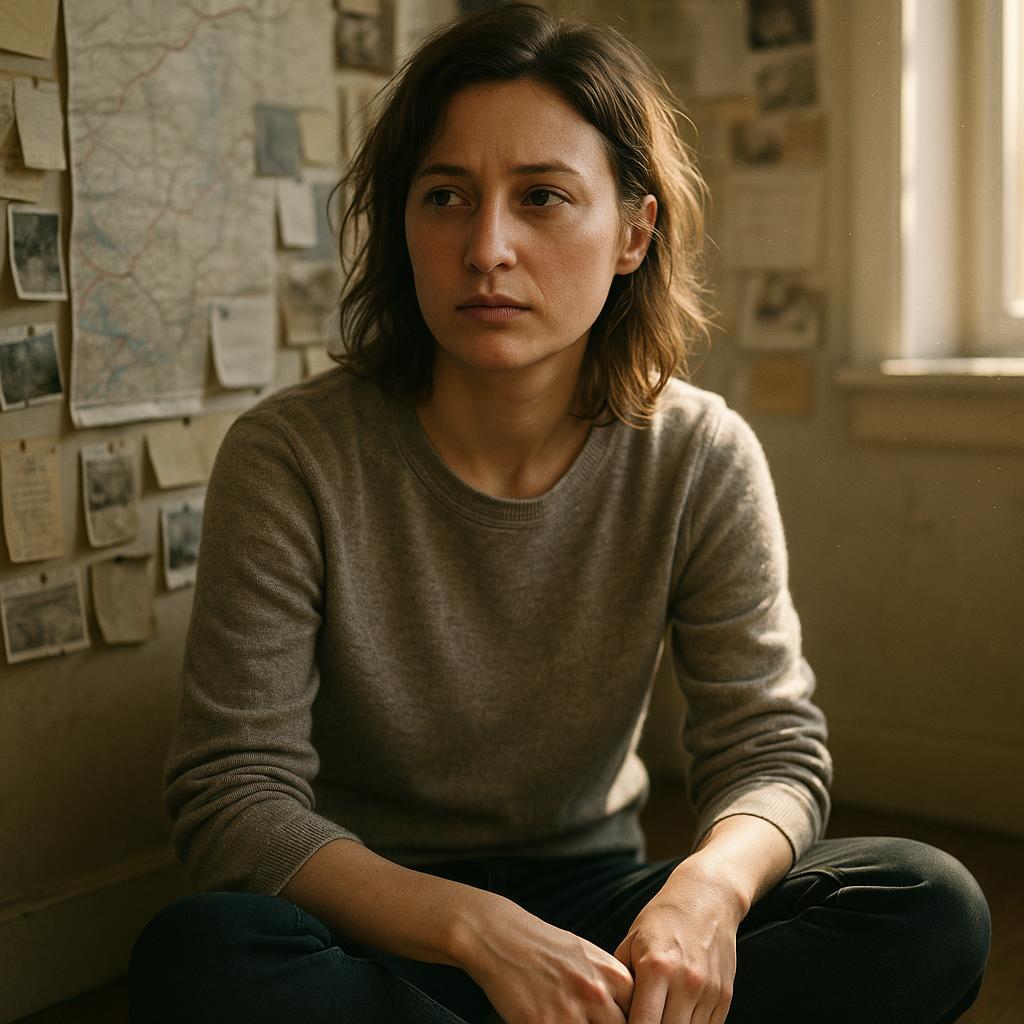 Image by RM AI
Image by RM AI
The First 48 Hours
Sunday evening arrived with a silence that felt wrong. I kept checking my phone, willing it to ring, to show a missed call, a text—anything. By 10 PM, I'd left six voicemails, each one more desperate than the last. 'Hey Mom, just checking in...' became 'Please call me back, I'm really worried.' Sleep was impossible that night. Monday morning, I called the local police station, my voice cracking as I explained the situation. The officer's response still makes my blood boil when I think about it: 'Adults go off-grid all the time, miss. Give it another day.' But my parents weren't the type to 'go off-grid.' They were meticulous planners who called if they'd be even an hour late. By Tuesday morning, with my stomach in knots and eyes raw from crying, I called again. This time, they listened. Within hours, the first search party gathered in our driveway—neighbors, my parents' coworkers, even my old high school teacher. As they divided into groups with maps and whistles, the police officer who'd dismissed me just a day earlier now looked me in the eye and said, 'We'll find them.' But the forest was vast, and as the sun began to set on that first search day, I couldn't shake the feeling that we were looking in all the wrong places.
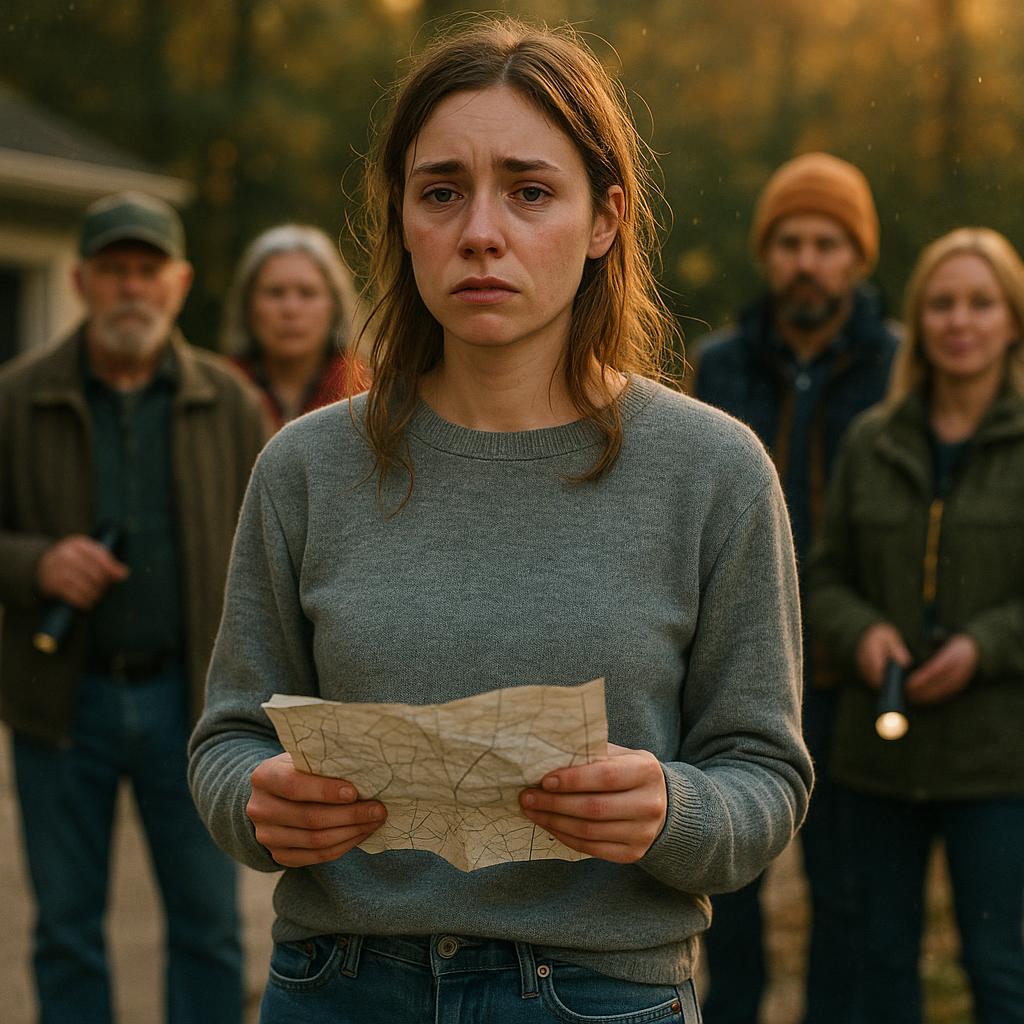 Image by RM AI
Image by RM AI
Search and Rescue
Day three of the search felt like walking through a nightmare I couldn't wake up from. The forest trails my parents loved so much were now crawling with volunteers in bright orange vests, search dogs sniffing the ground, and strangers calling out my parents' names. I walked alongside them until my feet were raw inside my sneakers, screaming 'Mom! Dad!' until my voice became a raspy whisper. Every few hours, the distant thump-thump-thump of helicopter blades would grow louder, and I'd look up through the trees, watching as they scanned with thermal cameras, searching for any sign of life below. 'They're thorough,' a rescue coordinator assured me, squeezing my shoulder. 'If your parents are out there, we'll find them.' But I noticed how he said 'if,' not 'when.' Each time a radio crackled to life, my heart would skip—that electric moment of possibility—before plummeting as another team reported finding nothing. By the fourth evening, rain began to fall, first as a gentle mist, then in heavy sheets that plastered my hair to my face. As volunteers huddled under tarps, checking maps and planning the next day's routes, the search coordinator approached me. I recognized that look immediately—pity mixed with fading hope. 'Lily,' he said gently, 'we need to talk about next steps.' I knew then that something had shifted—they were no longer looking for survivors, but for answers.
The Investigation Begins
Detective Morales arrived at my house on day five, a woman with the kind of tired eyes that had seen too many missing persons cases end badly. She wore a navy pantsuit and carried a worn leather notebook that seemed to hold the weight of countless tragedies. 'I need to know everything, Lily,' she said, settling into our kitchen table—the same place where Mom and Dad had eaten breakfast just days before. For hours, I answered her questions, my voice mechanical as I recited their habits, friends, routines. 'Any enemies?' she asked, and I almost laughed. My parents were the kind of people who apologized when someone else bumped into them. I handed over credit card statements, phone records, even their email passwords. 'Did they seem different before they left?' Detective Morales asked, pen hovering above her notebook. I hesitated, remembering Mom's hug lasting a beat longer than usual, Dad checking the truck's tires twice. 'No,' I said finally. 'Nothing unusual.' But as the words left my mouth, I wondered if I'd missed something crucial—some sign, some clue that might have prevented whatever happened to them. The detective's face remained carefully neutral as she closed her notebook, but I caught something in her eyes that made my stomach drop. She'd already formed a theory, and from her expression, I knew I wouldn't like it.
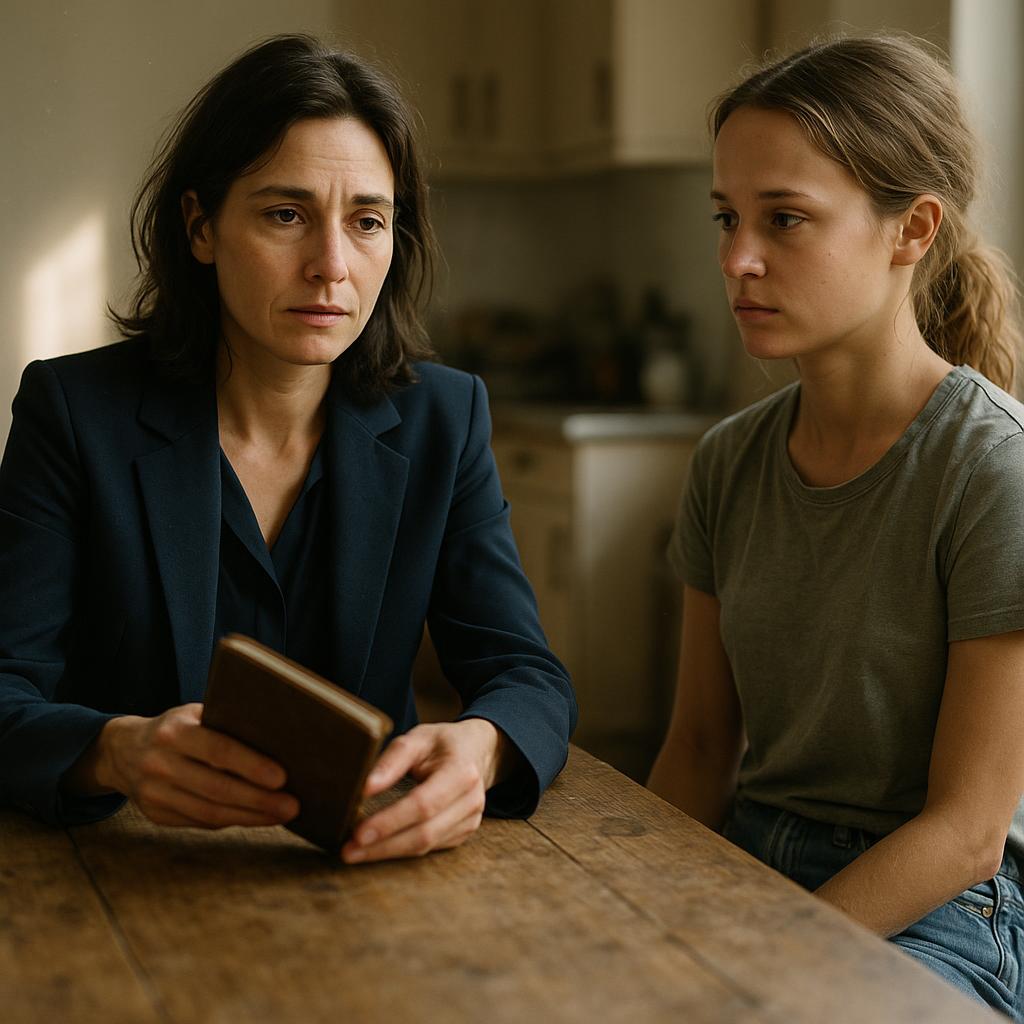 Image by RM AI
Image by RM AI
The Last Known Location
Detective Morales called me on a Tuesday morning, her voice unusually animated. 'We found something, Lily.' A gas station attendant sixty miles north had recognized my parents from the missing persons flyers. I was there within the hour, my hands shaking as the manager cued up the security footage. And there they were—Mom and Dad, frozen in time at 3:47 PM that Friday. Dad was pumping gas into his blue pickup, that familiar dent catching the sunlight. Mom stood at the passenger window, laughing at something he said, her hair caught in the breeze. They looked so... normal. So alive. I watched, barely breathing, as they went inside to pay. Dad grabbed trail mix from a display while Mom studied a map of the national forest spread across the counter. They looked relaxed, happy—clueless about what was coming. I've replayed that grainy footage at least a hundred times since then, searching their expressions for any hint of worry, any sign they sensed danger. But there was nothing. Just my parents, buying snacks and planning their route before driving toward the mountains where they would vanish completely. That timestamp—3:47 PM—became another piece in my obsession wall. The last confirmed moment my parents existed in the world. What happened in the hours after they drove away from that gas station? I was determined to find out.
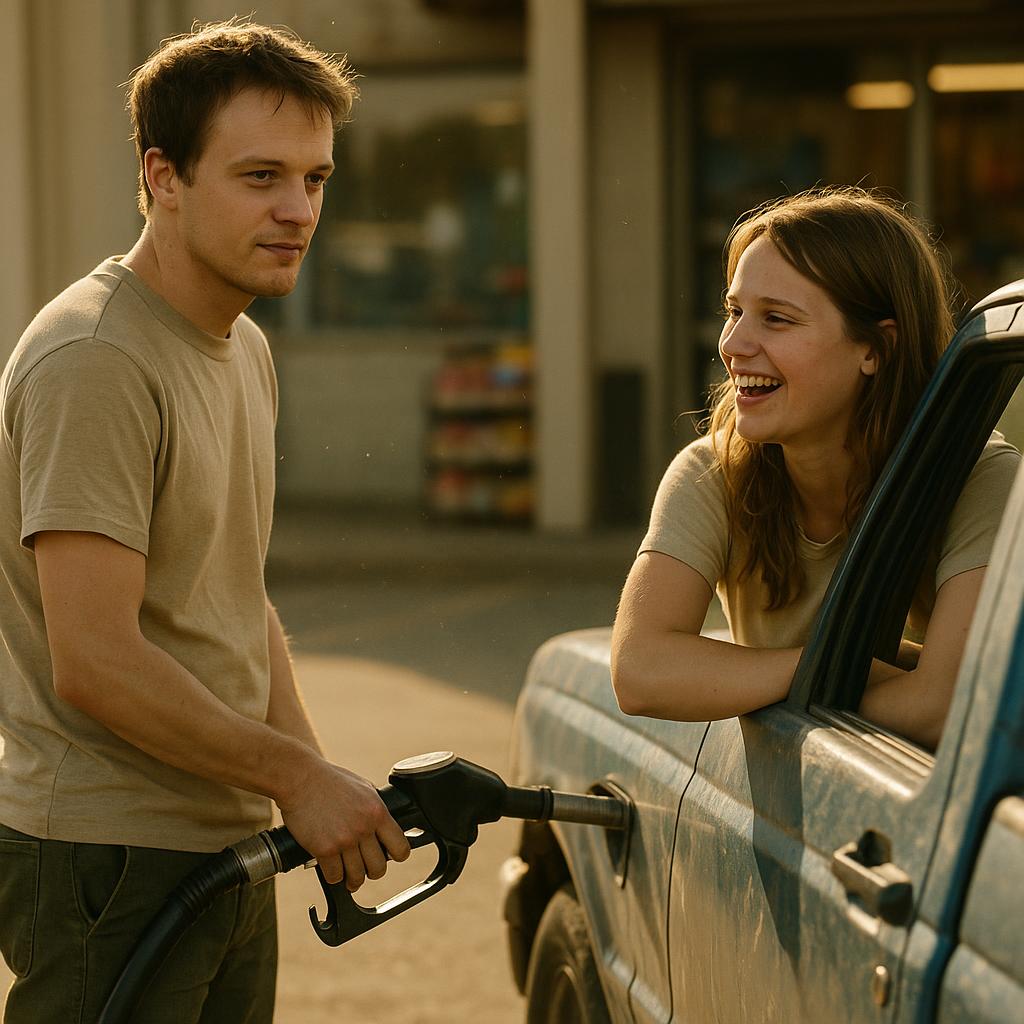 Image by RM AI
Image by RM AI
Expanding the Search
By day five, the search for my parents had exploded beyond our county lines. I watched from the command center—a hastily converted community hall—as the operation grew into something I never imagined. Maps covered every surface, red pins marking areas already searched, blue ones showing places to check next. Volunteers I'd never met arrived with homemade sandwiches and determination in their eyes. 'We're going to find them, honey,' an older woman assured me, squeezing my hand before heading out with a stack of flyers bearing Mom and Dad's smiling faces. I answered the same questions so many times I could recite them in my sleep: No, they didn't have health issues. Yes, they were experienced campers. No, they wouldn't just run off. Every few hours, Detective Morales would update me, her expression carefully neutral. When a ranger mentioned abandoned mines scattered throughout the region, I perked up, desperate for any new lead. 'There are dozens of them out there,' the ranger explained, pointing to a topographical map. 'Most collapsed decades ago.' Morales jotted something in her notebook but shook her head slightly. 'Too dangerous to search without specific information,' she said. 'We need to narrow it down first.' I nodded, but something about those mines nagged at me. Dad had always been fascinated by old mining stories. What if they'd gone exploring and gotten trapped? That night, I added 'abandoned mines' to my growing list of possibilities, never imagining how significant that single note would become.
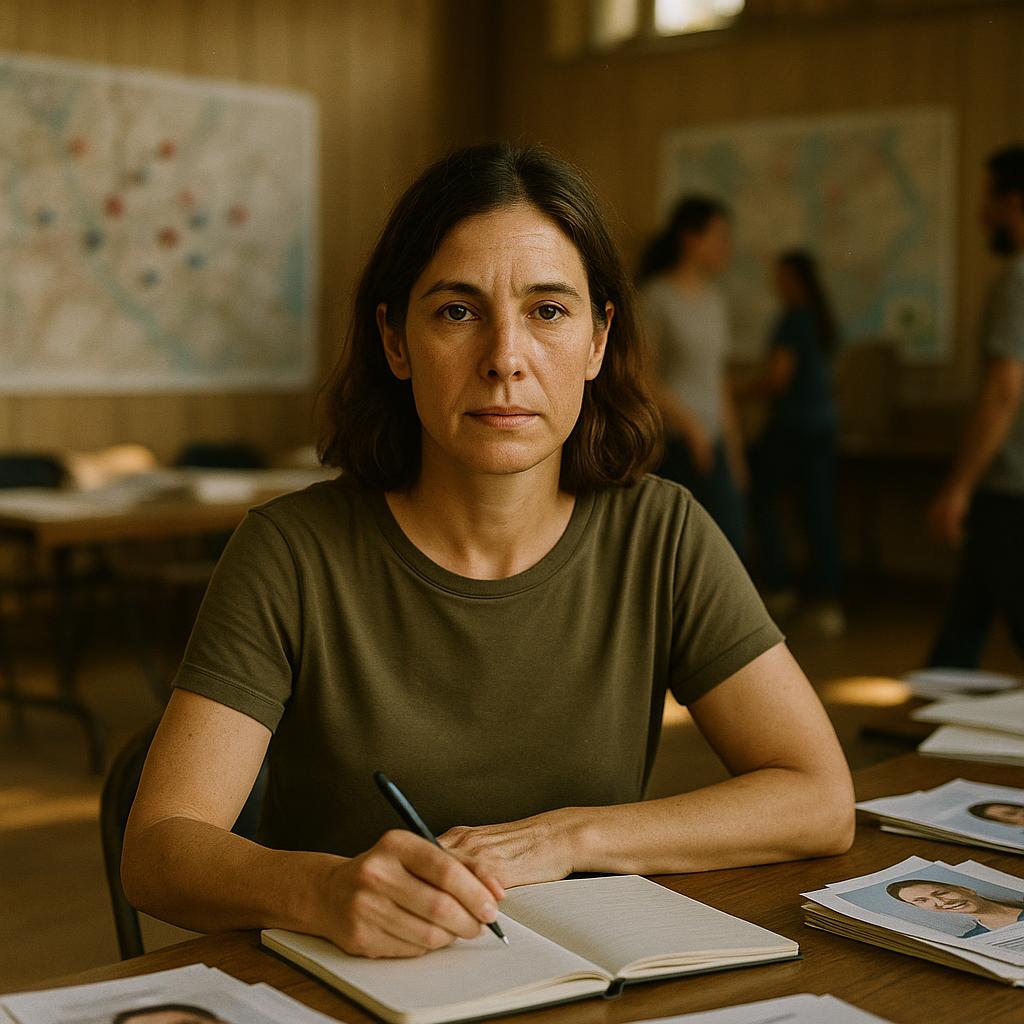 Image by RM AI
Image by RM AI
The Media Circus
By week two, my parents' disappearance had morphed from a local tragedy into a full-blown media circus. I'd wake up to find news vans parked across the street, their satellite dishes reaching toward the sky like alien antennae. 'Lily! Can you tell us if your parents were having marital problems?' one reporter shouted as I collected the mail. Another time, a woman with perfect hair and predatory eyes cornered me at my car: 'Sources say your father had gambling debts. Is that why they vanished?' I threw up in the bushes after that one. Aunt Sarah arrived the next day with a suitcase and her no-nonsense attitude, installing blackout curtains and screening calls. 'Vultures,' she muttered, turning away yet another 'exclusive interview' request. At night, I'd hear her through the thin walls, her voice breaking as she spoke to Uncle Jim: 'They wouldn't leave Lily, not willingly. Something happened to them.' The worst was the Channel 8 special report that suggested my parents had staged their disappearance—complete with dramatic reenactments and 'crime experts' who'd never even met them. I watched it alone in my room, hugging Dad's old sweater to my chest, rage and grief battling inside me. What these strangers didn't understand was that with each sensationalized theory, they were erasing who my parents actually were—and making it harder for anyone to find the truth.
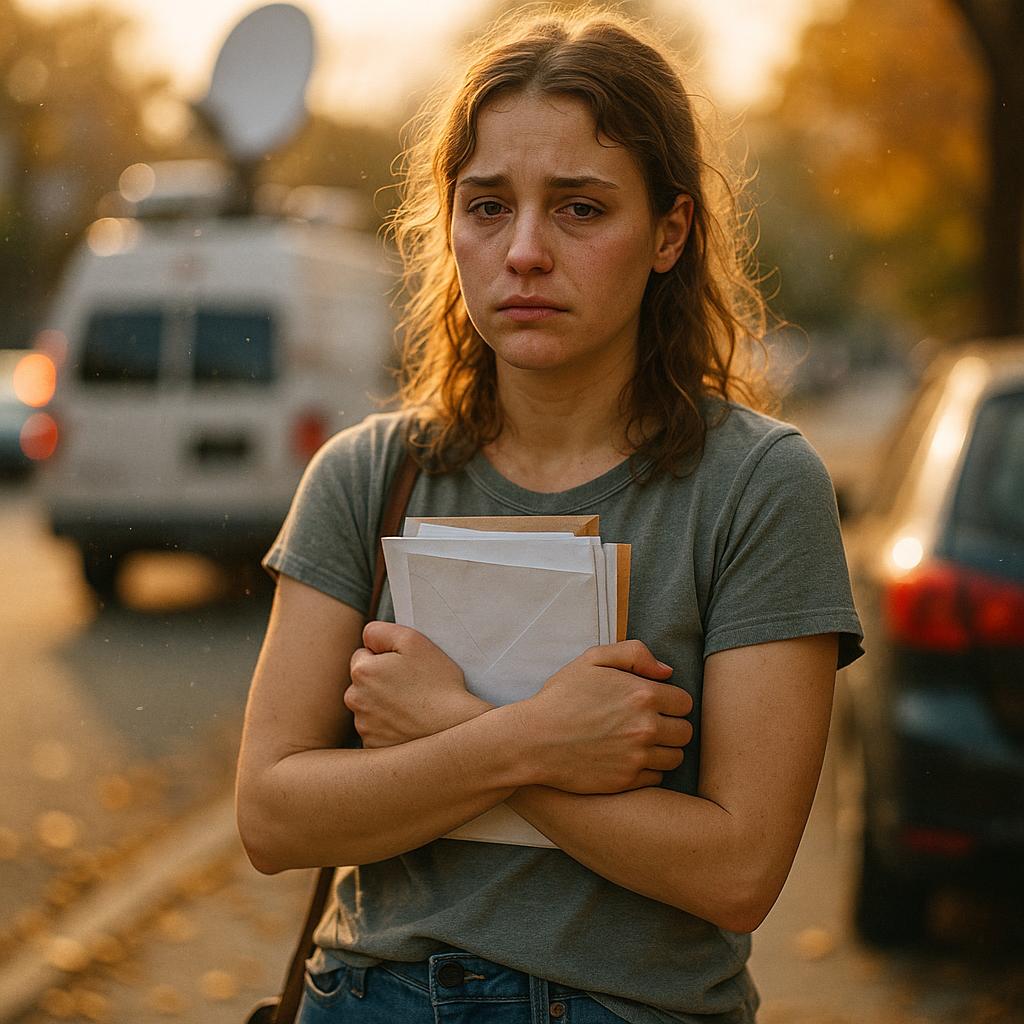 Image by RM AI
Image by RM AI
Theories and Speculation
As the two-week mark passed, it felt like everyone had a theory about my parents. The grocery store clerk suggested they'd run off to start a new life. My dad's fishing buddy was convinced they'd had an accident on a remote trail. Online forums spawned wild conspiracies about witness protection programs or cult abductions. I'd scroll through these threads at 3 AM, my eyes burning, desperate for any idea that might lead somewhere. Detective Morales methodically dismantled each theory with facts: their bank accounts showed normal activity right up until they left, no large withdrawals or transfers. Dad's boss described him as 'the most reliable guy on the team,' excited about an upcoming project. Mom's art group said she'd paid in advance for a six-week pottery class starting the following month. Nothing—absolutely nothing—suggested they'd planned to disappear. Yet Morales kept circling back to one detail that gnawed at me too: 'Why did they choose that particular route?' she asked during our fifth interview, tapping her pen against her notebook. 'According to all your statements, they'd never camped in that area before.' I had no answer then. But that question would haunt me for years to come, because the answer was hiding somewhere in plain sight all along.
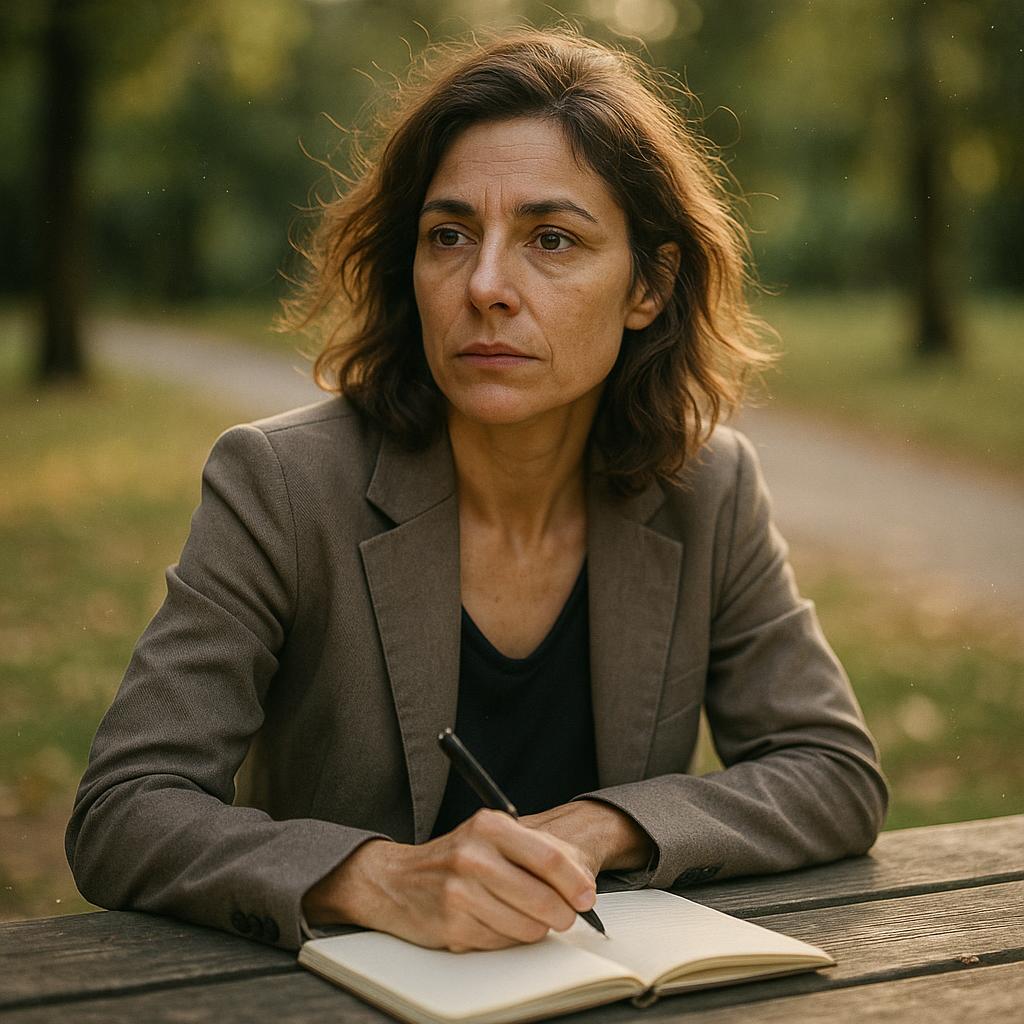 Image by RM AI
Image by RM AI
The First Month
Title: The First Month Thirty days after Mom and Dad vanished, I watched our community's hope dissolve like morning fog. The command center—once buzzing with determined volunteers and ringing phones—was reduced to empty folding tables and a single police officer boxing up remaining flyers. Detective Morales found me staring at the wall of maps they were taking down. 'We're not giving up, Lily,' she said, her hand on my shoulder feeling heavier than it should. 'Just changing tactics.' I nodded like I understood, like I was okay with my parents becoming a case file rather than an active search. That night, after Aunt Sarah fell asleep on our couch, I grabbed Dad's old jacket and drove to Pinecrest Lookout—the spot where they'd taken me every year on my birthday to watch the sunrise. The moon cast everything in silver as I stood at the edge, their absence a physical weight crushing my chest. I screamed until my voice gave out, the sound echoing back like the universe mocking me. 'WHERE ARE YOU?' I howled, collapsing onto the dirt. No one answered except the wind. When I finally drove home at dawn, I made a decision: if the world was moving on, I would have to search for them myself. What I didn't know then was how that decision would consume the next decade of my life—and that the truth was buried deeper than I could possibly imagine.
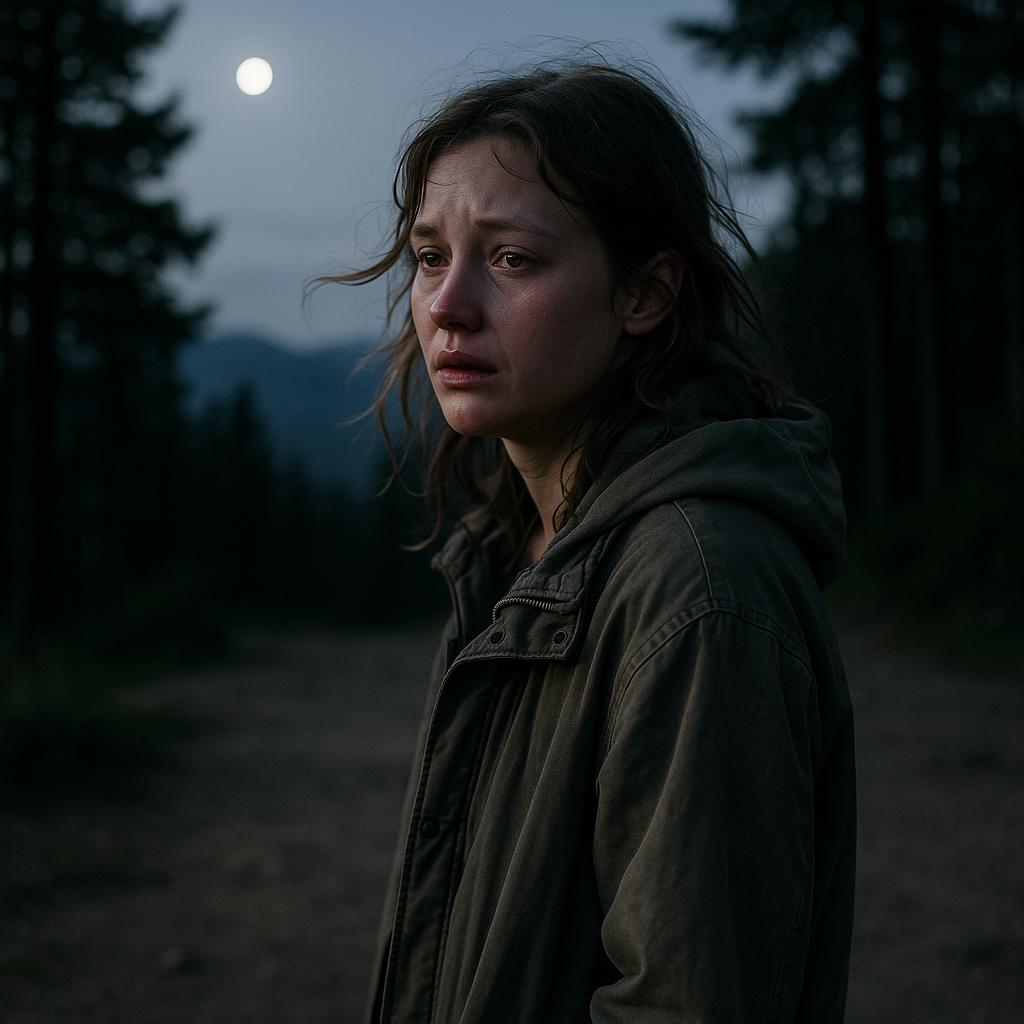 Image by RM AI
Image by RM AI
The First Lead
Six weeks after Mom and Dad vanished, my phone lit up with Detective Morales' name. My heart nearly exploded out of my chest. 'We found a backpack, Lily,' she said, her voice carefully measured. I was in my car before she finished speaking, hands shaking so badly I could barely grip the steering wheel. When I arrived at the station, the backpack sat on a metal table like some sacred artifact. One look, and my hope crumbled – it wasn't theirs. It belonged to a hiker who'd disappeared three years earlier. I cried in the bathroom for twenty minutes straight. But somehow, that false lead reignited interest in the search area. I started joining weekend search parties, learning to read broken twigs and disturbed soil like a second language. A geology student named Michael often volunteered alongside me. 'The desert is tricky,' he explained one evening as we watched the sun set over the search zone. 'It preserves and destroys in equal measure. Footprints can last for months in the right conditions, or vanish in seconds during a flash flood.' I wrote his words in my journal that night, not realizing they would become the most important clue I'd ever receive – one that would eventually lead me to that rusted truck buried in sand.
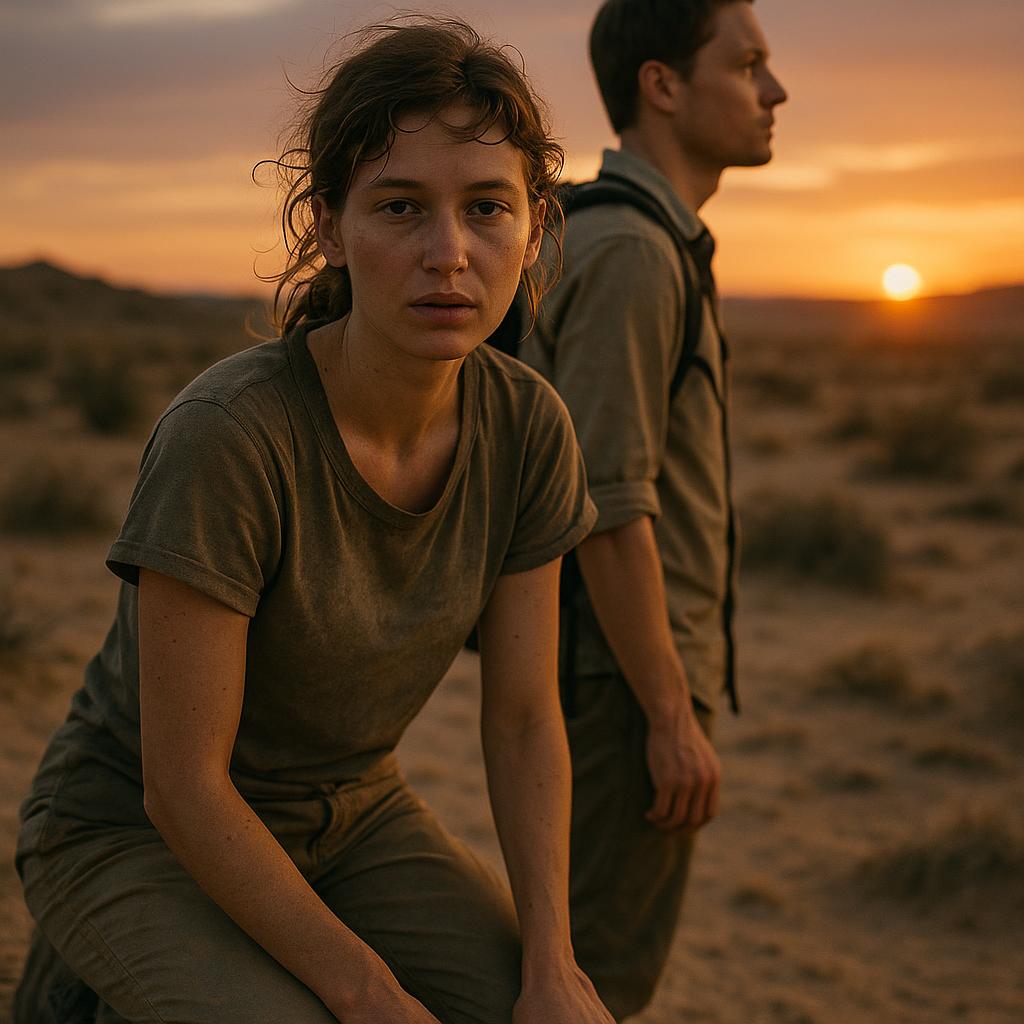 Image by RM AI
Image by RM AI
The House of Memories
I couldn't bear to pack away their lives. Two months after Mom and Dad vanished, our family home had become both sanctuary and torture chamber. Dad's reading glasses still sat on his nightstand, collecting a thin film of dust I couldn't bring myself to wipe away. Mom's paintbrushes stood upright in their jar, her half-finished landscape of the mountains where they disappeared waiting eternally for her return. I'd walk into their bedroom sometimes, just to lie on their bed and breathe in the fading scent of Mom's perfume from her pillow. 'You need to talk to someone, Lily,' Aunt Sarah urged after finding me curled up there one afternoon, clutching Dad's flannel shirt. Instead, I converted our spare room into what would become my obsession for the next decade. I pinned maps to the walls, created timelines with red string, and arranged photos of the search area in meticulous order. I'd fall asleep there most nights, surrounded by theories and possibilities, waking with thumbtack imprints on my cheek and a renewed determination. It wasn't healthy—I knew that even then—but dismantling that room would have felt like giving up on them. And I couldn't do that, not when I still jumped every time the phone rang, not when I still imagined headlights in the driveway meant they'd finally found their way home. What I didn't realize was that this room would eventually lead me to the truth—but the path there would cost me nearly everything else.
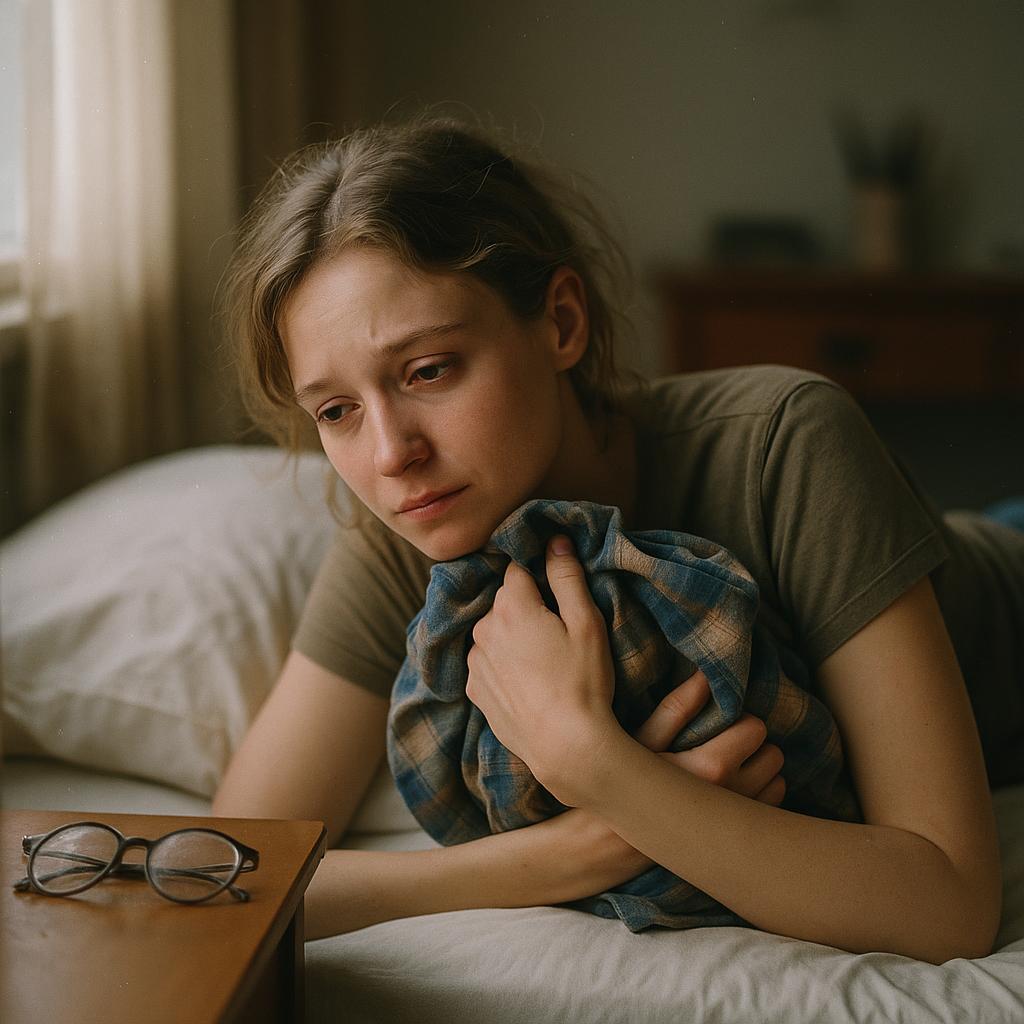 Image by RM AI
Image by RM AI
The Legal Limbo
Three months after my parents vanished, I found myself drowning in a bureaucratic nightmare that no one prepares you for. The mortgage company didn't care about my grief—they wanted their payment. The electric company threatened to cut power. My university advisor kept emailing about 'your return to studies' like my entire world hadn't imploded. I sat at our kitchen table one night, surrounded by bills marked 'FINAL NOTICE,' when I realized the cruel irony: my parents weren't legally dead, just... missing. Their bank accounts, life insurance, retirement funds—all locked in limbo, just like my heart. A lawyer named Elena, a friend of Mom's from her book club, took pity on me. 'The system isn't designed for this gray area,' she explained, sliding a legal pad across her desk. 'Without death certificates, we're fighting an uphill battle.' When she mentioned the seven-year waiting period for declaring someone legally dead without remains, I nearly collapsed. Seven years? I'd be 26 before I could even begin to close this chapter. 'But we'll find workarounds,' Elena promised, squeezing my hand. 'I won't let you lose their house too.' That night, I stood in my parents' bedroom, wondering how many more pieces of them would disappear while I waited for the law to acknowledge what my heart already knew.
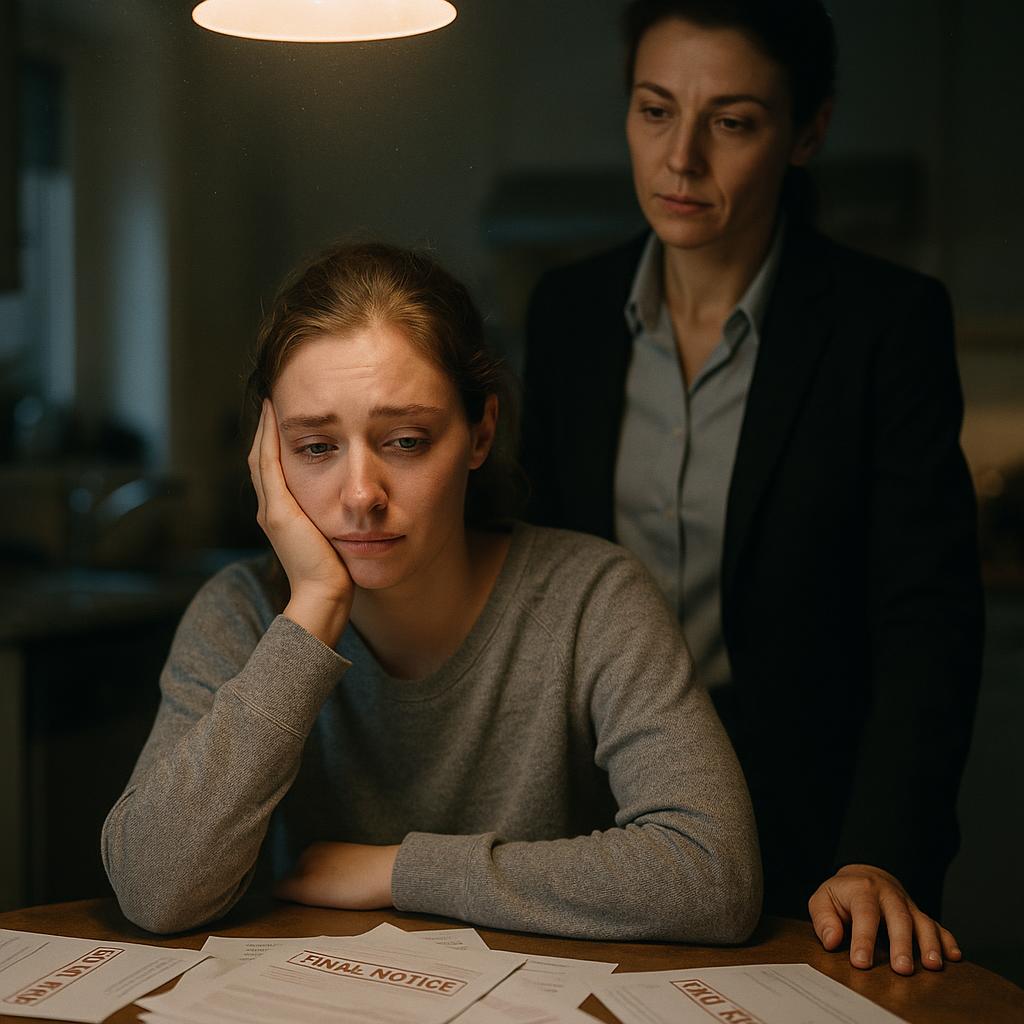 Image by RM AI
Image by RM AI
The Support Group
Elena's suggestion to join a support group felt like admitting defeat, but four months after Mom and Dad vanished, I was desperate enough to try anything. The church basement smelled like coffee and despair as I slid into a metal folding chair, clutching my parents' photo. Around the circle sat the ghosts of my future—people suspended in the same terrible limbo I now inhabited. An elderly man with trembling hands passed around a school portrait of his daughter who'd disappeared thirty years ago. 'I still buy her Christmas presents,' he confessed, his voice cracking. A woman in her fifties twisted a wedding band, explaining how her husband went fishing one morning and never returned. 'It's been twelve years next month,' she said, 'but I still set his place at dinner sometimes.' Their stories terrified me more than any horror movie ever could. These weren't people who had moved on—they were frozen in amber, their lives permanently paused at the moment their loved ones vanished. When they asked me to share, panic clawed up my throat. I mumbled something about needing air and bolted for the exit, gasping in the parking lot as tears streamed down my face. Leaning against my car, I made a silent promise to myself: I would not become them. I would find answers, no matter what it took. What I didn't realize then was that my desperate search would eventually lead me down paths darker than I could imagine.
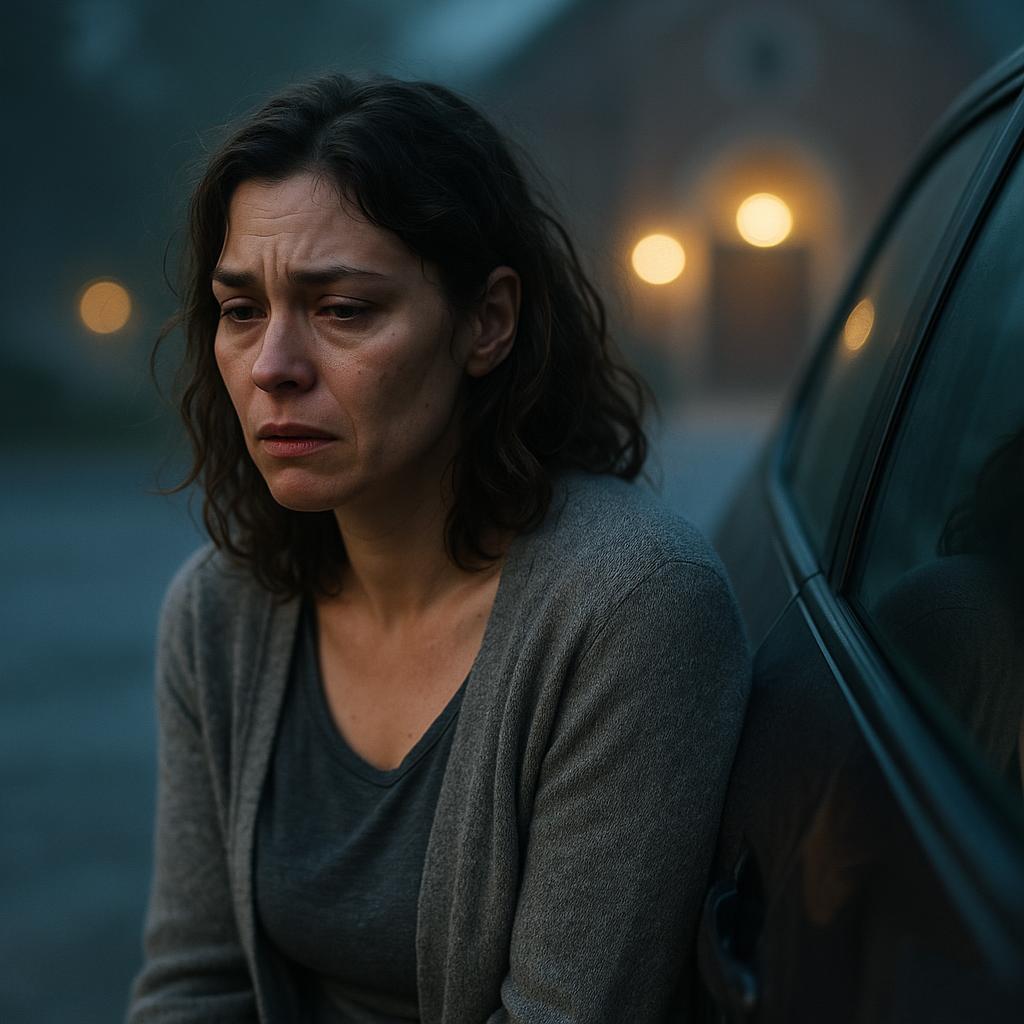 Image by RM AI
Image by RM AI
The Six-Month Mark
Six months. Half a year without Mom and Dad. The calendar on my wall mocked me with its red X's, each one a day they remained missing. Detective Morales still called weekly, but her voice had that practiced sympathy that told me their case file was gathering dust. I'd dropped out of college—how could I care about sociology papers when my parents were... somewhere? My savings dwindled until I took a job at Sunrise Café, where Irene, the owner, pretended not to notice when I spread maps across the break room table during slow shifts. 'Lily, honey, you fell asleep on Nevada again,' she'd say, gently shaking me awake before customers arrived. My apartment walls disappeared beneath printouts of similar disappearances, wilderness survival statistics, and topographical maps with red circles marking possible locations. I'd become a ghost myself—existing between shifts, research, and the occasional mandatory meal when my body reminded me I needed food. The worst part? People had stopped asking. Friends texted less. Relatives called with forced cheerfulness, carefully avoiding any mention of Mom and Dad. The world was moving on while I remained frozen in time, like a fly in amber, waiting for answers that seemed further away with each passing day. What no one understood was that giving up wasn't an option—not when I still found myself checking the driveway every time I heard a car engine outside my window.
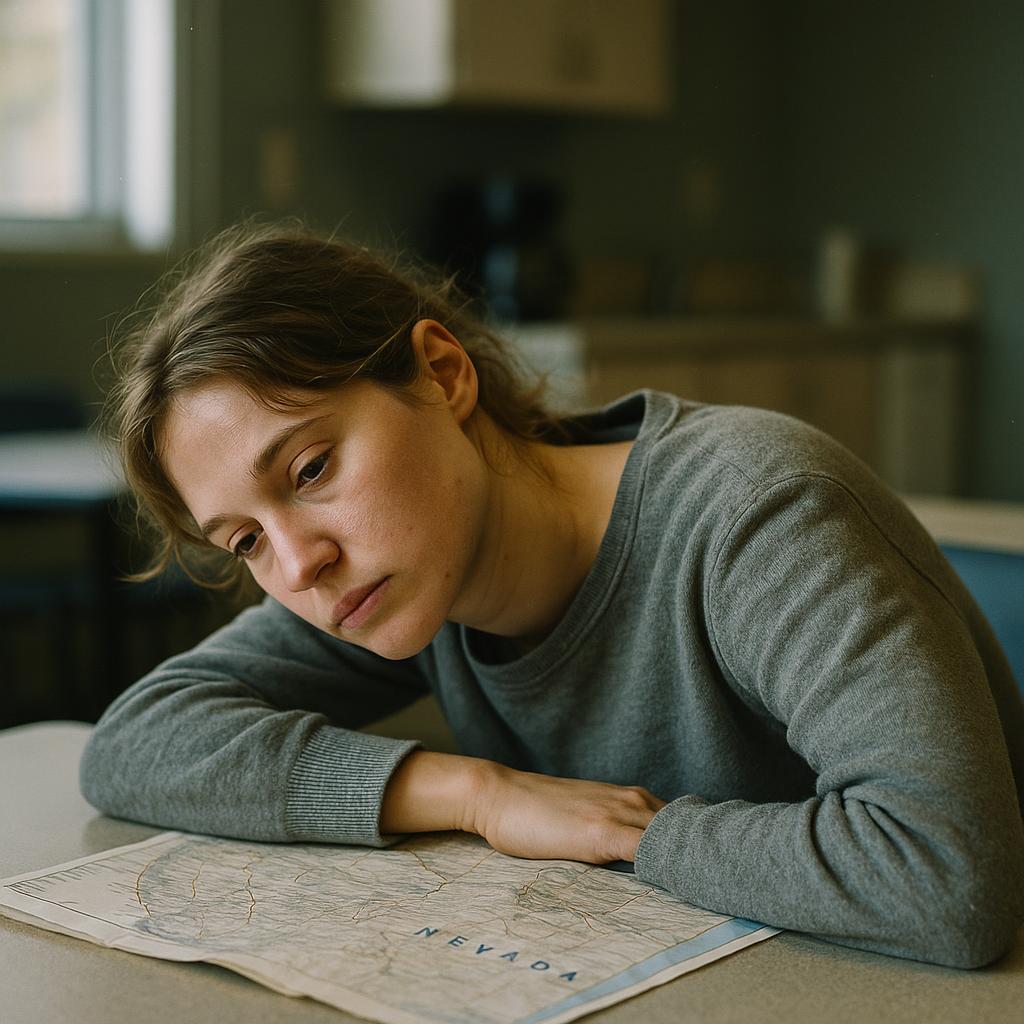 Image by RM AI
Image by RM AI
The Anniversary
One year. 365 days of waking up and remembering all over again that they were gone. I couldn't sleep the night before the anniversary, so I left my apartment while the sky was still dark purple, driving to that gas station—the last place Mom and Dad had been seen. The same attendant was there, his face falling when he recognized me. 'Coffee's on the house,' he mumbled, awkwardly patting my shoulder. I stood in the exact spot where Dad had parked his truck, trying to feel something—anything—that might connect me to them. Back home, I arranged candles along our porch railing, lighting each one as the sun set. 'A beacon,' I explained to Aunt Sarah when she arrived with casseroles I wouldn't eat. 'In case they're trying to find their way back.' She didn't mention what we both knew—that after a year, the statistical likelihood of finding them alive was almost zero. Friends trickled in throughout the evening, sitting with me in silent vigil, their presence both comforting and suffocating. Detective Morales even stopped by, bringing fresh flowers and avoiding my eyes when I asked if there were any updates. As midnight approached and everyone left, I remained on the porch, watching the candles flicker in the breeze, refusing to blow them out. What no one understood was that I wasn't just commemorating their disappearance—I was making a promise to myself about what would come next.
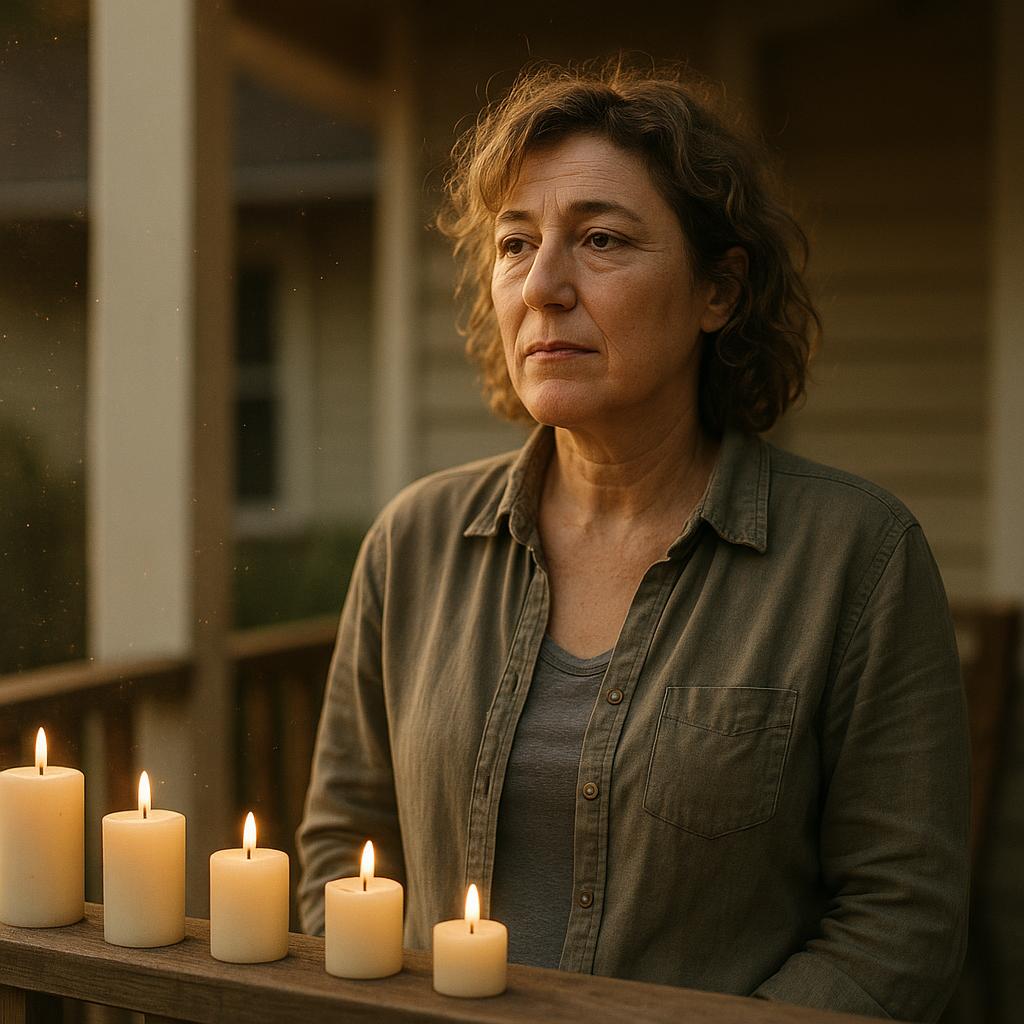 Image by RM AI
Image by RM AI
The New Detective
Eighteen months after my parents vanished, Detective Morales called to tell me she'd been promoted and transferred. 'I'm sorry, Lily,' she said, her voice genuinely regretful. 'Detective Kovač will be taking over.' The new detective couldn't have been more different—younger, with sharp eyes that seemed to dissect every word I said. Where Morales had been compassionate, Kovač was clinical. 'People hide things,' he stated bluntly during our first meeting, spreading my parents' file across his desk. 'Even from those closest to them.' His questions felt like accusations: Had they fought before the trip? Were there money problems? Secret bank accounts? 'My parents weren't hiding anything,' I insisted, my voice rising. But that night, I found myself pulling out their filing cabinet, hands trembling as I sifted through tax returns, bank statements, old letters. What if I hadn't known them as well as I thought? What if Detective Kovač was right? I stayed up until 3 AM, poring over their financial history, searching for inconsistencies, secret debts, unexplained deposits—anything that might explain why they'd driven to that particular spot in the desert. Instead, I found something else entirely: a folder labeled 'Mining History' tucked between insurance policies, filled with newspaper clippings about abandoned mines in the exact region where they'd disappeared.
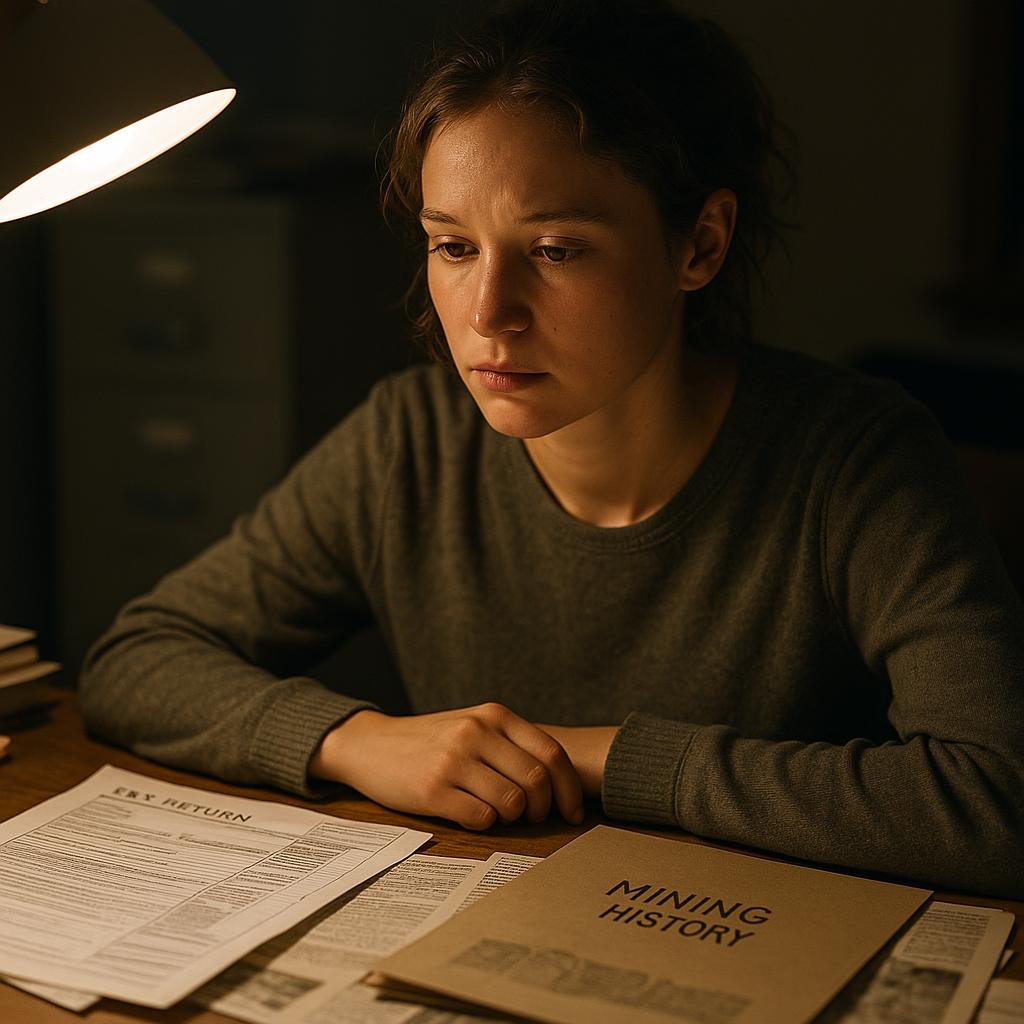 Image by RM AI
Image by RM AI
The Hidden Letter
Two years after their disappearance, I was organizing Mom's art studio—something I'd been putting off because it felt too final. Her brushes were still arranged by size, tubes of paint dried and cracking. I pulled out her favorite sketchbook, the leather-bound one Dad had given her for Christmas, and an envelope fluttered to the floor. My heart stopped when I recognized Dad's handwriting. The letter inside was dated just two weeks before they vanished. 'My dearest Evelyn,' it began, 'for our anniversary, I want to take you back to that special place we found years ago. Remember how the sunset painted the rocks that perfect shade of gold?' My hands trembled so badly I could barely hold the paper. This wasn't evidence of secrets or deception like Detective Kovač had implied—it was proof of their enduring love. I called him immediately, my words tumbling out in excitement. His response was ice cold: 'Vague references to special places don't help us locate them, Miss Parker.' I hung up, clutching the letter to my chest. The detective might not see its importance, but I did. Dad had left a breadcrumb, and for the first time in years, I felt that familiar spark of hope. What if this 'special place' was exactly where they had gone that weekend? And what if it was the key to finding them at last?
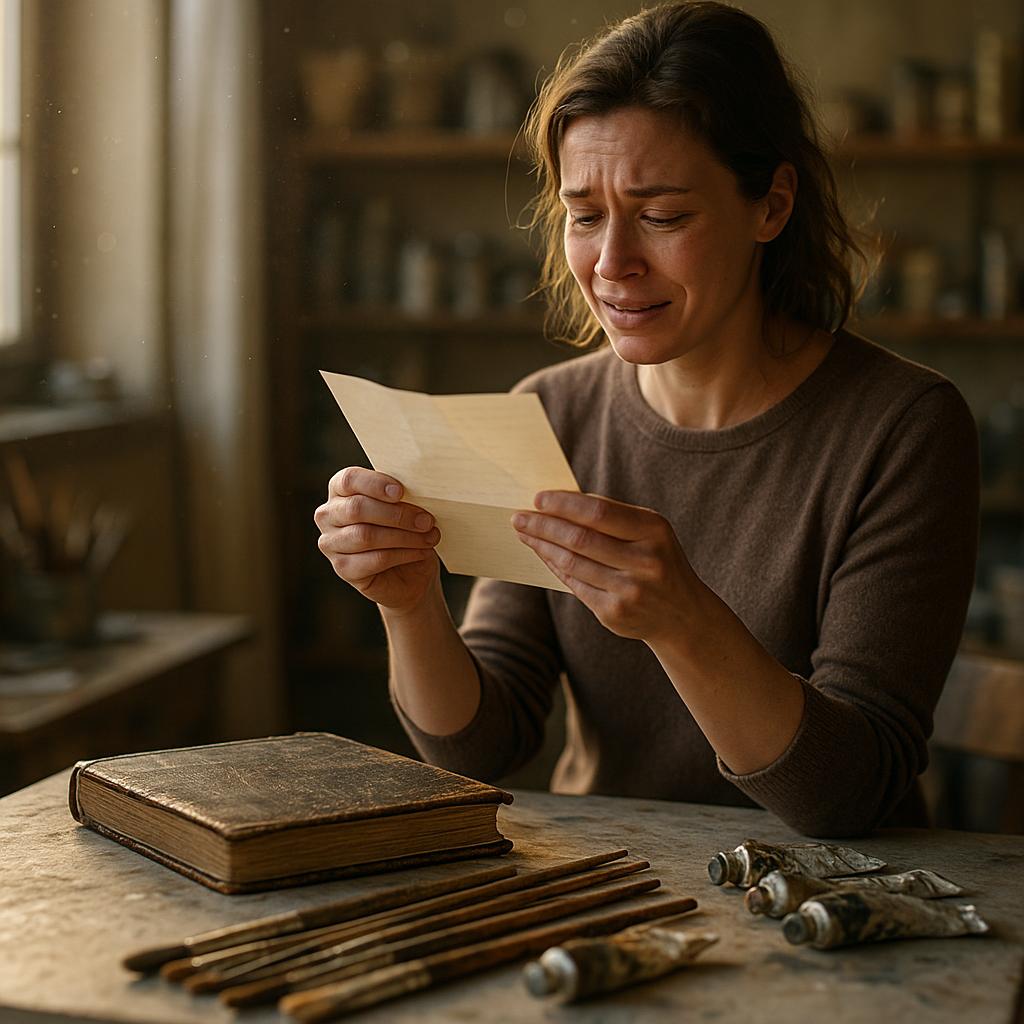 Image by RM AI
Image by RM AI
The Old Friend
Three years after Mom and Dad vanished, I got a call that made my heart race. Dad's college roommate, Oliver, had heard about the letter through our extended family grapevine. He drove six hours to see me, arriving with a stack of faded photos and a determined look in his eyes. 'Lily, your dad was obsessed with those old mining towns,' he told me, spreading the yellowed pictures across my kitchen table. 'We spent spring break of '89 exploring them.' His weathered finger traced a region on my map I'd barely considered—a remote stretch of desert I'd dismissed as too desolate. 'There was this one ghost town he couldn't stop talking about. Can't remember the name, but Mark swore he'd take Evelyn there someday.' I felt that familiar surge of hope mixed with dread. 'How sure are you?' I asked, my voice barely steady. Oliver's eyes met mine. 'Sure enough that I think we should go look.' It was the first solid lead in months, but the area he indicated was vast—hundreds of miles of treacherous terrain where cell service disappeared and GPS systems failed. What Oliver didn't know was that I'd already decided we were going, even if I had to search every inch of that desert myself.
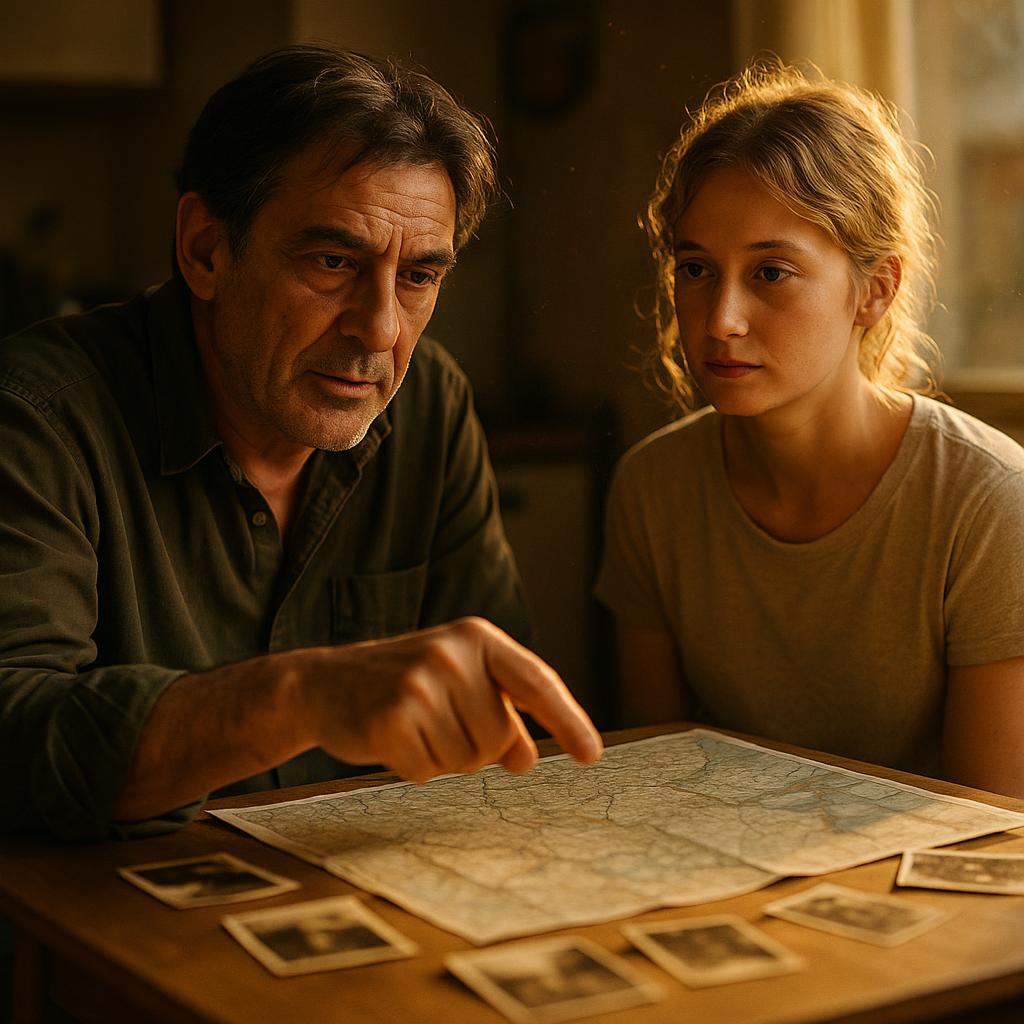 Image by RM AI
Image by RM AI
The Desert Research
Four years after my parents vanished, Oliver's revelation sent me spiraling into research mode. I became a fixture at the county library, where Mrs. Chen—a librarian with silver-streaked hair and endless patience—helped me access archives that predated the internet. 'Your dedication reminds me of your mother,' she said one afternoon, sliding another box of microfiche across the table. I spent weeks poring over yellowed newspapers and faded maps, connecting with historical societies who sent me packets of information on abandoned mining towns. My apartment walls transformed into a desert historian's dream board—or a detective's obsession, depending on who you asked. When I discovered a 1952 article about a silver mine collapse that killed seven workers, my coffee mug slipped from my fingers, shattering on the floor. The landscape in the grainy black-and-white photo matched the background of a picture I'd seen a thousand times—Mom and Dad, arms wrapped around each other, standing on a rocky outcrop during what they'd always called their 'adventure honeymoon.' My hands trembled as I placed the photos side by side. This had to be it—the 'special place' Dad mentioned in his letter. What I didn't know then was that this discovery would lead me straight into the heart of a mystery far older than my parents' disappearance.
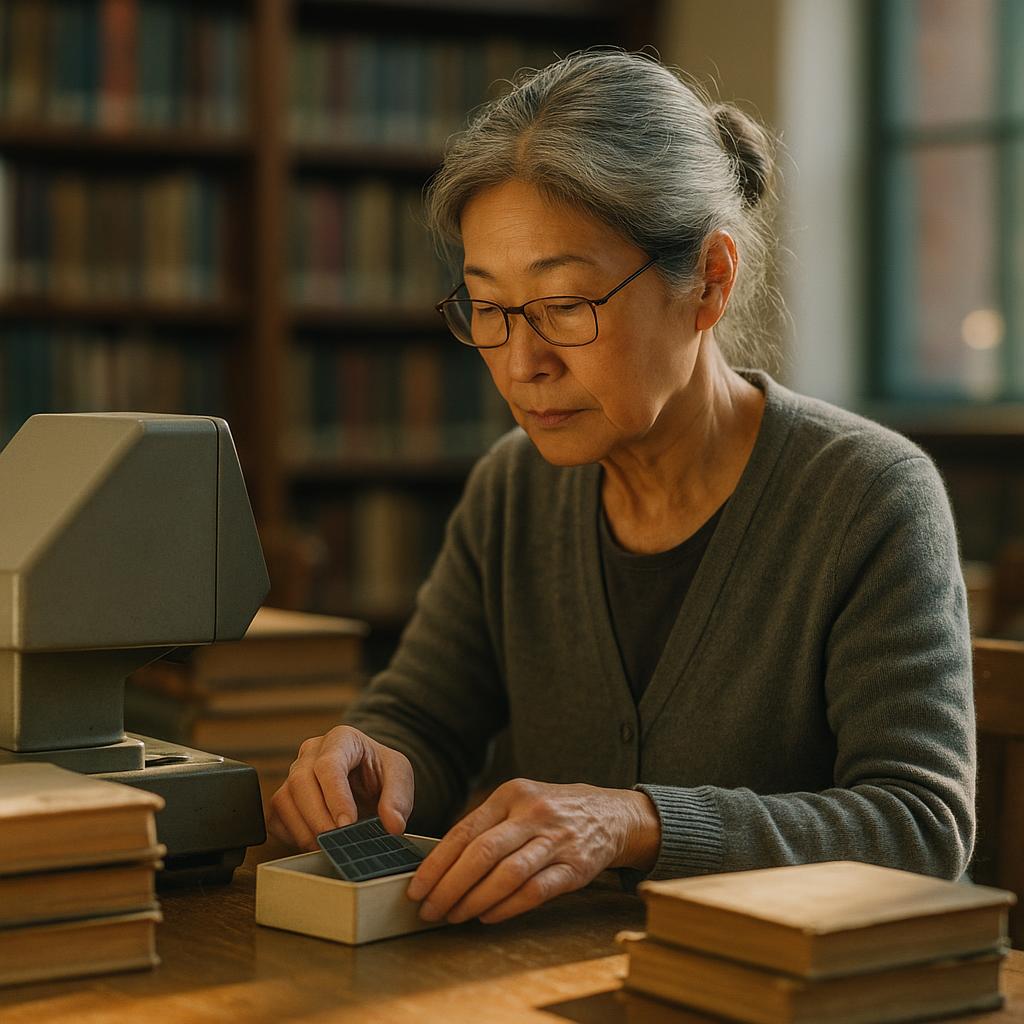 Image by RM AI
Image by RM AI
The Second Year
Life settled into a bizarre routine during that second year. I'd wake up, go to work at Sunrise Café, come home to my wall of maps and theories, then fall asleep surrounded by printouts of search grids. I downsized to a one-bedroom apartment that didn't echo with emptiness like our family home had. Most of Mom and Dad's belongings sat in neatly labeled storage boxes, except for the few treasures I couldn't bear to pack away—Dad's favorite coffee mug, Mom's watercolor of our backyard. Their bedroom at the house remained frozen in time, a shrine I visited on my worst days. I'd curl up on their bed, pressing my face into Mom's pillow, desperately trying to catch the vanishing scent of her Chanel No. 5. My friends stopped asking for updates, their concerned expressions replaced with awkward smiles when I mentioned new search theories. Dating became an exercise in futility—how do you casually mention over appetizers that you're obsessed with finding your missing parents? 'So, what do you do for fun?' they'd ask. I'd mumble something about hiking or photography, not mentioning that both hobbies were just excuses to search remote areas with a camera. What no one understood was that moving forward didn't mean giving up—it just meant learning to carry my search in a way that wouldn't completely destroy me.
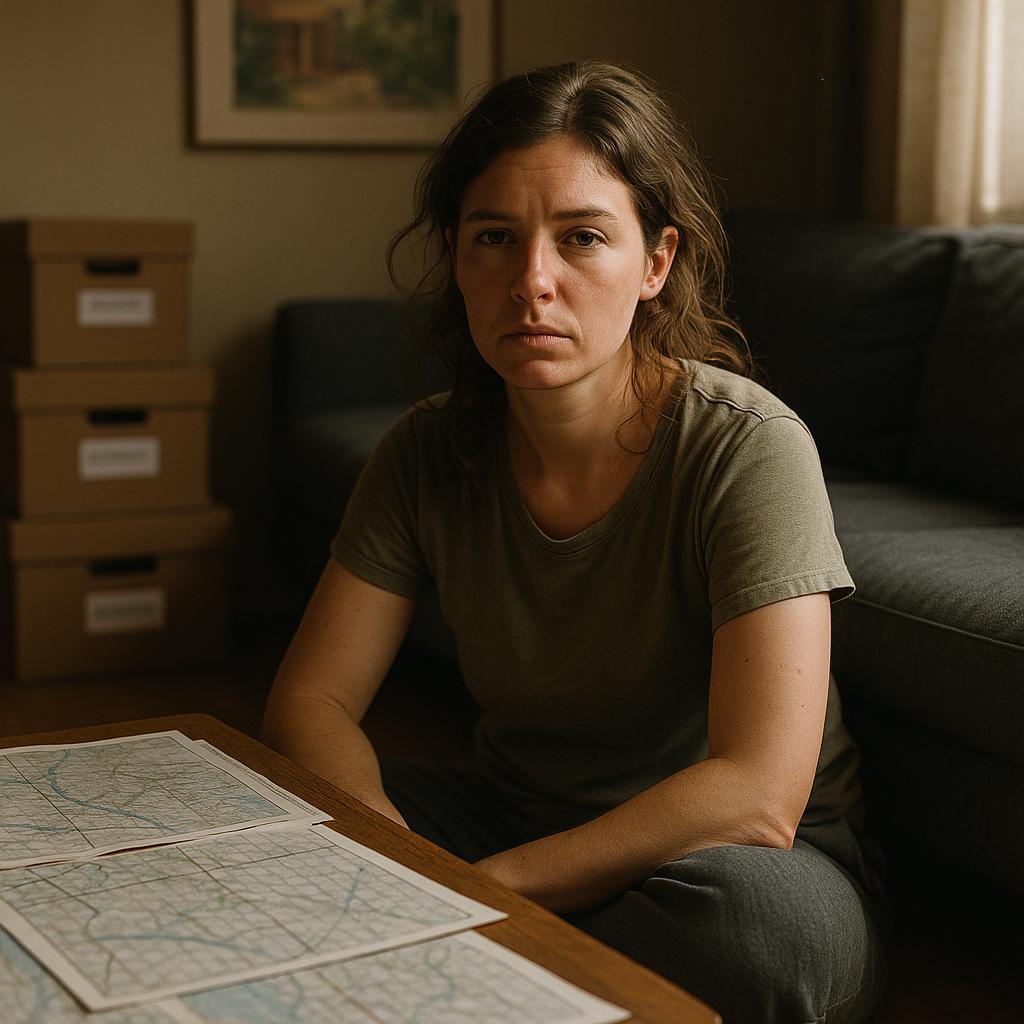 Image by RM AI
Image by RM AI
The Online Community
Five years after my parents vanished, my coworker Jamie changed everything with four simple words: 'You're not alone, Lily.' She introduced me to an online forum called FindTheMissing.net, where families like mine shared their ongoing investigations instead of just their grief. Unlike that church basement support group that had terrified me years earlier, these people weren't frozen in amber—they were fighters. I created a profile that night, my hands trembling as I typed out my parents' story for the hundredth time, but to a new audience. Within 48 hours, my inbox exploded. 'Have you checked historical satellite imagery?' asked a woman whose sister disappeared hiking. 'The government archives footage you'd never see on Google Maps.' Another suggested FOIA requests for the original search records, convinced details had been overlooked. Some recommendations bordered on desperate—psychics, dowsing rods, dream interpreters—but I couldn't judge. Hadn't I spent countless nights staring at maps until my vision blurred? What struck me most wasn't the practical advice but the fierce determination in every message. These strangers understood what my friends couldn't: that 'closure' was a luxury some of us might never have, but answers were still worth fighting for. I stayed up until 3 AM that first night, scrolling through similar cases, my chest tight with a feeling I hadn't experienced in years—hope. What I didn't realize was that someone in that forum already knew exactly where to find my parents.
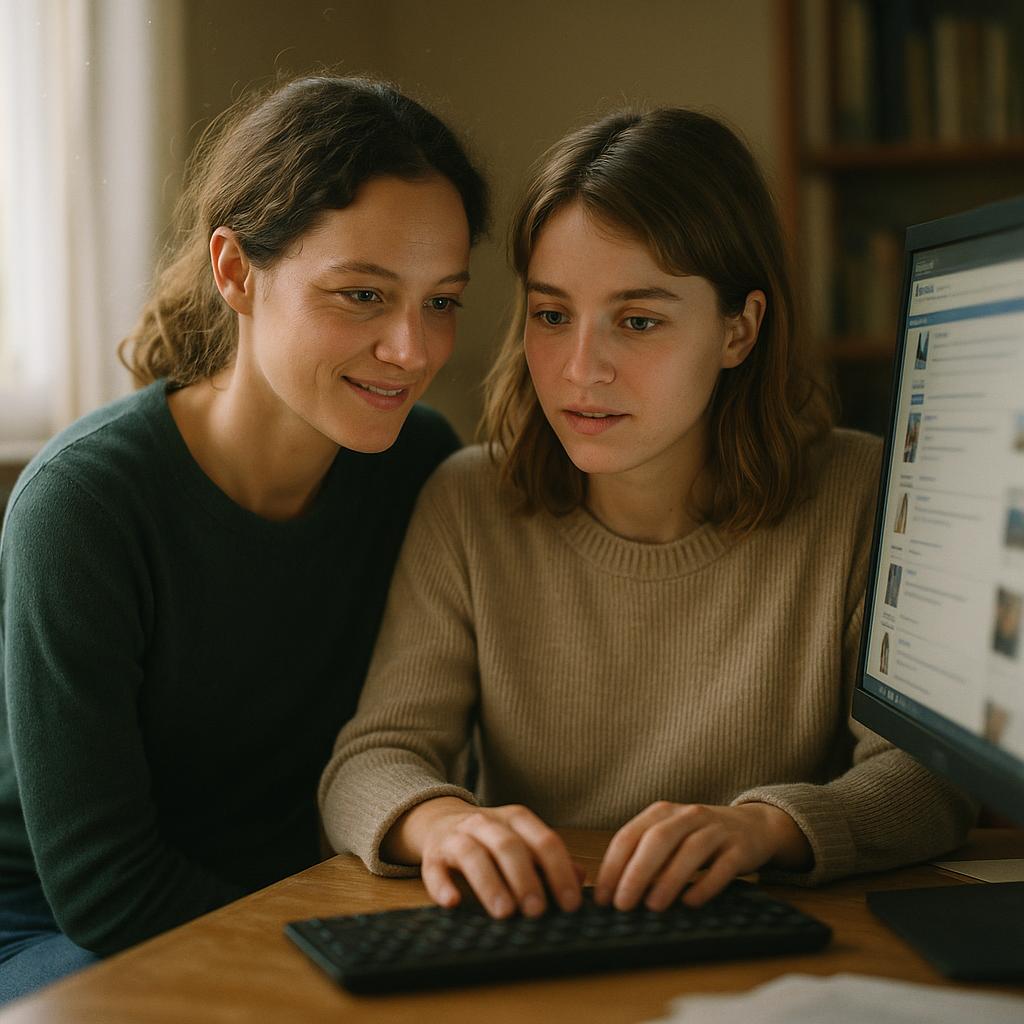 Image by RM AI
Image by RM AI
The Satellite Images
Six years into my search, I finally took DesertFox's advice from the forum. 'Government satellite imagery shows things Google Maps never will,' he'd insisted. The bureaucratic nightmare that followed made me want to scream—endless forms, security clearances, and a hefty fee that ate through my savings. When the manila envelope finally arrived, my hands trembled so badly I could barely open it. Inside were grainy black-and-white photos of vast desert nothingness, like looking at static on an old TV. I spread them across my kitchen table, squinting until my eyes burned. Nothing made sense. DesertFox—who claimed to analyze satellite imagery professionally—offered to help, and I reluctantly emailed him the scans. Three days later, his response jolted me awake at 2 AM. 'Look at coordinates 34.721, -115.892,' his message read. 'That's not a rock formation.' I zoomed in on my laptop, heart pounding as I spotted what he'd found—a tiny white speck near an old mining road, the perfect size and shape of Dad's pickup. 'The resolution is too low to be certain,' DesertFox cautioned, 'but that anomaly wasn't there in images from the month before.' I pressed my fingers against the screen, tears blurring my vision. After six years of searching, I might finally have found them—but what I didn't know was that getting to this remote location would nearly cost me my own life.
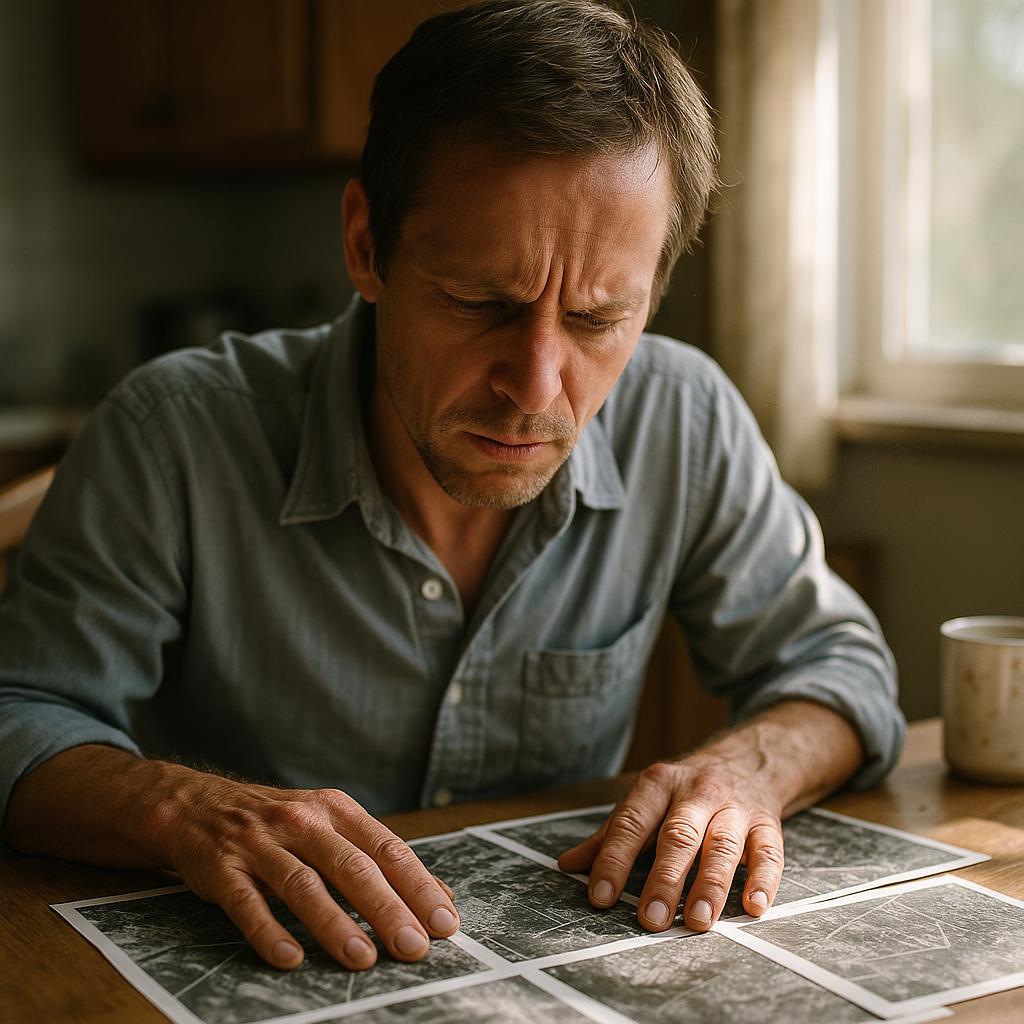 Image by RM AI
Image by RM AI
The Desert Expedition
Seven years into my search, I finally had coordinates that might lead me to Mom and Dad. I spent weeks preparing for my desert expedition—buying hiking boots that cost more than my rent, stockpiling protein bars, and downloading offline maps that wouldn't disappear when cell service inevitably did. Aunt Sarah called me every day, her voice tight with worry. 'Lily, please reconsider. That desert has already taken two people I love.' I understood her fear, but couldn't explain the pull I felt toward those coordinates—like a compass needle finding north. The night before my departure, I was triple-checking my gear when Detective Kovač called. His usually detached voice had an edge of excitement. 'A pawn shop owner in Arizona recognized your parents from the missing persons bulletin,' he said. 'He purchased a camera two years ago containing photos of a couple he believes were Mark and Evelyn.' My hands froze on my backpack straps. 'Two years ago? That's... that's five years after they disappeared.' The implications made my head spin. If it really was them, they'd been alive long after the search was called off. I canceled my desert plans and booked a flight to Arizona instead, not realizing I was walking straight into a trap that had been years in the making.
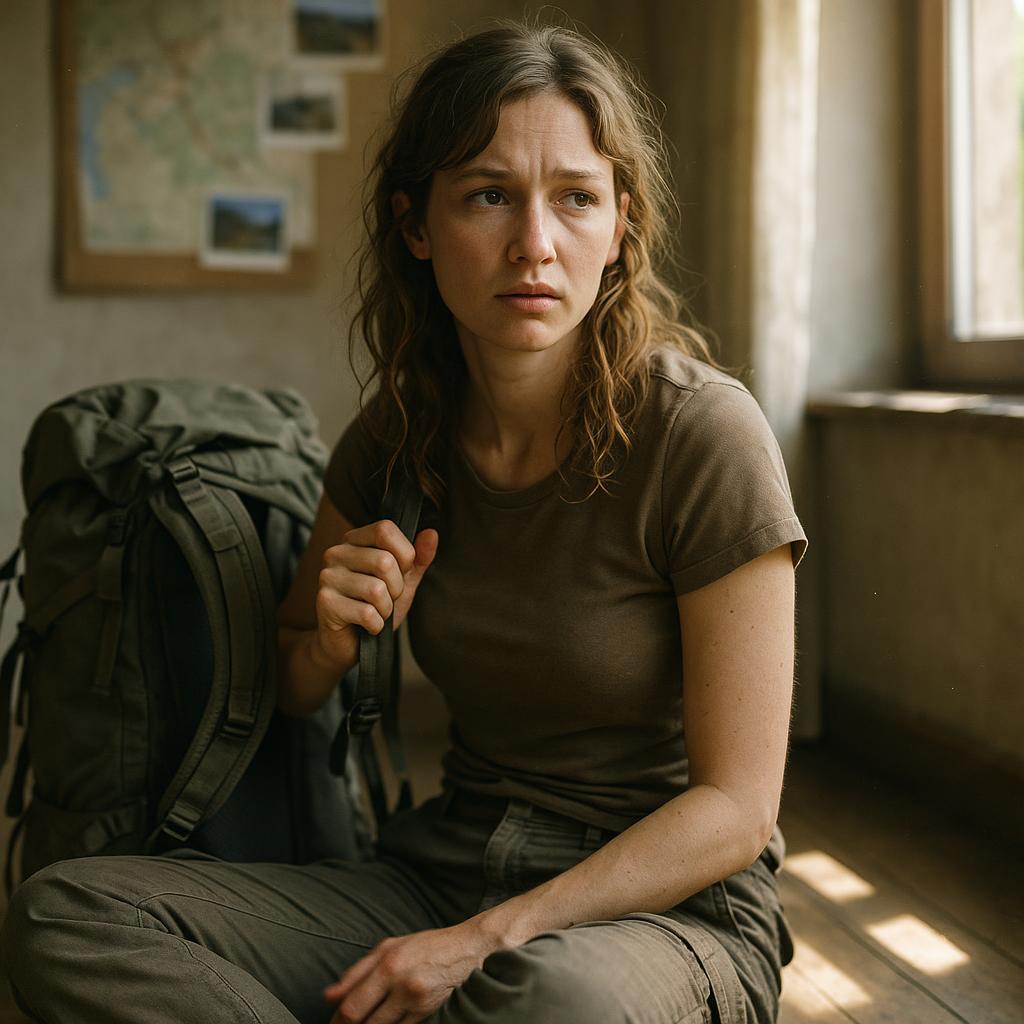 Image by RM AI
Image by RM AI
The False Lead
The fourteen-hour drive to Arizona felt like the longest journey of my life. Every mile marker brought me closer to what could be the first real evidence that Mom and Dad were alive. I rehearsed what I'd say when I finally saw their faces on that camera—all the questions I'd bottled up for seven years. The pawn shop was wedged between a liquor store and a payday loan place, its windows clouded with dust. The owner, a man with nicotine-stained fingers, nodded when I showed him their photos. 'Yeah, that's them. Pretty sure.' My heart hammered against my ribs. When Detective Kovač finally extracted the memory card, we huddled around his laptop. The first image loaded, and my breath caught—a couple standing by a canyon rim, their backs to the camera. But as we scrolled to a frontal shot, my world collapsed again. Different jawline. Wrong eyes. Strangers who merely resembled my parents from behind. I stumbled to my car afterward, where I finally let seven years of hope and disappointment crash over me in violent sobs. That night, curled up in a motel bed that smelled of industrial cleaner, I called DesertFox. 'I feel like such a fool,' I whispered. His voice was steady through the speaker: 'False leads hurt, Lily, but they're part of the process. The desert coordinates are still waiting.' What he didn't know was that his words had rekindled something in me—a determination that would soon lead me straight into danger.
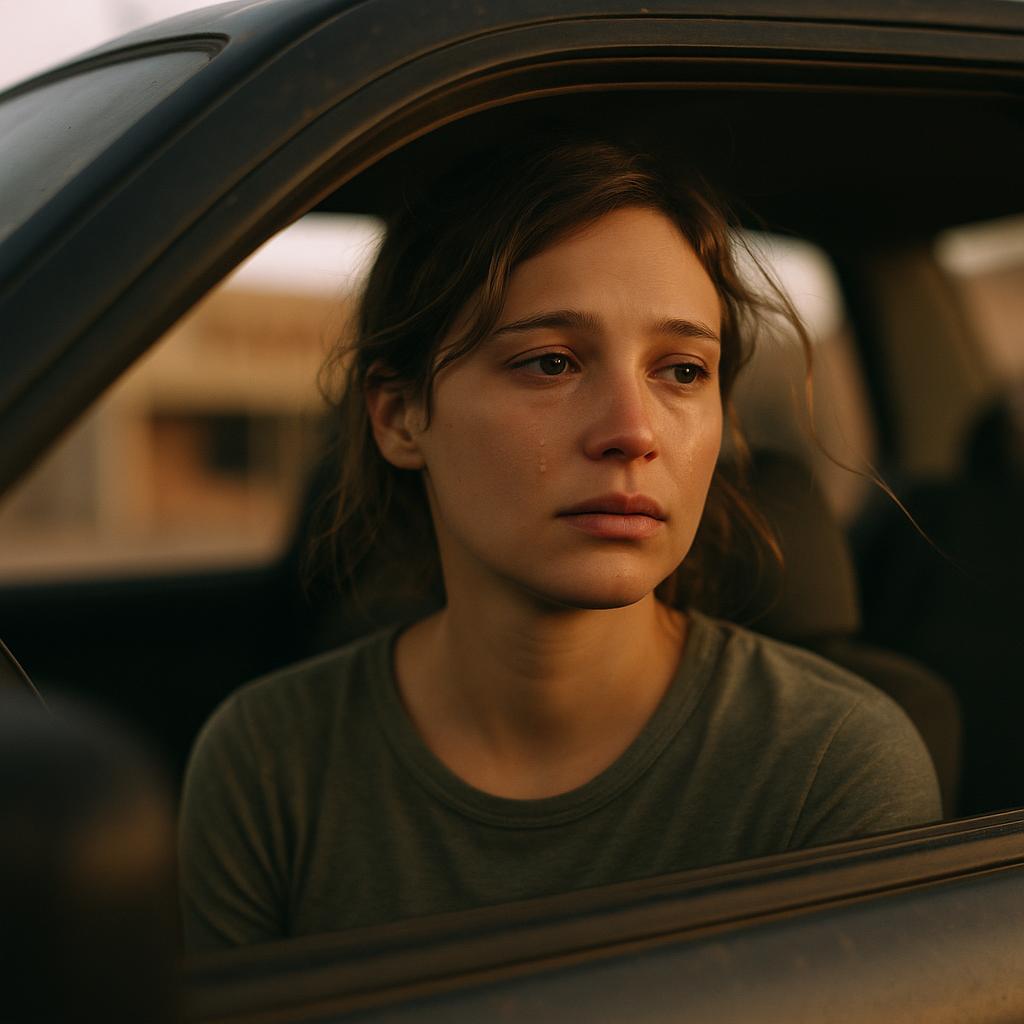 Image by RM AI
Image by RM AI
The Desert Journey Begins
I packed my Jeep with enough supplies to survive a week in the desert—water jugs, protein bars, first aid kit, and a satellite phone that cost me three paychecks. The drive to the coordinates was brutal, my tires struggling against terrain that seemed determined to keep its secrets. When I finally reached the general area, I realized the satellite image had drastically understated the vastness. What looked like a simple white speck on a screen was now a needle in a hundred-square-mile haystack. 'Mom, Dad, I'm here,' I whispered to the empty landscape, my voice swallowed by the wind. That first night, I pitched my tent on a rocky outcrop, shivering as temperatures plummeted from scorching to freezing in hours. The stars above were unnervingly bright, like thousands of eyes watching my futile search. I huddled in my sleeping bag, scrolling through old family photos on my phone until the battery warning flashed. 'I'll find you tomorrow,' I promised the smiling faces on my screen. But as I drifted off, a distant sound jolted me awake—something between a coyote's howl and a human voice, calling from somewhere in the darkness beyond my campsite.
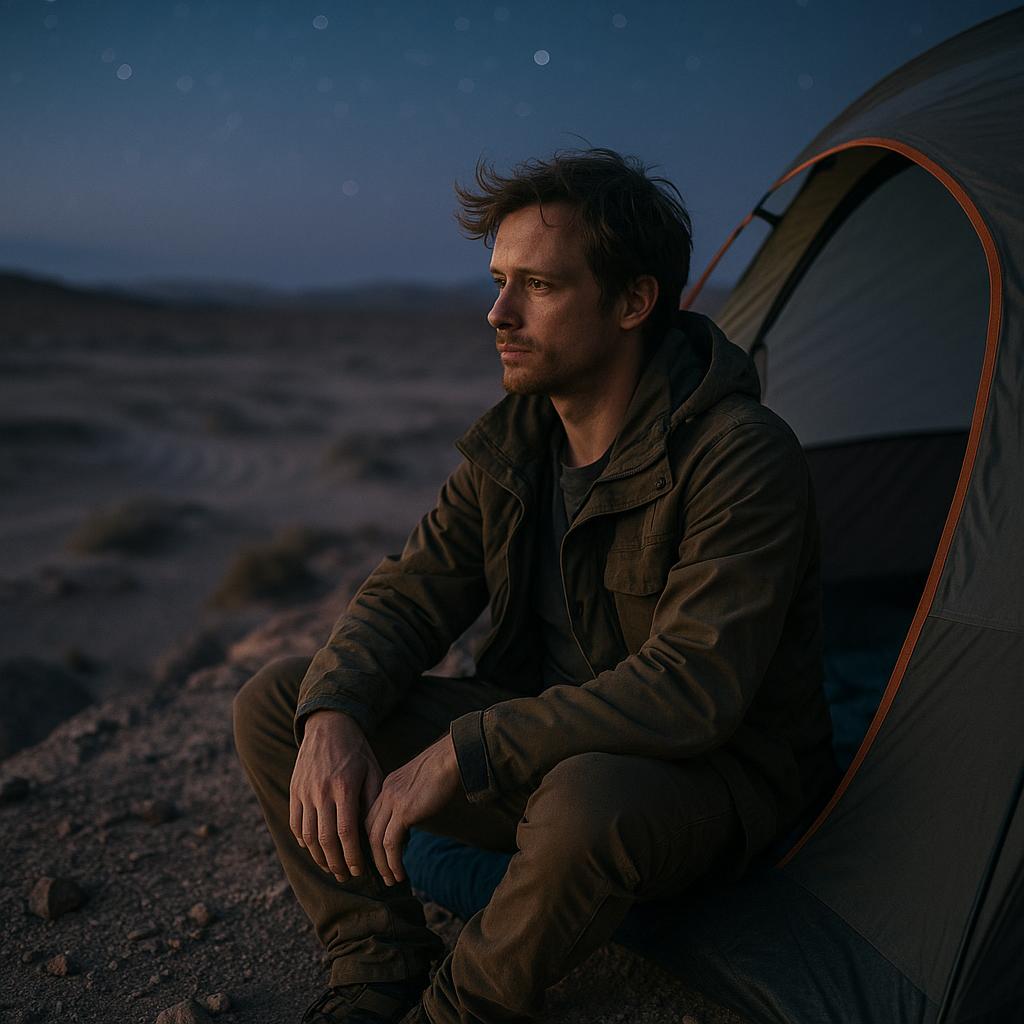 Image by RM AI
Image by RM AI
The Local Guide
Dawn broke over the desert with a watercolor palette of oranges and pinks that would have made Mom reach for her brushes. I was refilling my water bottle when I noticed him—an elderly man checking what looked like animal traps about fifty yards from my campsite. My first instinct was caution (eight years of true crime podcasts will do that to you), but something about his weathered face reminded me of my grandfather. "You lost, young lady?" he called out, his voice carrying easily across the still morning air. His name was Ernesto, and he'd lived in this unforgiving landscape for all of his seventy-eight years. When I explained about Mom and Dad, about the coordinates and the white speck on the satellite image, his expression softened. "The desert keeps its secrets well," he said, resting a calloused hand on my shoulder, "but sometimes it reveals them to those who are patient." He knew every canyon, cave, and crevice in these parts—including several abandoned mines that weren't on any official maps. "Tourist maps," he scoffed, "they only show what the government wants you to see." As he offered to guide me to places I'd never find on my own, I felt something I hadn't experienced in months: genuine hope. What I didn't realize was that Ernesto knew far more about my parents' disappearance than he initially let on.
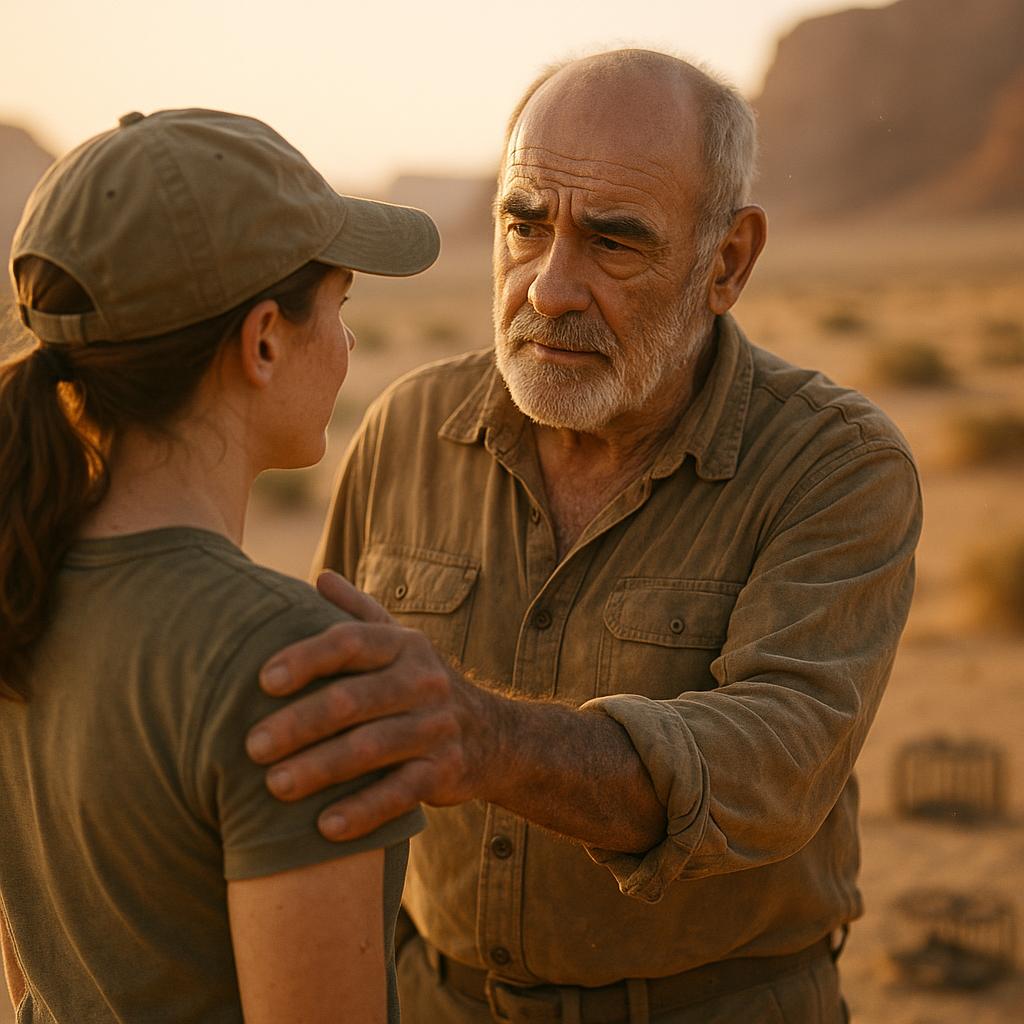 Image by RM AI
Image by RM AI
The Hidden Mines
Ernesto led me through a maze of narrow canyons, the sun beating down mercilessly on our backs. 'Silver rush of '52,' he explained, gesturing toward collapsed mine entrances and equipment that looked like post-apocalyptic sculptures. 'Seven men died when the main shaft collapsed. After that, folks said the place was cursed.' I pulled out the newspaper clipping I'd found during those long nights at the library, along with the honeymoon photo of Mom and Dad. My hands trembled slightly as I passed them to him. Ernesto studied both images with the careful attention of someone who knew this land intimately. 'The rock formations match,' he said finally, nodding slowly. 'This is the place. Your father definitely brought your mother here.' My heart raced as we spent the next four hours exploring every accessible tunnel and crevice. I called their names until my voice grew hoarse, shined my flashlight into shadows that seemed to swallow the beam whole. But we found nothing—no footprints, no equipment, no sign that anyone had been here recently. As the sun began to set, casting long shadows across the canyon walls, Ernesto placed a weathered hand on my shoulder. 'There's one more mine,' he said quietly. 'It's not on any map. The locals avoid it because... well, strange things happen there.'
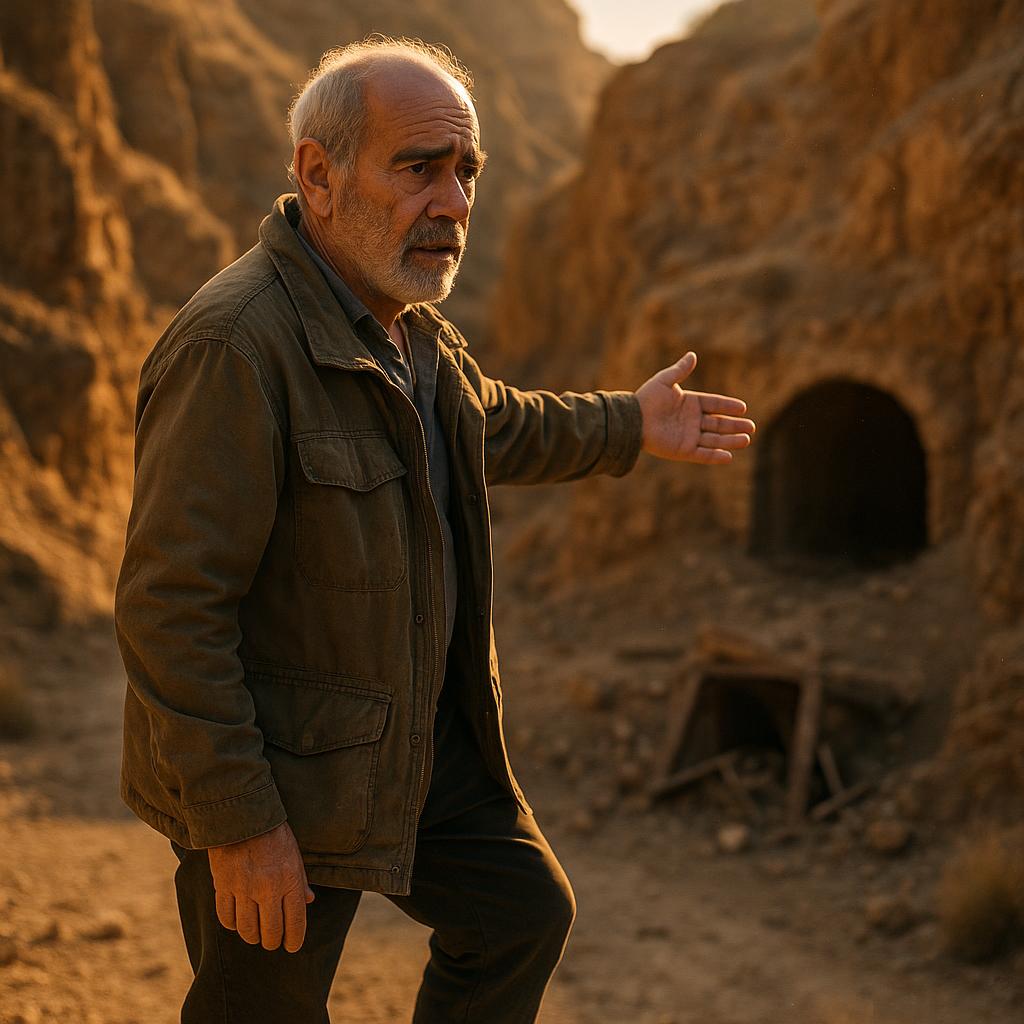 Image by RM AI
Image by RM AI
The Storm
The sky darkened without warning, turning from crystal blue to an angry charcoal in minutes. Ernesto and I barely made it back to his truck before the first fat raindrops hit, quickly becoming a violent downpour that drummed against the metal roof like impatient fingers. 'Desert storms don't mess around,' he said, wiping condensation from the windshield. As lightning split the sky, illuminating the landscape in harsh flashes, Ernesto's weathered face looked almost ghostly. 'You're not the first person to search these parts,' he told me, his voice barely audible above the storm. 'Back in '76, the Martinez family—all five of them—vanished without a trace. Then there was that geology professor from UCLA in '82...' He listed names and dates with the precision of someone who'd carried these stories for decades. 'Sometimes the earth opens up,' he continued, gesturing toward the rain-soaked terrain. 'Sinkholes appear where solid ground stood just hours before.' I pressed my forehead against the cool glass, watching muddy rivers form where our footprints had been. The desert was literally washing away our tracks before my eyes. A chill ran through me that had nothing to do with the temperature. If a storm like this hit when Mom and Dad were exploring... God, no wonder search teams found nothing. What terrified me most wasn't just that they might have disappeared into the earth—but that Ernesto seemed to know exactly where it might have happened.
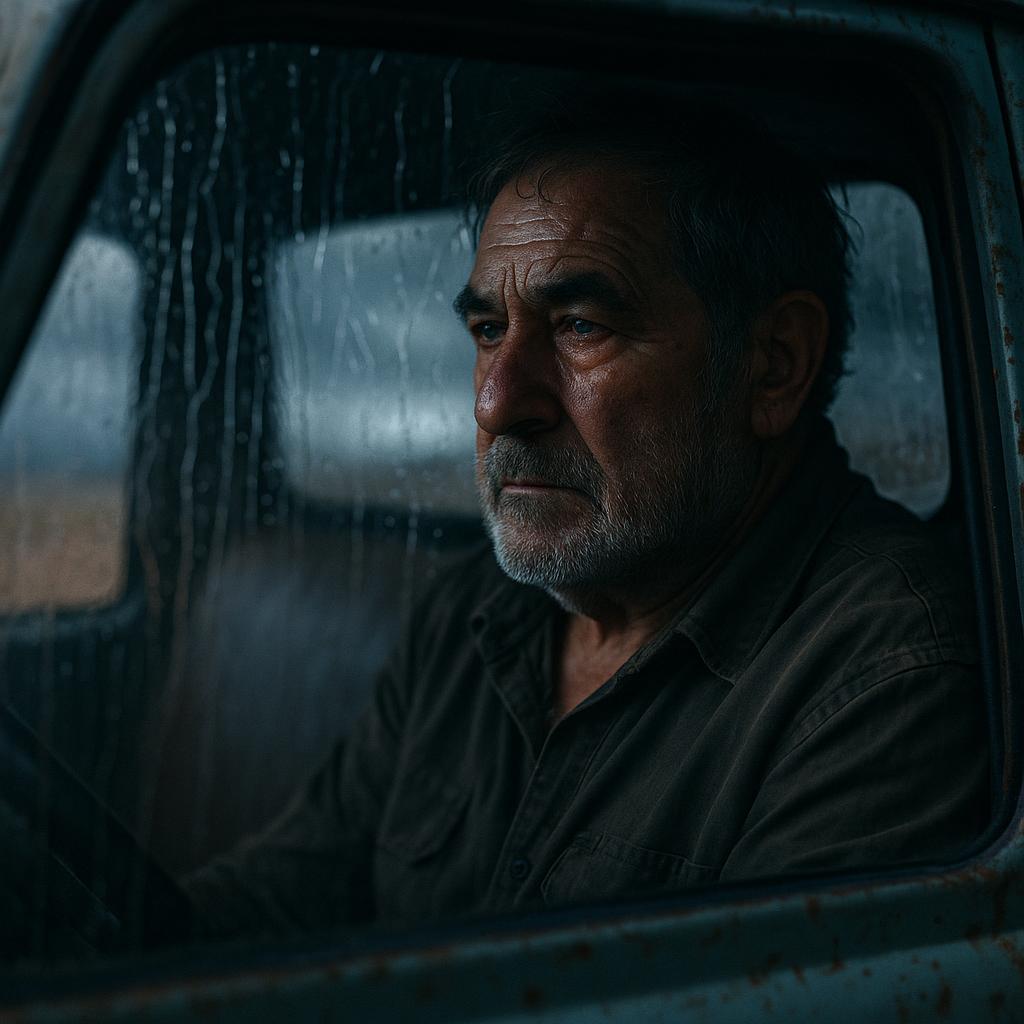 Image by RM AI
Image by RM AI
The Return Home
I dragged myself back to my apartment after three grueling days in the desert with Ernesto, my skin angry and peeling from the relentless sun. When Jamie spotted me at work the next day, she raised an eyebrow at my lobster-red face. 'Some vacation,' she smirked. I mumbled something about hiking trails and dehydration, unable to admit I'd been chasing ghosts through abandoned mines. That night, I sat cross-legged on my living room floor, meticulously adding Ernesto's hand-drawn maps to my investigation board—my shrine to obsession that had consumed the entire wall. I pinned up notes about the mines, the sinkholes that could swallow people without warning, and the eerie list of others who had vanished in that same stretch of desert. My fingers traced the red string connecting theories, my eyes burning from exhaustion. The board had grown so large it was practically wallpaper now, a visual manifestation of my refusal to let go. As I taped up a photo of the storm-washed canyon where we'd searched, my phone buzzed with a text. Unknown number. 'Check your email. Found something in the mine after you left.' My heart slammed against my ribs as I lunged for my laptop.
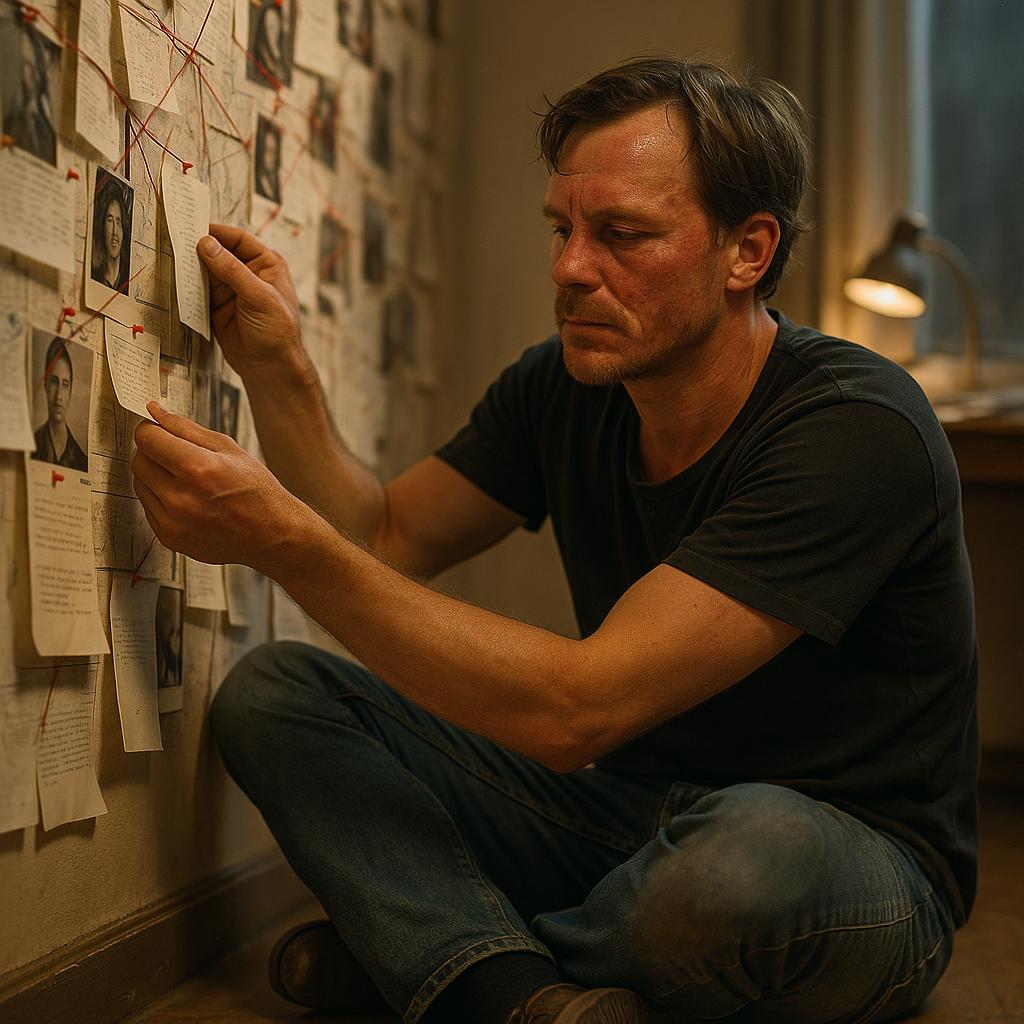 Image by RM AI
Image by RM AI
The Third Year
The third year without Mom and Dad felt like living in a strange limbo—not quite moving on, but not completely frozen either. My wall of maps had expanded to include a color-coded timeline and weather reports from that fateful weekend. The local newspaper ran one of those 'Whatever Happened To...' articles on the anniversary, complete with their smiling faces from happier times. I couldn't bring myself to read it. Aunt Sarah finally convinced me to see Dr. Novak after finding me asleep at my kitchen table, surrounded by printouts of terrain surveys. Unlike the grief counselor who kept pushing me to 'accept the loss,' Dr. Novak actually got it. 'Uncertainty is its own kind of trauma,' she told me during our second session, her voice gentle but matter-of-fact. 'You can honor your parents by searching for them AND by living your life fully.' I started small—joined a book club, reconnected with my college roommate, even went on one spectacularly awkward date with a guy who didn't run when I mentioned my missing parents. I still drove out to the desert every few months, still checked the missing persons forums daily, but I was learning to carry my search differently. What I didn't realize was that someone had been watching my search efforts all along, waiting for the perfect moment to make contact.
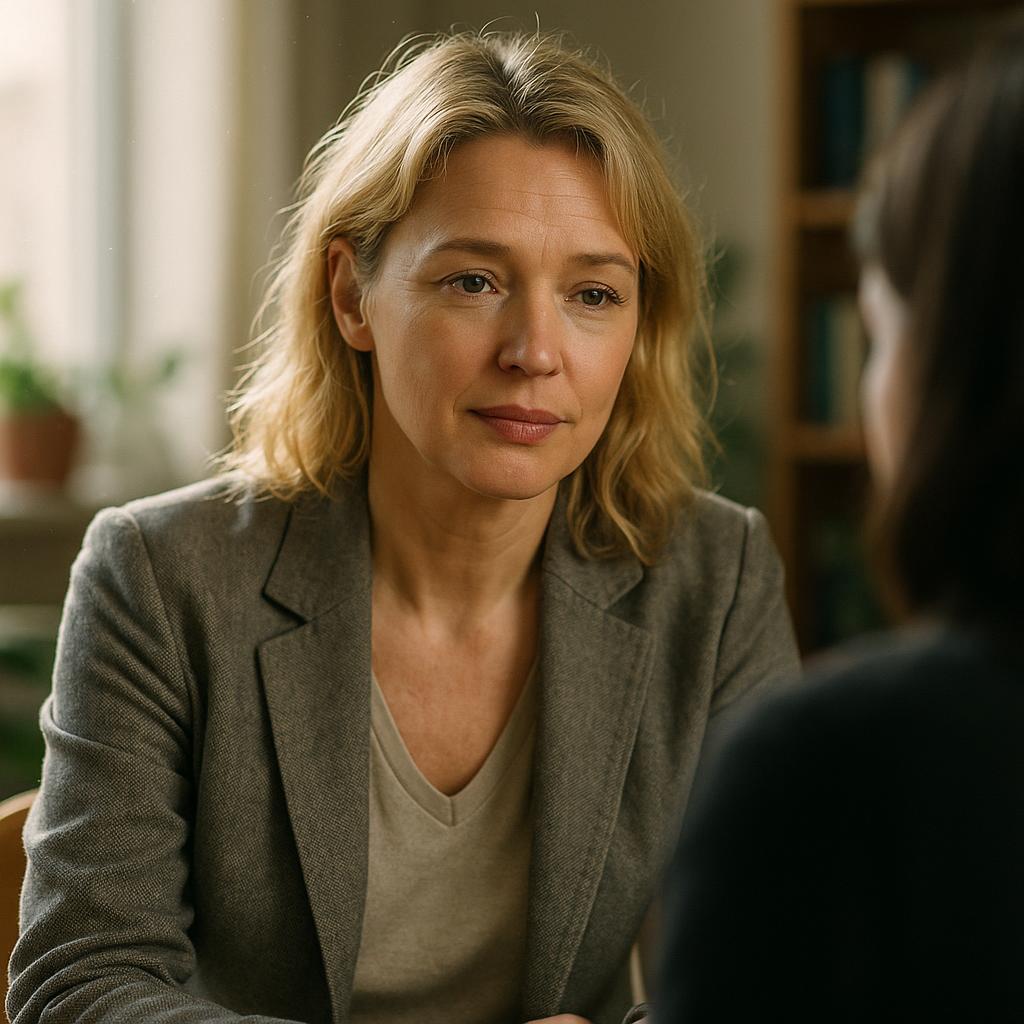 Image by RM AI
Image by RM AI
The New Beginning
Dr. Novak's words about 'living fully while searching' echoed in my mind as I enrolled in geology and cartography courses at the community college. If I was going to keep looking for Mom and Dad, I needed actual skills, not just determination. The classroom became my sanctuary—a place where missing persons weren't the topic of every conversation. For three hours twice a week, I was just Lily the student, not Lily the girl with the vanished parents. I even joined a local hiking group, where nobody knew my story. The first time someone asked about my weekend plans without that pitying look, I nearly cried from relief. Among the hikers was Adrian, a soft-spoken environmental scientist who noticed my obsession with desert formations. "You study those maps like they hold the secrets of the universe," he commented during a water break. When I mumbled something about a personal project, he offered to lend me his specialized topographical surveys—the kind not available to the public. His kindness, offered without knowing my real motives, cracked something open inside me. That night, I stared at my investigation wall and realized I hadn't added anything new in weeks. For the first time in years, I was building a life that wasn't entirely consumed by searching. What I didn't know then was that Adrian's maps would reveal something that would change everything.
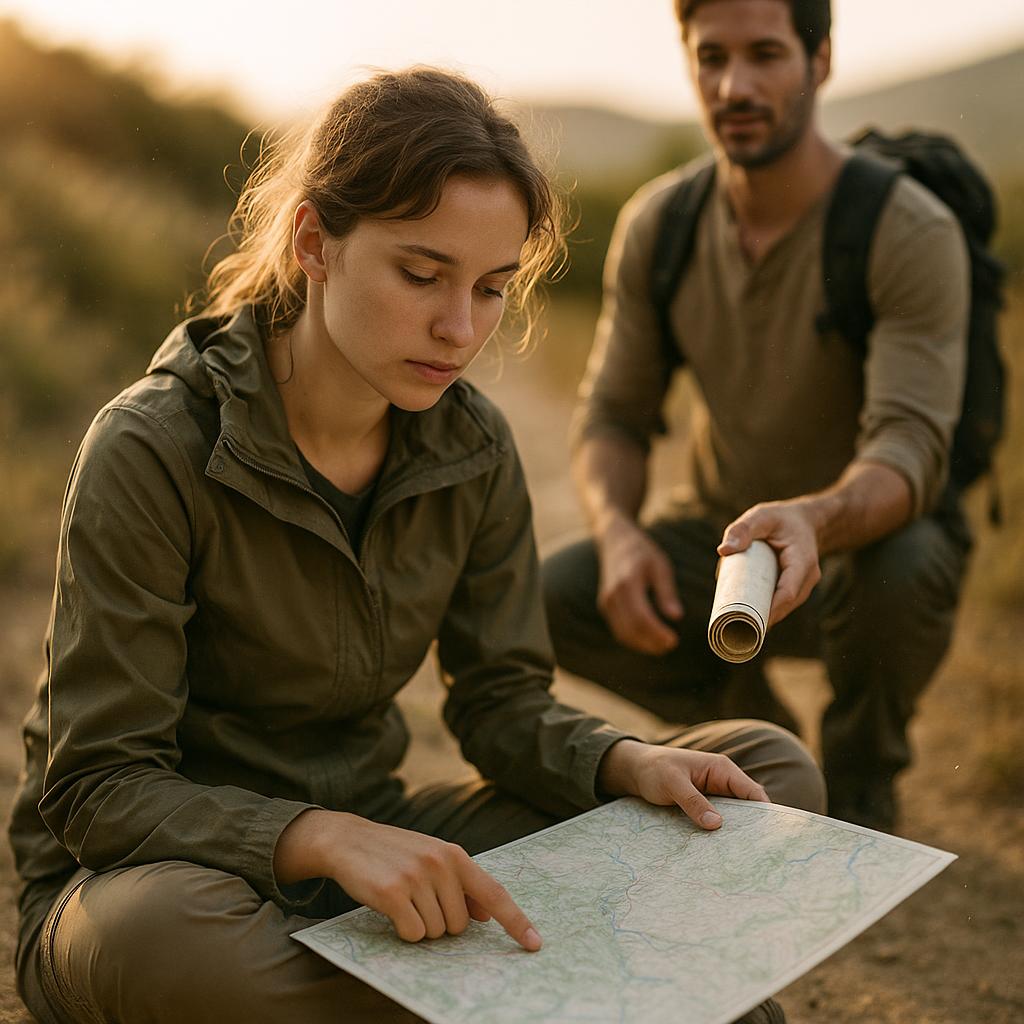 Image by RM AI
Image by RM AI
The Unexpected Connection
Adrian became my unexpected lifeline. What started as map discussions evolved into movie nights where we'd argue about plot holes, and coffee dates where I'd actually remember to drink my latte before it went cold. For the first time in years, I found myself genuinely present in moments rather than mentally cataloging terrain features or calculating search grids. One evening at his apartment, surrounded by half-eaten takeout containers, I cautiously shared that I was researching abandoned mines. The words 'my parents disappeared' stayed locked behind my teeth, though. Adrian nodded thoughtfully, his eyes holding mine a beat longer than necessary. 'I've got something that might help,' he said, pulling up his laptop. My breath caught as his screen filled with satellite imagery I'd never seen before—crystal-clear views of the exact desert region I'd been obsessing over for years. 'These are from my environmental impact work,' he explained, zooming in on details I couldn't make out in my grainy government photos. 'The resolution is military-grade.' My fingers hovered over the screen, trembling slightly as I spotted landmarks Ernesto had shown me. 'How did you get these?' I whispered. Adrian's answer made my heart skip: 'My team mapped that entire area last year after unusual geological activity was reported—including what might be a previously undocumented sinkhole.'
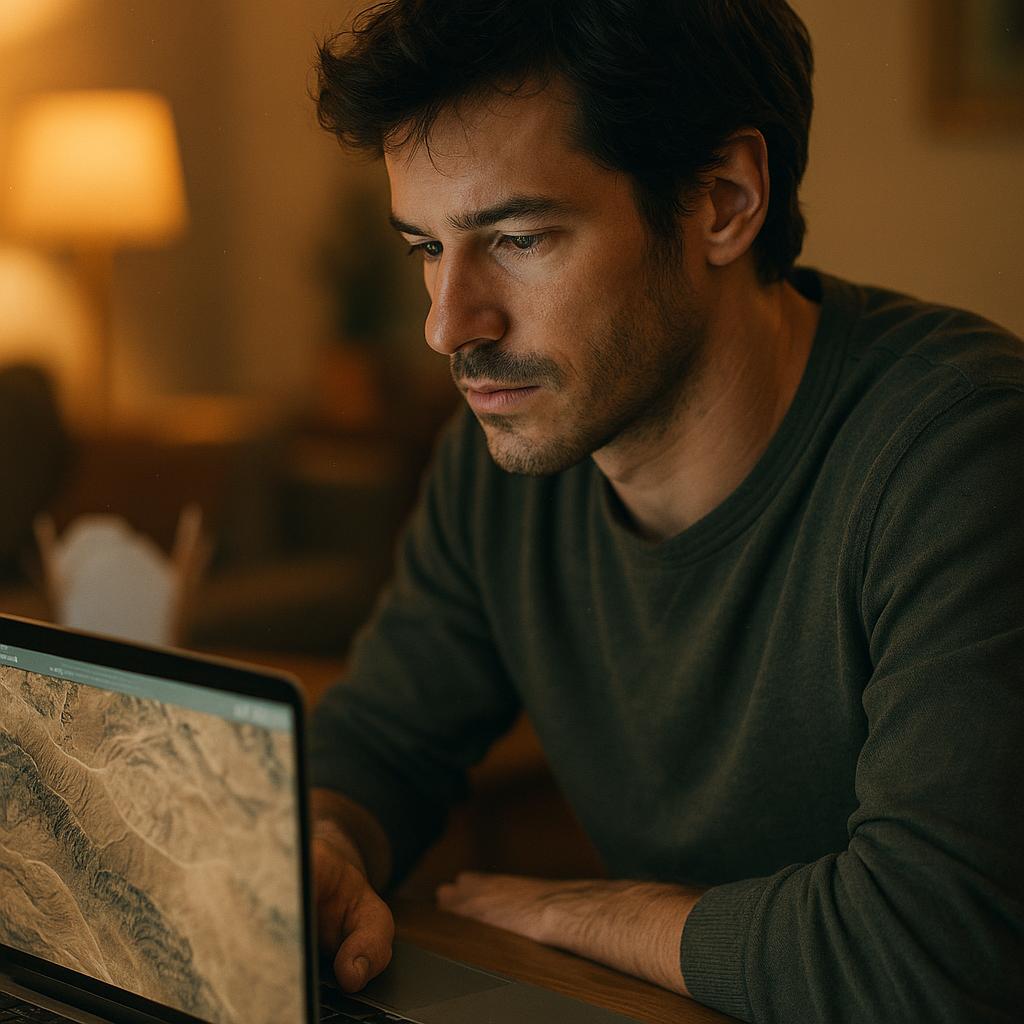 Image by RM AI
Image by RM AI
The Confession
I finally did it. After months of growing closer to Adrian, I invited him over and showed him my wall—the sprawling investigation board that had consumed my apartment and my life for years. My hands trembled as I explained everything about Mom and Dad, the desert, the mines, and my refusal to give up. I braced myself for the awkward silence, the pitying look, the gentle suggestion that maybe it was time to 'move on.' Instead, Adrian stepped closer to the board, studying it with genuine interest. 'My mom disappeared when I was twelve,' he said quietly. 'Boating accident. They never found her body.' He turned to me, his eyes reflecting a pain I recognized instantly. 'That kind of loss—without closure—it's different. People who haven't experienced it can't understand.' That night, we sat cross-legged on my living room floor, reorganizing my chaotic research with his scientific precision. Post-it notes became color-coded categories. Scattered theories transformed into methodical timelines. For the first time in years, I didn't feel crazy for continuing to search. What I didn't realize then was that Adrian's help would lead us to discover something in those satellite images that would change everything—something that had been hiding in plain sight all along.
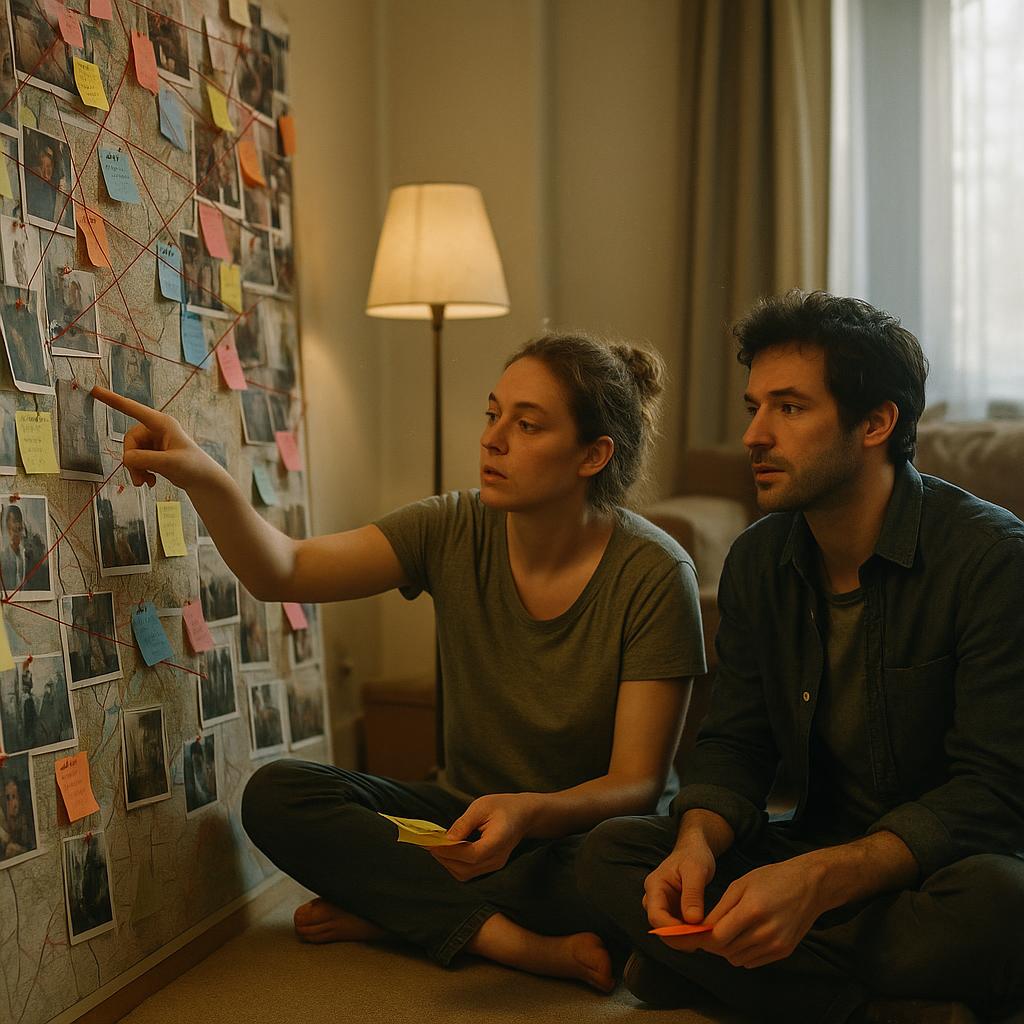 Image by RM AI
Image by RM AI
The New Perspective
Adrian spread the radar images across my kitchen table, his fingers tracing ghostly outlines beneath the desert surface. 'See these shadows?' he said, pointing to strange rectangular formations. 'Natural caves don't form perfect right angles.' My heart raced as I leaned closer, seeing the desert with new eyes. For years, I'd been walking over a hidden world, never knowing what lay beneath my feet. 'This could be an old mining tunnel,' I whispered, pointing to a long, narrow void. 'And this...' Adrian's voice trailed off as he highlighted a larger anomaly. 'This could be a vehicle.' I gripped the edge of the table, steadying myself. Could it be Dad's truck? The one that vanished with them? We spent hours analyzing the data, marking coordinates on a fresh map. 'We need to be methodical,' Adrian cautioned, but I could hear the excitement in his voice too. That night, I added the radar images to my wall, feeling a strange mix of hope and terror. After ten years of searching, technology was finally showing me what my eyes couldn't see. As we packed our gear for the weekend expedition, I couldn't help but wonder: if my parents were down there all this time, what else might be waiting in the darkness below?
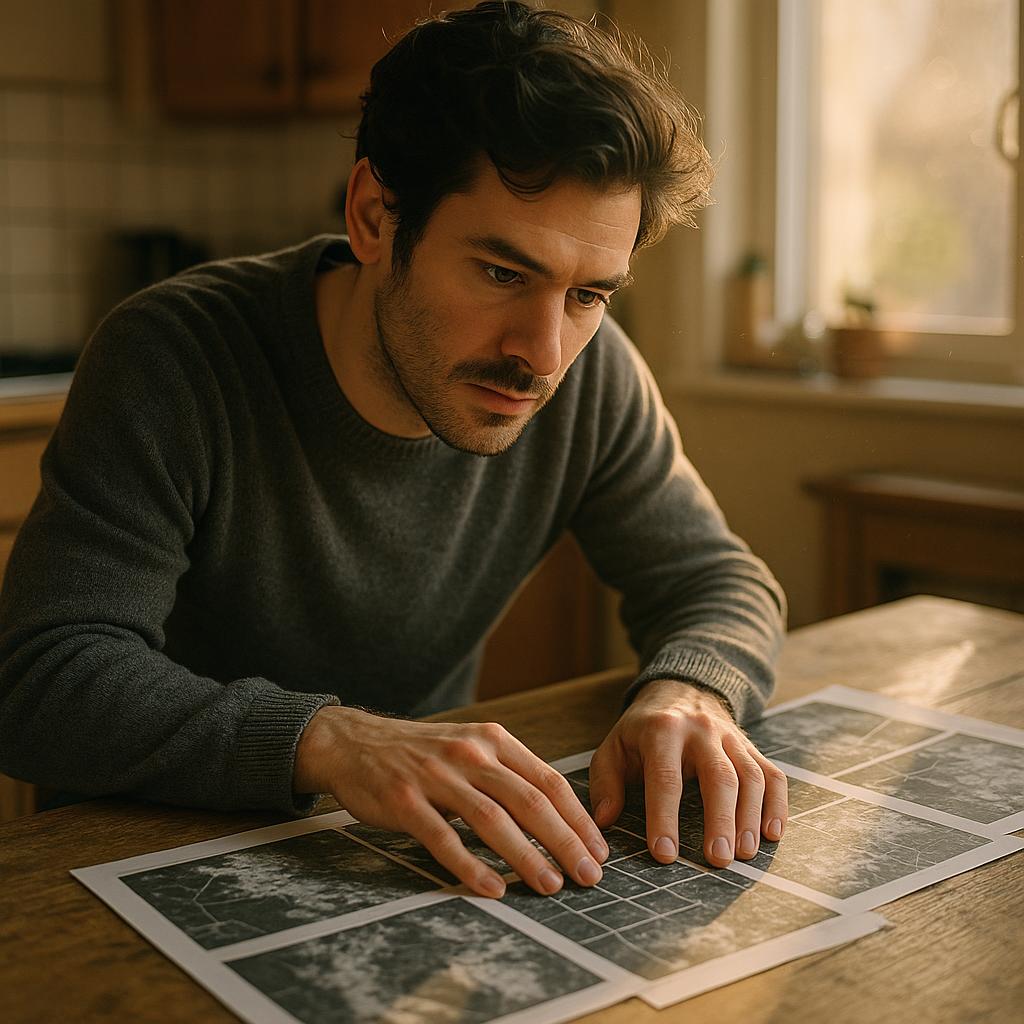 Image by RM AI
Image by RM AI
The Return to the Desert
The desert sun beat down mercilessly as Adrian and I set up our makeshift excavation site. We'd already checked two locations on our list—both disappointments. The first turned out to be nothing but oddly shaped rock formations that had tricked the radar, and the second was just some jerk's abandoned refrigerator half-buried in sand. But this third spot... something felt different. The equipment readings were stronger, more defined. 'Large metallic object, approximately four feet down,' Adrian confirmed, his voice steady but his eyes betraying excitement. My hands shook so badly I nearly dropped the shovel. Ten years of searching, of wondering, of that horrible limbo between hope and grief—it all converged in this moment. I took a deep breath and plunged the shovel into the sand. 'I've got you,' Adrian said quietly, placing his hand over mine on the handle. 'Whatever we find down there, you're not facing it alone this time.' Tears stung my eyes as we began carefully removing layer after layer of sand. Each shovelful felt like peeling back time itself. After about an hour of digging, my shovel hit something solid with a dull 'clang' that echoed through my entire body. Adrian immediately dropped to his knees, brushing away sand with his hands. That's when I saw it—a patch of faded blue metal emerging from its sandy tomb.
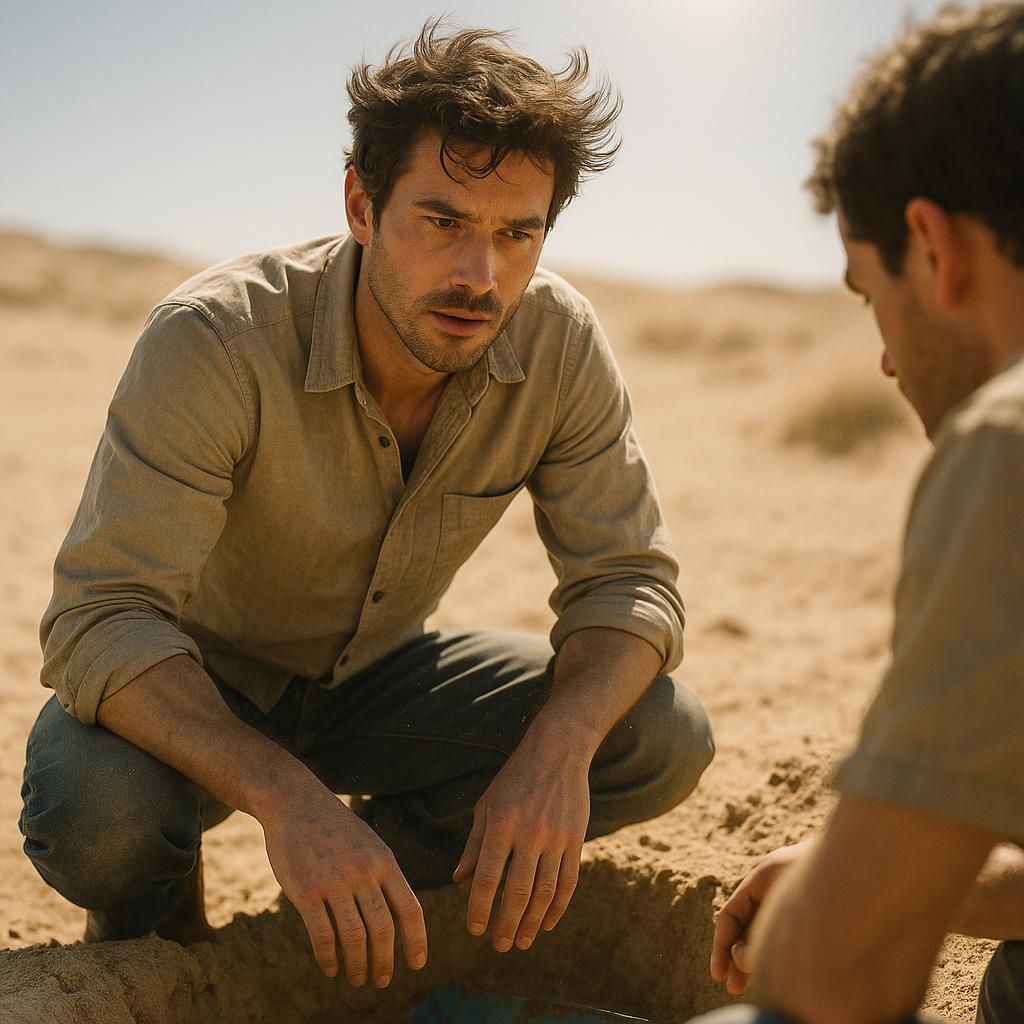 Image by RM AI
Image by RM AI
The Buried Vehicle
The sun beat down on us as we dug, our shovels scraping against something solid beneath the sand. 'I think we found it,' Adrian whispered, his voice tight with anticipation. We worked faster, our hands becoming raw as we cleared away years of accumulated sand. Slowly, painfully, a vehicle emerged—a pickup truck with faded blue paint that had been bleached almost white by the relentless desert sun. One side was partially crushed, as if it had tumbled down an embankment before the desert swallowed it whole. My breath caught in my throat when we uncovered enough to see the license plate. I collapsed to my knees, my fingers trembling as they traced the familiar numbers. 'It's them,' I choked out, tears streaming down my face. 'It's my dad's truck.' Adrian squeezed my shoulder before stepping away to call the authorities. I sat there in stunned silence, my hand resting on the rusted metal that had carried my parents on their final journey. Ten years of searching, of wondering, of that horrible limbo between hope and grief—and here it was, buried beneath my feet all this time. As I waited for the authorities to arrive, I couldn't help but wonder: if the truck was here, where were my parents? And why did it look like someone had tried to hide it?
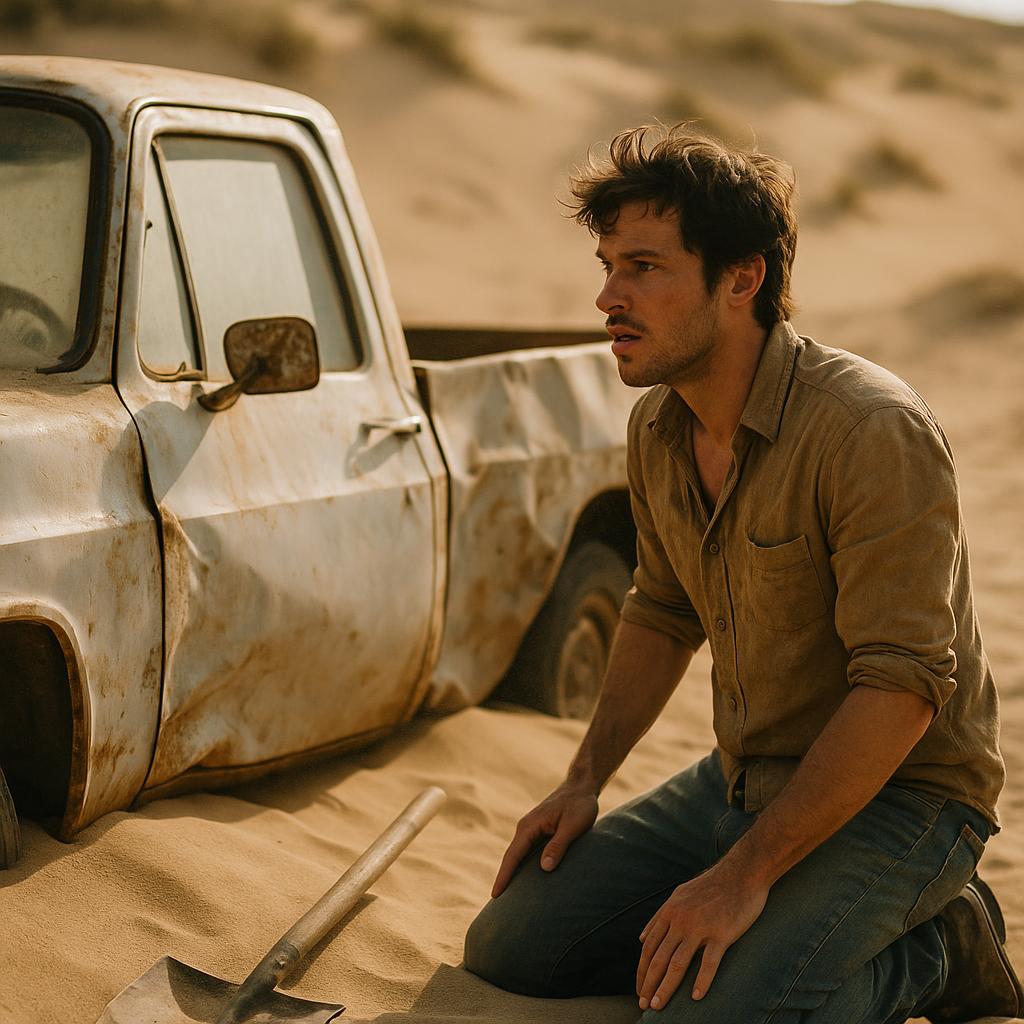 Image by RM AI
Image by RM AI
The Investigation Reopens
Detective Kovač arrived at the site within hours, his unmarked car kicking up dust clouds as he pulled in. I watched as the once-empty desert transformed into a crime scene, yellow tape fluttering in the breeze like some macabre party decoration. 'Ten years,' I whispered to Adrian as forensic techs in white suits carefully excavated Dad's truck. 'Ten years and suddenly everyone cares again.' Kovač, a man with perpetually suspicious eyes, pulled me aside repeatedly. 'So you just happened to find what professional search teams couldn't?' he asked, his tone making it clear he thought I was either lying or hiding something. I felt my face flush with anger. Adrian stepped in, pulling up the radar imaging on his tablet. 'Actually, we used technology that wasn't available during the original search,' he explained, his voice steady where mine would have cracked. The truck itself raised more questions than it answered—keys still in the ignition, no signs of violence, camping gear completely missing. As the sun began to set, casting long shadows across the excavation site, Kovač approached me with a small evidence bag. Inside was my mother's turquoise bracelet, the one Dad had given her on their fifteenth anniversary. 'Found this under the passenger seat,' he said, his voice softening slightly. 'We're reopening the case, Ms. Lily. And this time, we're going to find out what really happened to your parents.'
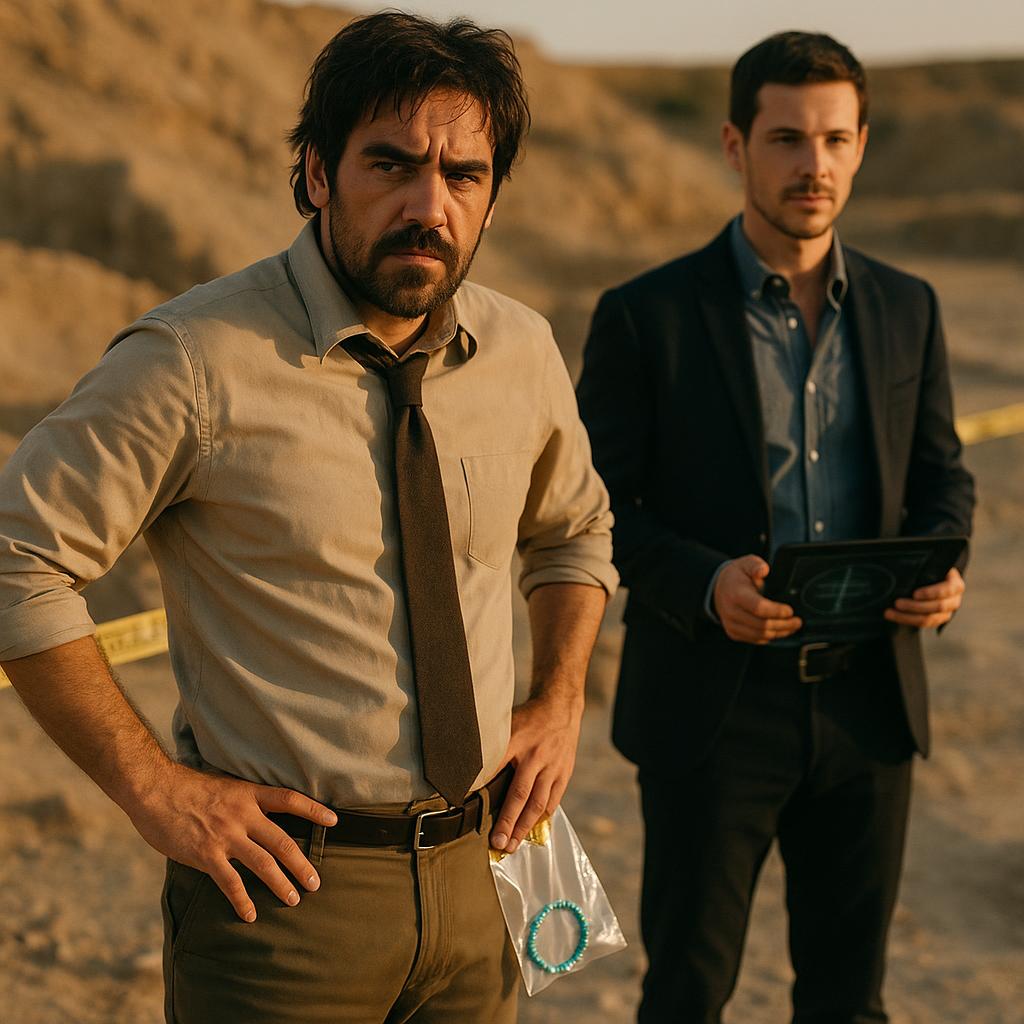 Image by RM AI
Image by RM AI
The Media Returns
I woke up to the sound of someone knocking frantically on my door. When I opened it, a microphone was shoved in my face. 'Lily, how does it feel to finally find your parents' truck after all these years?' The vultures had descended. Within 24 hours of finding Dad's truck, my face was plastered across every local news channel and several national ones. 'DAUGHTER'S DECADE-LONG SEARCH ENDS IN DESERT DISCOVERY' screamed the headlines. My phone buzzed constantly with notifications—old high school friends, distant relatives, even my former grief counselor reached out. Some messages were genuinely supportive, but others had this morbid fascination that made my skin crawl. 'Did you find any... you know... remains?' texted someone I barely knew from college. Adrian helped me draft a statement asking for privacy, but it did little to deter the reporters camping outside my apartment building. 'Just ignore them,' he said, closing my blinds as camera flashes illuminated my living room. 'They'll find something else to obsess over soon.' But as I sat on my couch that night, watching a reporter stand in front of the excavation site where Dad's truck had been found, I couldn't help but wonder—if the desert had kept the truck hidden for ten years, what else might it be concealing just beneath the surface?
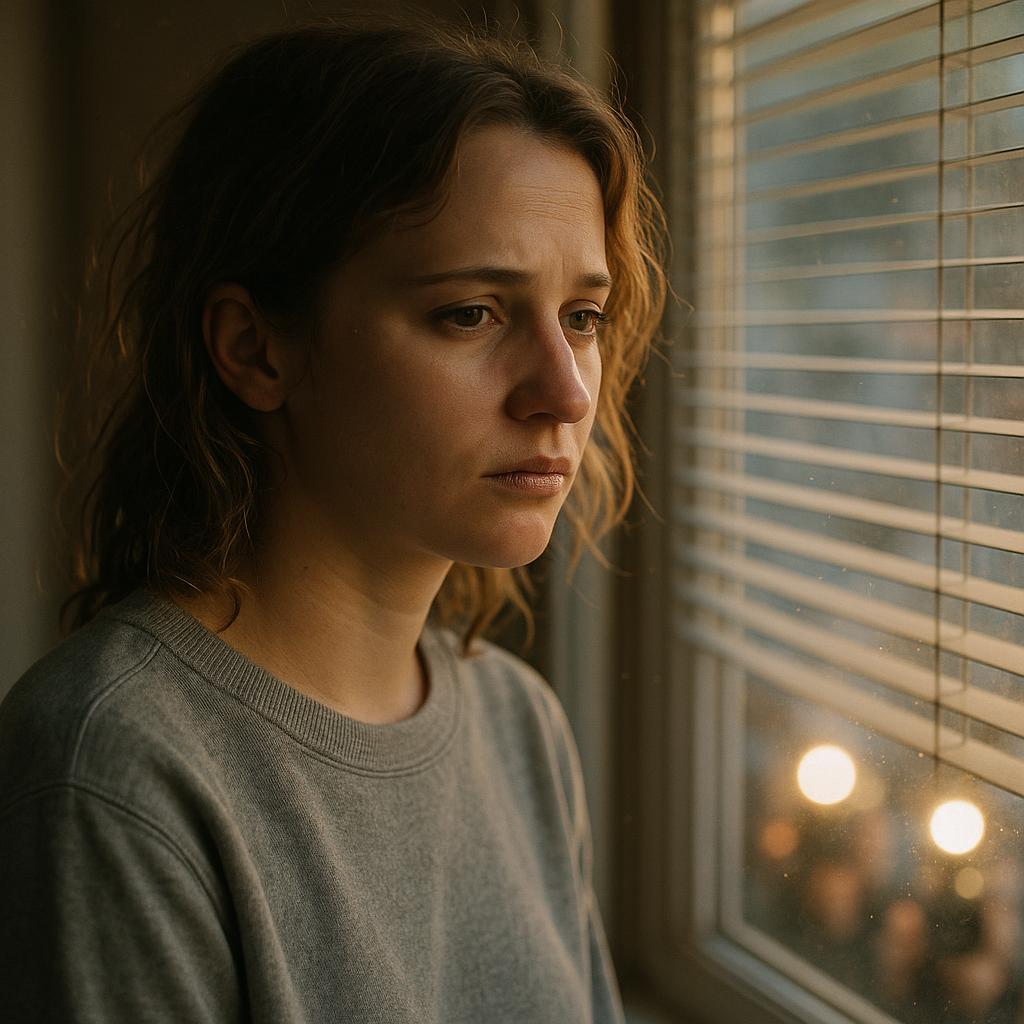 Image by RM AI
Image by RM AI
The Expanded Search
The search operation that unfolded around Dad's truck was unlike anything I'd imagined during my years of solo searching. Detective Kovač mobilized a small army—police cadets, search and rescue volunteers, even a few retired officers who remembered my parents' case. Adrian and I joined the third search team, focusing on the eastern quadrant where the missing camping gear suggested they might have traveled. The desert felt different with all these people trampling through it—less mysterious, more clinical. Grid by grid, we combed the sand and rocks, everyone connected by radio. On the second day, a volunteer's voice crackled through with words that sent electricity through my veins: 'I've got something.' I sprinted across the uneven terrain, nearly twisting my ankle twice before reaching the rocky outcropping. There, half-buried in sand, was Mom's red thermos—the one she'd filled with her famous spiced cider on every camping trip. The color had faded to a dusty pink, but the dent near the cap where Dad had accidentally dropped it years ago was unmistakable. I fell to my knees, cradling it like a precious artifact. 'This is hers,' I whispered to Adrian, who stood protectively beside me. Detective Kovač's expression shifted as he radioed for the forensic team. 'Focus all resources in this direction,' he ordered, his voice carrying a new urgency. As the search teams redirected, following this first tangible breadcrumb, I couldn't shake the feeling that the desert was finally ready to give up its secrets—and I wasn't sure I was prepared for what we might find.
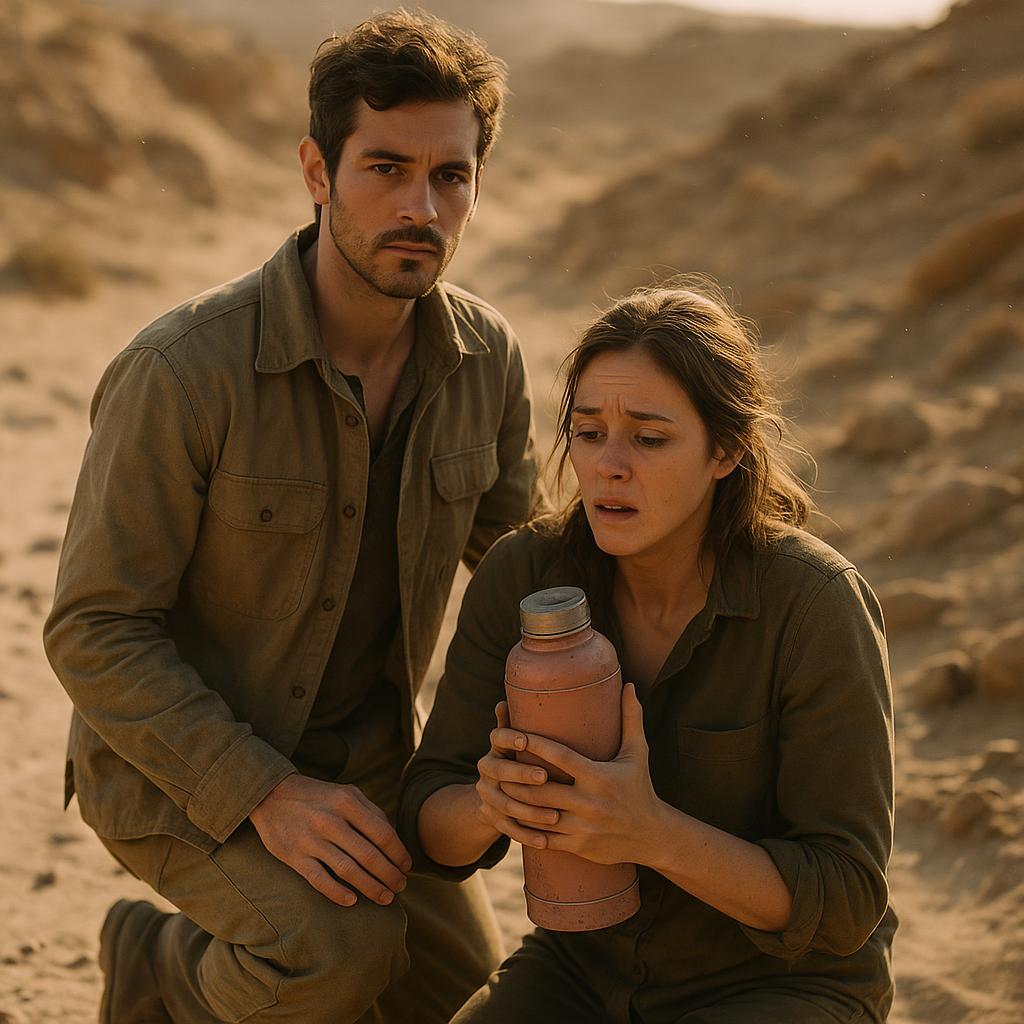 Image by RM AI
Image by RM AI
The Hidden Entrance
The trail of items felt like breadcrumbs leading us to a truth I'd been searching for across a decade of sleepless nights. Each discovery—Mom's faded red thermos, that torn piece of Dad's favorite flannel shirt, the flashlight with our family name etched on the handle—pulled us deeper into the desert's secret. When we pushed aside that thick brush and saw what lay behind it, my knees nearly gave out. 'Oh my God,' I whispered, Adrian's steady hand finding my shoulder. There it was—a mine entrance, its wooden supports rotted and sagging inward like broken teeth. Detective Kovač immediately called for the structural engineer, who confirmed what we could all see—this shaft was a death trap waiting to happen. 'This isn't on any official mining maps,' Ernesto said, his weathered face grave as he studied the entrance. 'Wildcat operation from the silver rush days. Completely off the books.' I remembered Dad's last letter to me, how he'd mentioned finding a 'special place' he wanted to show Mom on their trip. The ground-penetrating radar revealed what my heart already knew—an extensive tunnel system stretched beyond that forbidden entrance, and somewhere in that darkness lay the answer to what happened to my parents. As the team set up equipment around the site, I stood frozen, staring into that black mouth in the earth that had swallowed my family whole.
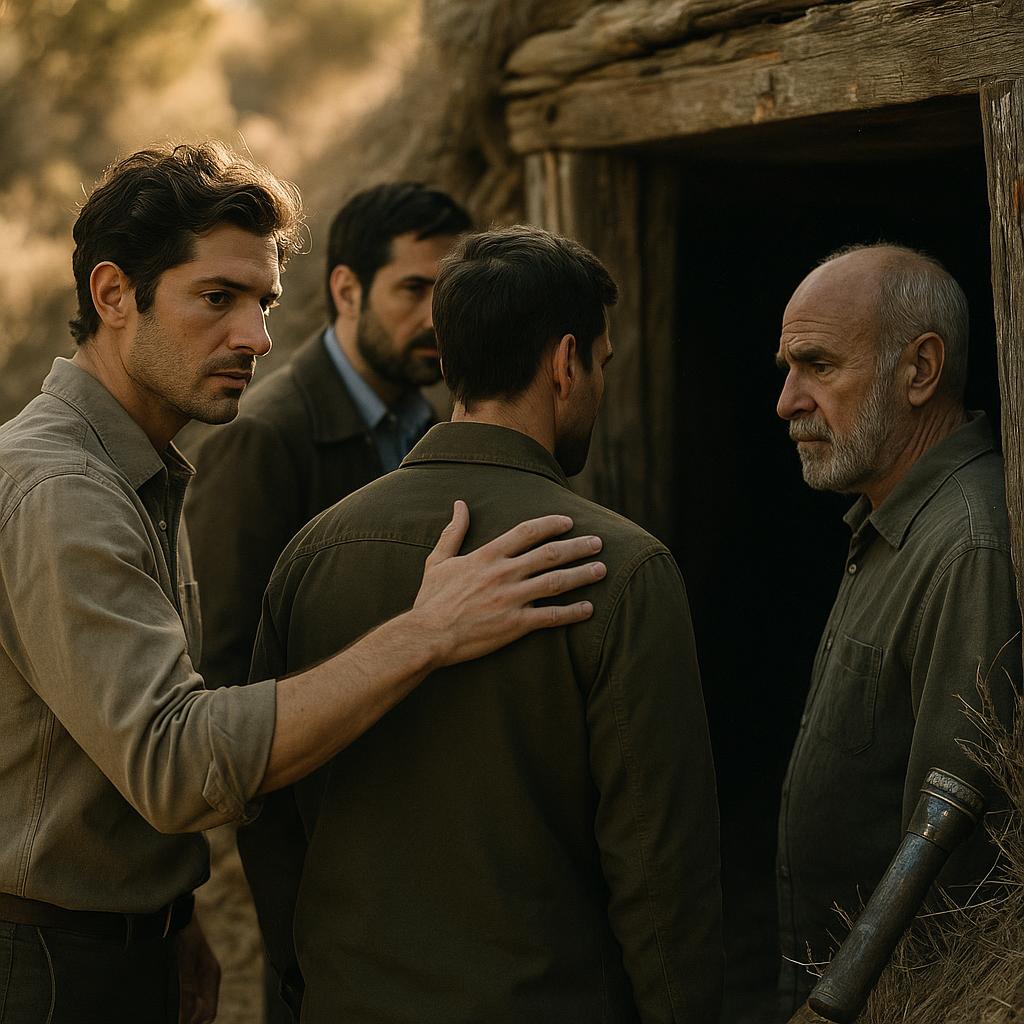 Image by RM AI
Image by RM AI
The Mine Assessment
The mining experts arrived the next morning, their weathered faces grim as they surveyed the entrance. I watched them set up equipment, take measurements, and whisper among themselves, my heart sinking with each concerned glance they exchanged. When the lead engineer finally approached Detective Kovač and me, I already knew it wasn't good news. 'This shaft has multiple structural failures,' he explained, showing us radar images that looked like a spider web of cracks and voids. 'We're detecting larger chambers about fifty yards in, but...' He paused, choosing his words carefully. 'Any attempt to fully excavate could trigger catastrophic collapse.' I felt Adrian's hand slip into mine as Kovač delivered the crushing blow: they could confirm my parents had entered the mine based on the evidence trail, but recovering them might be impossible. After ten years of searching, I'd found where they'd gone—only to learn they might remain there forever. 'So that's it?' I asked, my voice breaking. 'We just... leave them there?' The detective's eyes held genuine regret. 'I'm sorry, Lily. Sometimes the truth doesn't come with the closure we need.' As everyone packed up their equipment, I stood alone at the mine entrance, whispering words I'd held inside for a decade. What I didn't know then was that someone else had been watching our discovery—someone who knew more about this mine than they were willing to share.
The Difficult Decision
The officials gathered around a folding table at the desert command post, presenting me with options that all felt like different flavors of heartbreak. 'We can send in remote cameras,' explained the mining engineer, his weathered face sympathetic, 'but the instability means they might not reach far enough to... find them.' The alternative—a full excavation—would cost millions and potentially endanger the rescue teams. Or, as Detective Kovač gently suggested, they could seal the entrance, place a memorial plaque, and officially declare it my parents' final resting place. 'The decision is yours, Lily,' he said, sliding the paperwork toward me. That night, back at my apartment, Adrian ordered pizza neither of us could eat. 'Whatever you choose, I'm with you,' he promised, squeezing my hand as I stared at the ceiling, paralyzed by the weight of this impossible choice. When I finally fell asleep, I dreamt of Mom and Dad walking through the mine, their flashlights creating dancing shadows on ancient walls, their voices echoing with laughter as they explored. They turned to me—not with fear or sadness, but with the same peaceful expressions they wore when heading out on adventures. I woke at dawn with tears on my face but clarity in my heart. I knew exactly what they would want me to do, even if it meant I might never get to bring them home.
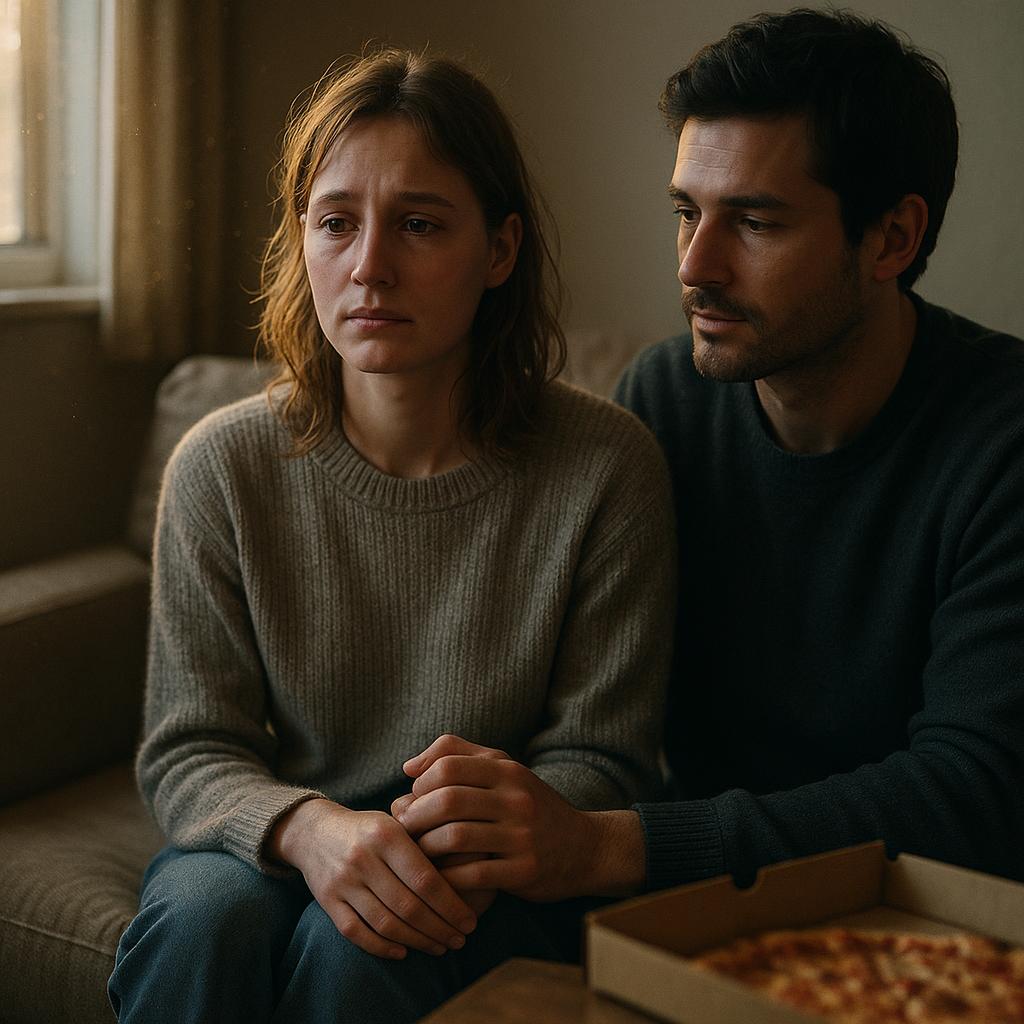 Image by RM AI
Image by RM AI
The Robot Explorer
I couldn't bear the thought of never knowing, so I chose the limited exploration option. The mining team brought in this specialized robot—like something out of a sci-fi movie—equipped with HD cameras and sensors that could navigate where humans couldn't safely go. We all gathered around the monitors as they deployed it into the mine shaft, my heart pounding with each inch it crawled forward. For hours, we watched nothing but collapsed tunnels and rockfalls, the robot's lights casting eerie shadows across ancient stone walls. I was starting to lose hope when suddenly the robot entered a small chamber that had somehow remained intact. The technicians fell silent. There, illuminated in the harsh LED light, was a makeshift camp—two sleeping bags laid out side by side, a battery-powered lantern now covered in dust, and Dad's backpack with the frayed red patch Mom had sewn on after his hiking trip to Yosemite. I pressed my fingers against the screen, tears streaming down my face. 'They were alive in there,' I whispered, Adrian's arm tightening around my shoulders. 'At least for a while.' But what caught my attention next made my blood run cold—carved into the wall beside their camp was a message that changed everything I thought I knew about their disappearance.
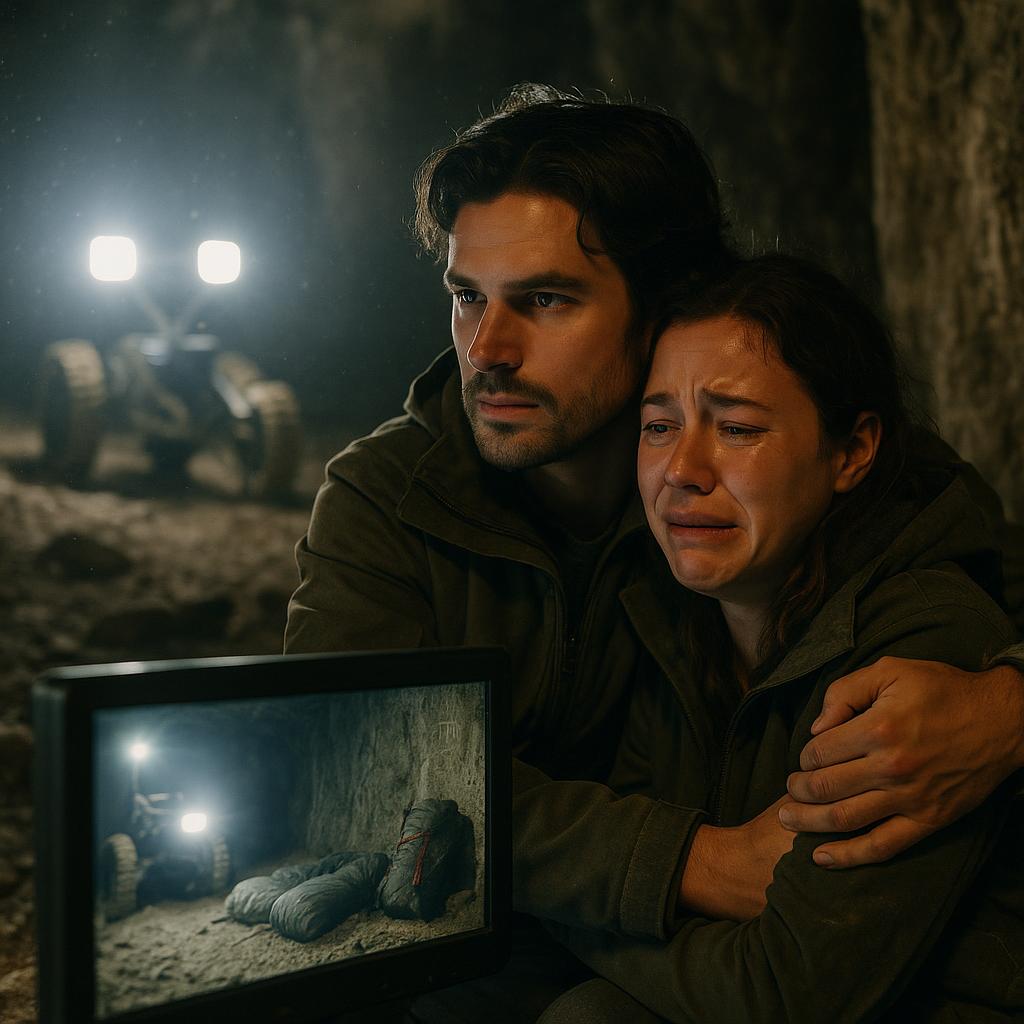 Image by RM AI
Image by RM AI
The Final Evidence
The robot's camera panned slowly across the chamber, revealing the heartbreaking evidence of my parents' final days. Mom's dusty camera sat beside Dad's pocket knife—the one Grandpa had given him that he never went anywhere without. My breath caught when the technician zoomed in on a leather-bound journal. 'That's Dad's handwriting,' I whispered, leaning closer to the screen. Adrian squeezed my shoulder as we watched the robot's mechanical arm gently turn the pages. Dad had documented everything—their excitement at discovering the mine, detailed sketches of crystal formations they'd found, even little love notes to Mom. The final entry sent chills through me: 'Day 3: The tremors are getting worse. Heard more cracking sounds from the main tunnel. Evelyn thinks we should try to—' The sentence ended abruptly, a jagged line trailing off the page. Beyond their makeshift camp, the robot's lights illuminated a solid wall of collapsed rock and earth. Detective Kovač removed his hat, holding it against his chest. 'I'm so sorry, Lily. It appears they were trapped by a cave-in.' I pressed my palm against the screen, as if I could somehow reach through it to touch them. 'At least they were together,' I managed to say through tears. But as the robot made one final sweep of the chamber, its light caught something that made everyone in the room freeze—something that didn't belong in a decades-old mine.
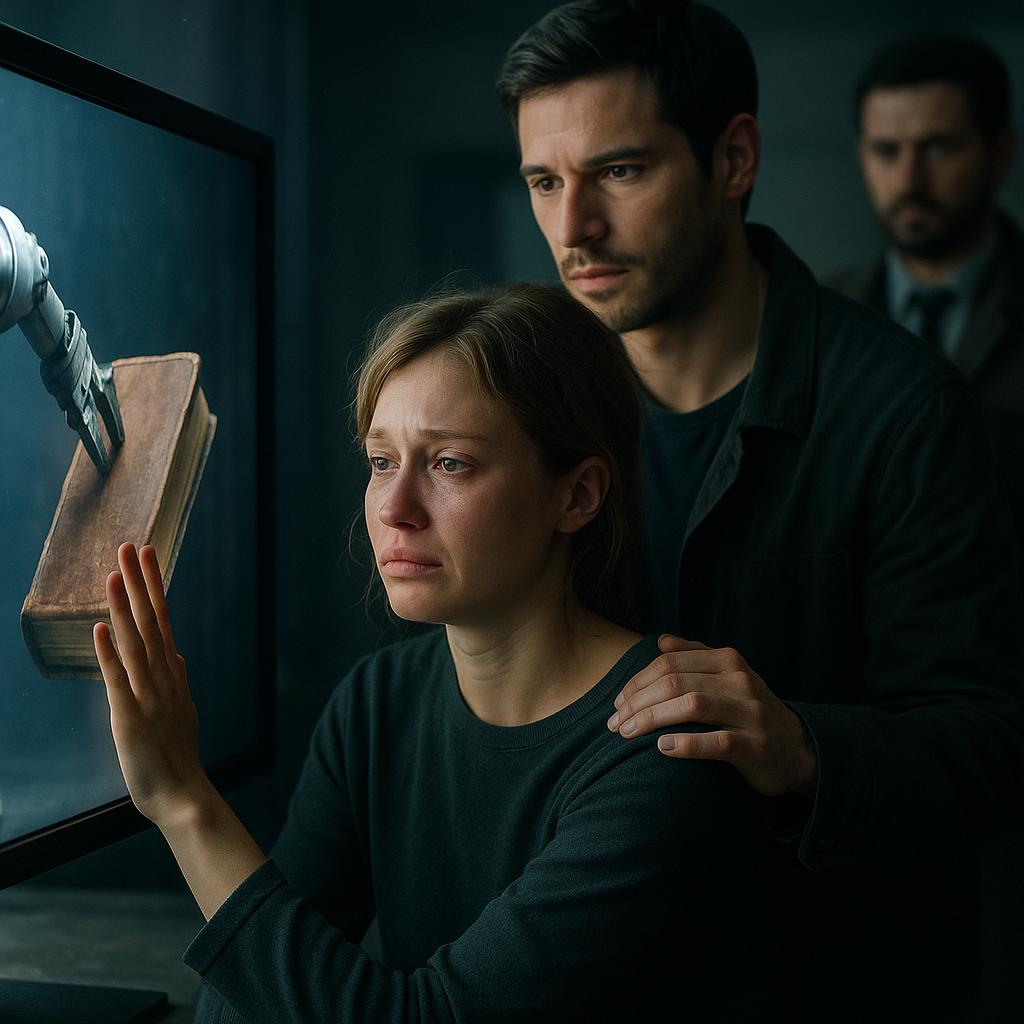 Image by RM AI
Image by RM AI
The Official Conclusion
Two weeks after the robot's discovery, I sat in Detective Kovač's office as he slid a thick manila folder across his desk. 'Case #47291: Mark and Evelyn Harmon,' he said, his voice gentler than I'd ever heard it. 'Officially closed.' The medical examiner's report was clinical in its assessment—they likely ran out of oxygen within days if the initial collapse hadn't killed them instantly. I traced my finger over the official conclusion, the bureaucratic language somehow making it both more real and more distant. 'You found them when no one else could,' Kovač said, respect replacing his earlier skepticism. 'Not many people would have persisted for ten years.' His words were meant as comfort, but they brought little peace. Knowing exactly how they died only sharpened the tragedy of their final moments—together in the darkness, perhaps writing that last journal entry as the mine groaned around them. Adrian waited outside, ready to drive me home with the box of personal effects they'd managed to retrieve with the robot's mechanical arm. As I stood to leave, Kovač hesitated, then asked the question that had clearly been bothering him: 'That item the robot found at the end—the one that didn't belong there. Have you figured out what it means?'
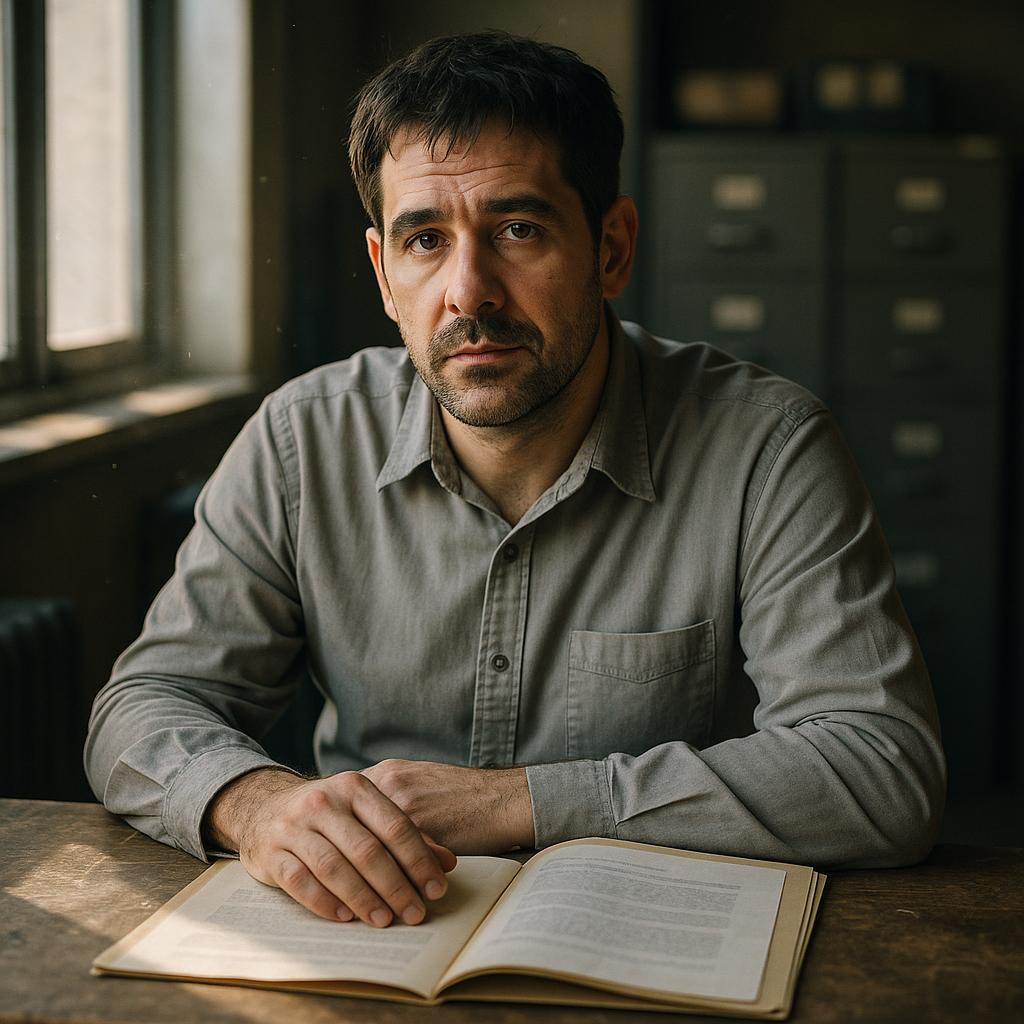 Image by RM AI
Image by RM AI
The Memorial Service
The church was filled with people I hadn't seen in years, some I barely recognized. After a decade of uncertainty, we were finally laying Mom and Dad to rest. I stood at the front, surrounded by photos of their lives—Dad teaching me to fish, Mom laughing at her fortieth birthday party, their wedding day where they looked impossibly young. 'They lived with joy,' Aunt Sarah said, her voice breaking as she spoke about her sister's adventurous spirit. 'The same spirit that carried them through life together.' I felt Adrian's hand slip into mine as tears streamed down my face. For once, they weren't tears of frustration or desperate hope—just pure grief, clean and honest. Detective Kovač sat in the back row, respectfully distant but present nonetheless. After the service, people approached with stories I'd never heard—how Dad had helped a colleague through divorce, how Mom had secretly paid for a neighbor's medical bills. 'Your parents were extraordinary people,' my old high school teacher whispered, hugging me tightly. As everyone filed out, I lingered by the memorial display, finally able to say goodbye without that horrible 'what if' hanging over me. What I didn't realize then was that saying goodbye to the mystery didn't mean all the questions were answered—especially the one about that strange object the robot had found in the mine.
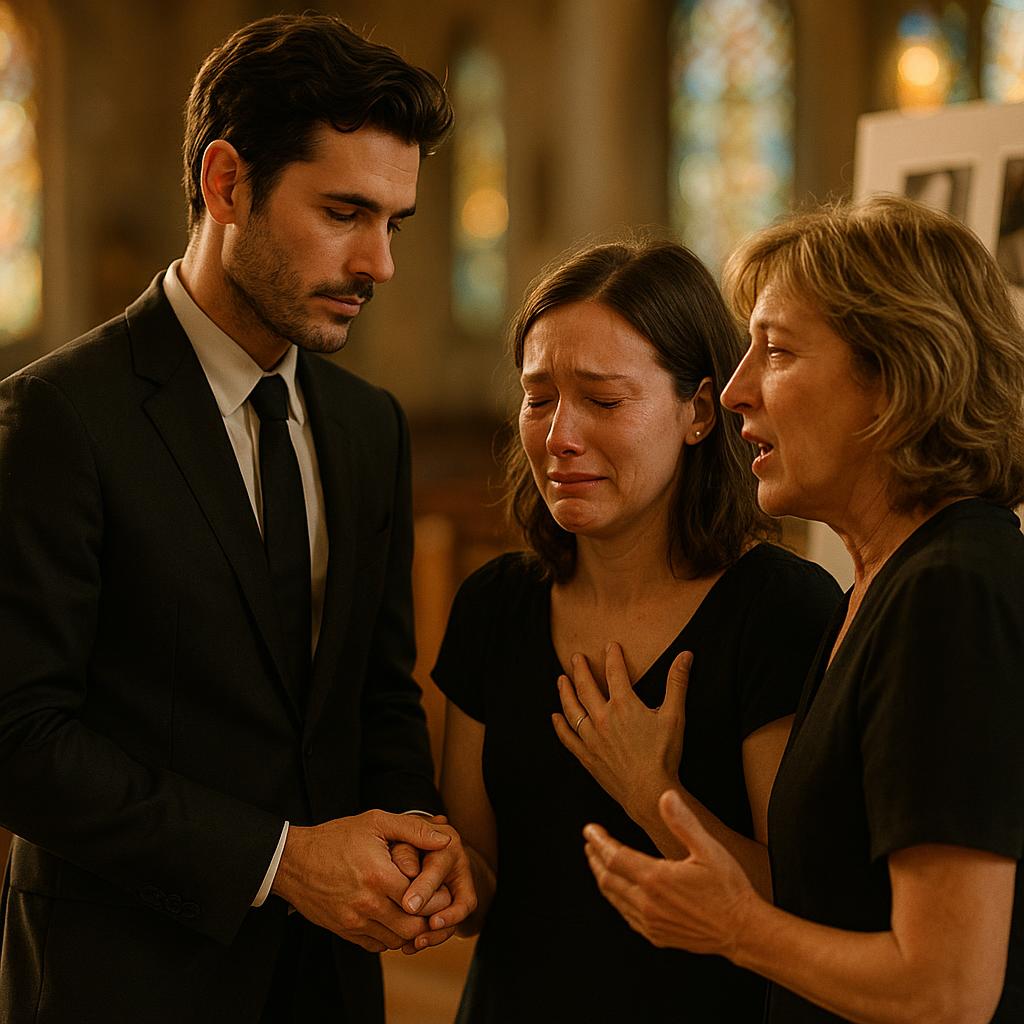 Image by RM AI
Image by RM AI
The Desert Memorial
A week after we laid Mom and Dad to rest in that church filled with faces from the past, Adrian and I made the long drive back to the desert. The county had worked quickly, installing a simple bronze plaque at the now-sealed mine entrance: 'Mark and Evelyn Harmon, Together in Adventure, Together in Rest.' I clutched a bouquet of desert wildflowers—hardy blooms that could withstand the brutal heat, just like my parents' love had weathered life's storms. 'I need a minute,' I whispered to Adrian, who squeezed my hand before stepping back to give me space. As the setting sun painted the landscape in fiery golds and deep crimsons, I knelt and arranged the flowers beneath their names. 'I found you,' I said softly, my voice carrying across the empty desert. 'I never stopped looking.' Tears came, but they felt different now—cleaner somehow, without the desperate edge that had haunted me for a decade. When I finally stood and turned away from the mine, something inside me felt lighter, as if the weight I'd carried since I was 19 had begun to lift. Adrian waited patiently by the car, his silhouette backlit by the dying sun. What I didn't tell him was that I'd slipped something else beneath the flowers—that strange object from the mine that Detective Kovač had questioned me about, the one that didn't belong there.
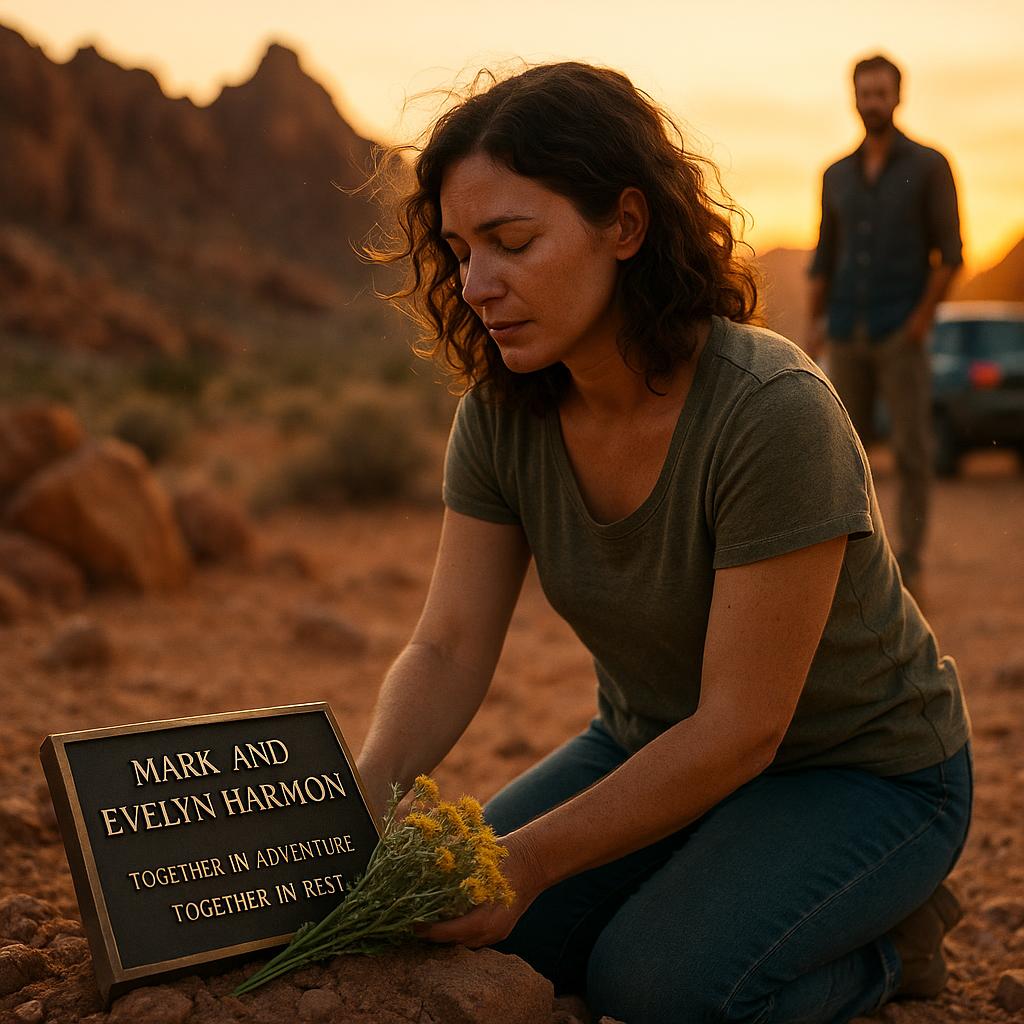 Image by RM AI
Image by RM AI
The Journal Pages
The day they delivered Dad's journal to me felt like receiving a message from beyond. I sat at my kitchen table, hands trembling as I opened the dusty leather cover. His familiar handwriting—those looping g's and sharp t's—brought tears instantly. Page after page revealed their final adventure: Dad's excitement at showing Mom the 'hidden treasure' of the old mine, Mom's delight at the quartz formations they'd discovered. 'Evie says these crystals look like frozen stars,' he'd written, even sketching one in the margin. The entries grew more serious as days passed. 'Felt tremors today. Path back seems unstable.' My heart ached reading his growing concern, the way he'd tried to map alternate routes. The final pages were the hardest—Dad realizing they were trapped, conserving their flashlight batteries, rationing their remaining water. What broke me was the note he'd addressed directly to me: 'Lily, if you're reading this and we're late coming home, don't worry. We'll find a way out. We always do. We love you more than anything in this world.' I pressed the page to my chest, sobbing. They never found that way out, but somehow, these words—the last they'd ever write—gave me something I never expected: their voice, reaching across time, telling me exactly what I needed to hear. But tucked between the final pages was something else—a folded map that made no sense among their belongings.
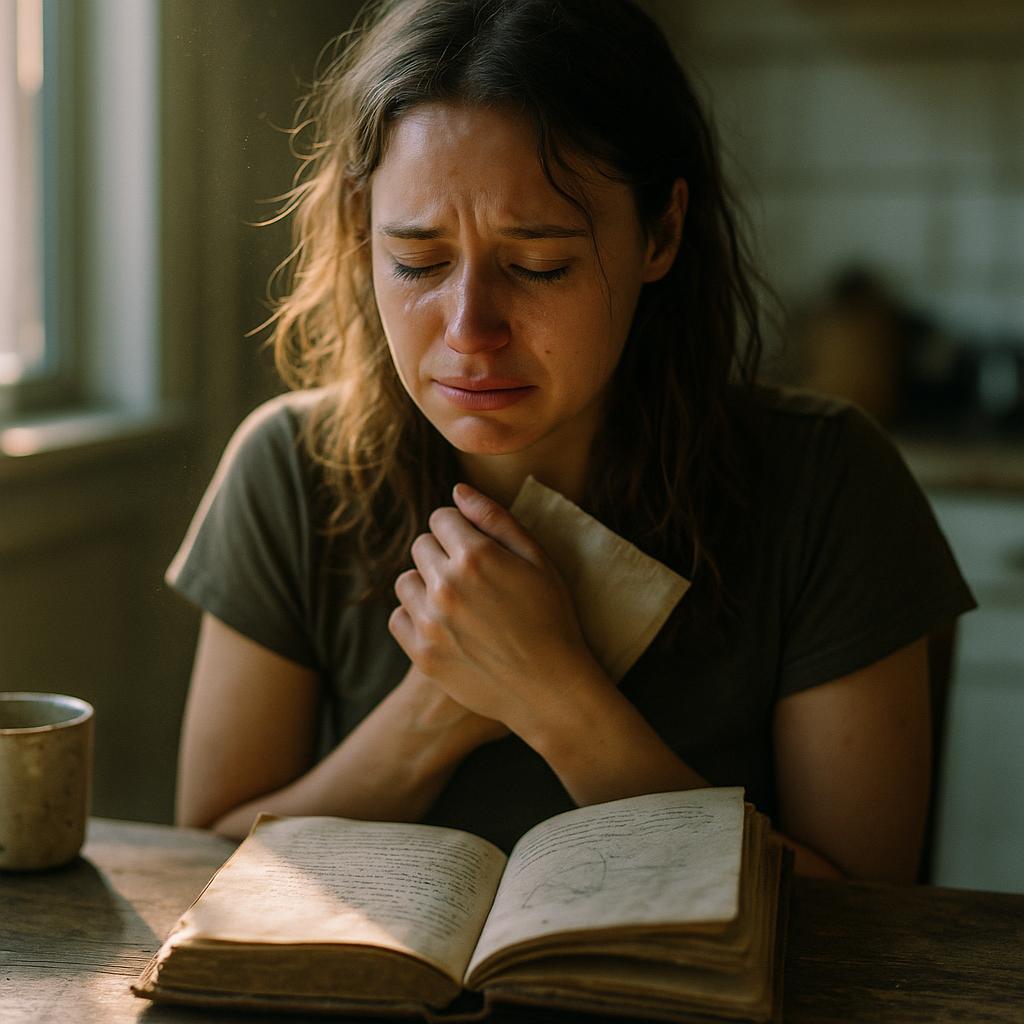 Image by RM AI
Image by RM AI
The Camera's Memory
The technicians called me on a Tuesday morning. 'Ms. Harmon, we've recovered data from your mother's camera.' My hands shook as I drove to the lab, Adrian insisting on coming with me. The photos loaded slowly on the lab computer, each one a punch to my heart. There they were—Mom and Dad, alive and vibrant, their last days captured in pixels. Dad pointing excitedly at desert landscapes he'd explored as a teenager, Mom's eyes crinkling with laughter as they posed for selfies under a canopy of stars I'd forgotten could be so bright. 'Look how happy they were,' I whispered to Adrian, who squeezed my shoulder silently. Then came the mine photos—Dad proudly showing off glittering quartz veins, Mom examining rusted mining equipment. The timestamp showed these were taken just hours before... before everything changed. The final image made my breath catch—Dad examining a narrow passage, his expression concerned, flashlight beam illuminating unstable rocks above. I touched his face on the screen, tears blurring my vision. 'They didn't know,' I said softly. 'They had no idea.' Seeing them in those final moments—alive, together, unaware of what was coming—was both the most heartbreaking and healing thing I'd experienced in ten years. But it was what I noticed in the background of that last photo—something reflecting Dad's flashlight beam—that made me ask the technician if I could see it enlarged.
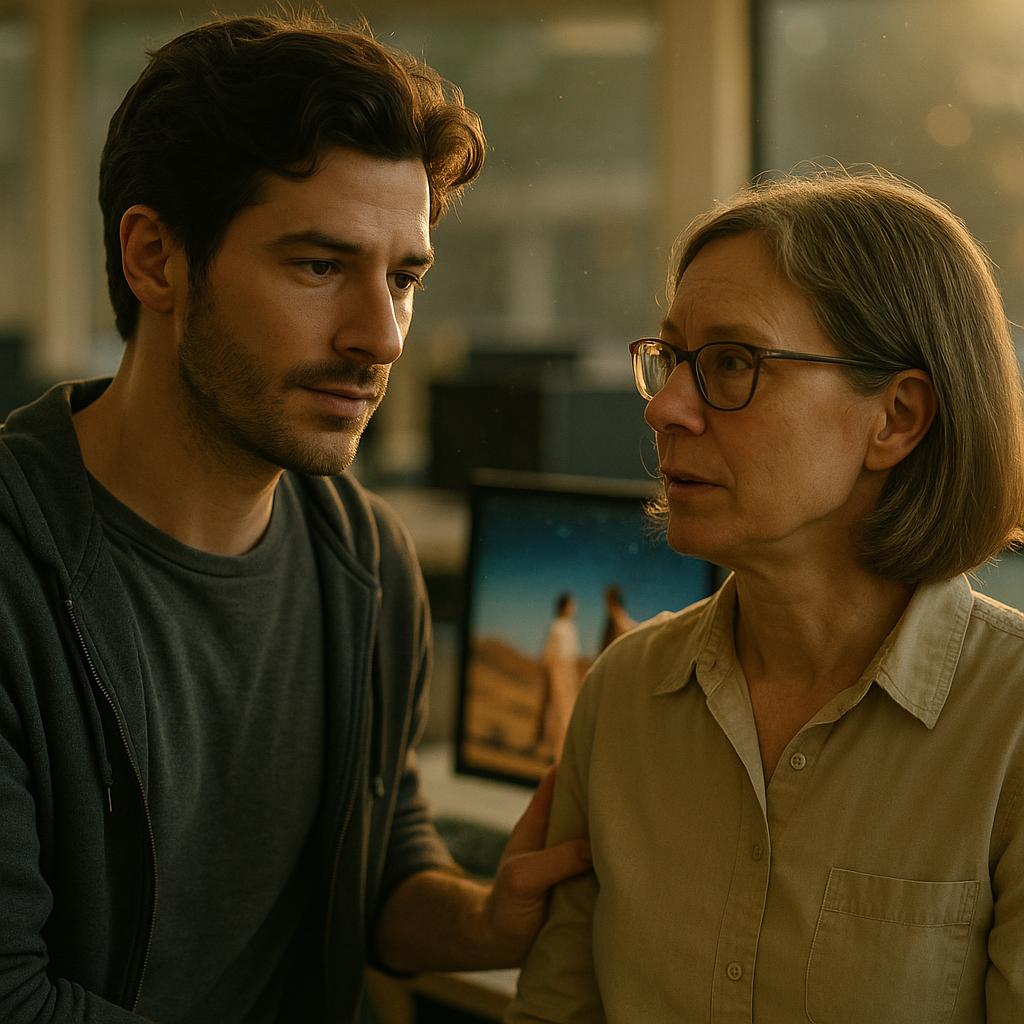 Image by RM AI
Image by RM AI
The Fourth Year
The fourth year after finding my parents' truck marked a turning point. I'd finally returned to university full-time, throwing myself into geology studies with a focus on desert formations—a choice that would have made Dad smile. My apartment walls, once plastered with maps and investigation notes, now held framed photos of Mom and Dad laughing on camping trips and at family barbecues. Adrian and I had moved in together, our bond forged in the crucible of that desert search stronger than anything I'd known before. 'You're different now,' he told me one night as we sat on our tiny balcony. 'Still you, but... steadier.' He was right. The pain hadn't vanished—I don't think it ever will—but it had transformed into something I could carry without buckling under its weight. Every three months, I'd make the drive out to the mine site, bringing fresh wildflowers and sitting cross-legged in front of that bronze plaque, telling Mom and Dad about my classes, about Adrian, about the life I was building. Sometimes I swore I could feel them listening. What I didn't tell anyone, though, was about the dreams that had started—vivid, unsettling dreams where Dad was trying to show me something in that mine that I'd missed.
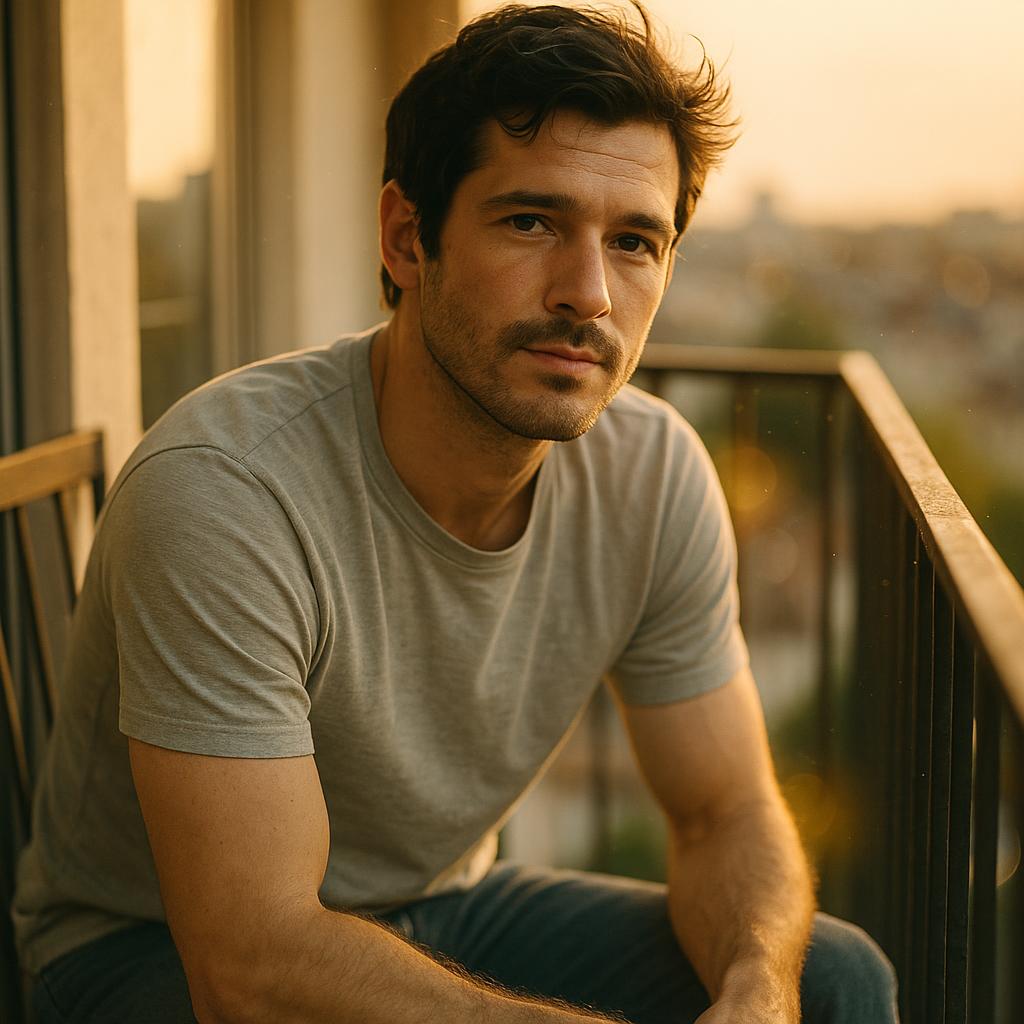 Image by RM AI
Image by RM AI
The Documentary Proposal
The email from Sofia Reyes, documentary filmmaker, sat in my inbox for three days before I finally opened it. 'Your story deserves to be told,' she'd written. 'Not as a mystery or true crime sensation, but as a testament to never giving up.' I scoffed at first—my parents' disappearance wasn't content for someone's Hulu special. But during my therapy session, Dr. Novak suggested I reconsider. 'Your journey might help others living in that same limbo,' she said gently. When I mentioned it to Adrian over dinner, his forehead creased with concern. 'Are you sure you're ready to put yourself through that again?' he asked, squeezing my hand across the table. Despite his worries, he came with me to meet Sofia at a quiet café downtown. She wasn't what I expected—no aggressive Hollywood energy, just thoughtful questions and genuine interest in the human side of what happened. 'This isn't about exploiting grief,' she explained, showing me clips from her previous work. 'It's about honoring the search for truth.' As she outlined her vision—interviews with the search teams, Detective Kovač, even Caleb who found the truck—I felt something unexpected: a sense that maybe my parents' story wasn't just mine to carry anymore. What I didn't tell Sofia was that I still had questions about what really happened in that mine—questions I wasn't sure I wanted captured on camera.
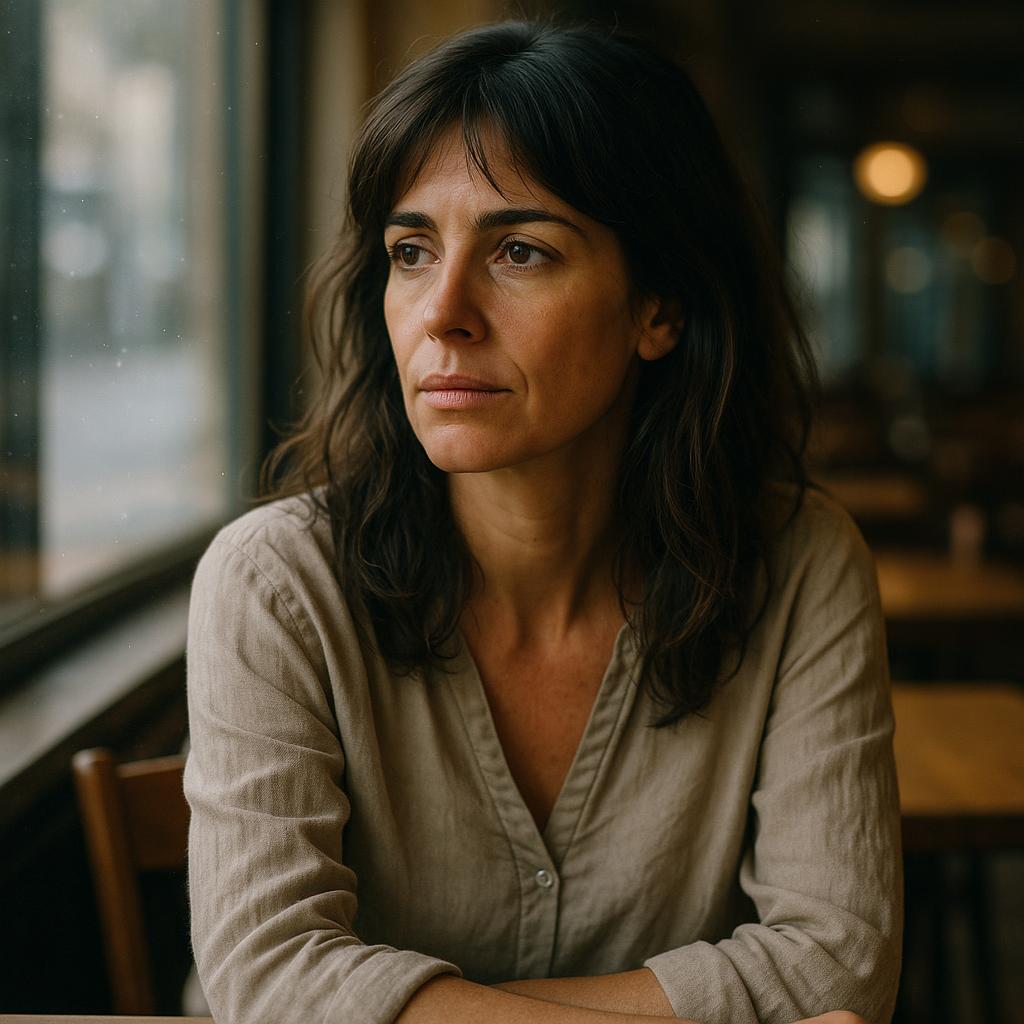 Image by RM AI
Image by RM AI
The Filming Process
Sofia's documentary crew followed me around for three months, turning my private grief into something public and tangible. At first, I felt like an actor in my own tragedy—smiling awkwardly at the camera as I revisited the police station where I'd filed the missing persons report, or explaining to viewers how it felt to wake up every day for ten years not knowing. 'Just pretend we're not here,' Sofia would say, which was impossible with boom mics hovering overhead. But something unexpected happened as the filming continued. Articulating my journey to the camera became a form of therapy I hadn't known I needed. The day we filmed at the mine site nearly broke me, though. I placed fresh wildflowers beneath the bronze plaque while three cameras captured my tears from different angles. 'Cut!' Sofia called when I couldn't continue. Later, watching the raw footage in her editing suite, I saw myself touch the plaque and whisper, 'I found you.' The woman on screen wasn't just grieving anymore—she looked relieved, unburdened. 'That's the story,' Sofia said quietly. 'Not the mystery, but the peace that comes after.' What she didn't capture, what no one saw, was how I'd glanced back at the sealed mine entrance, still wondering about that strange object and what it might mean.
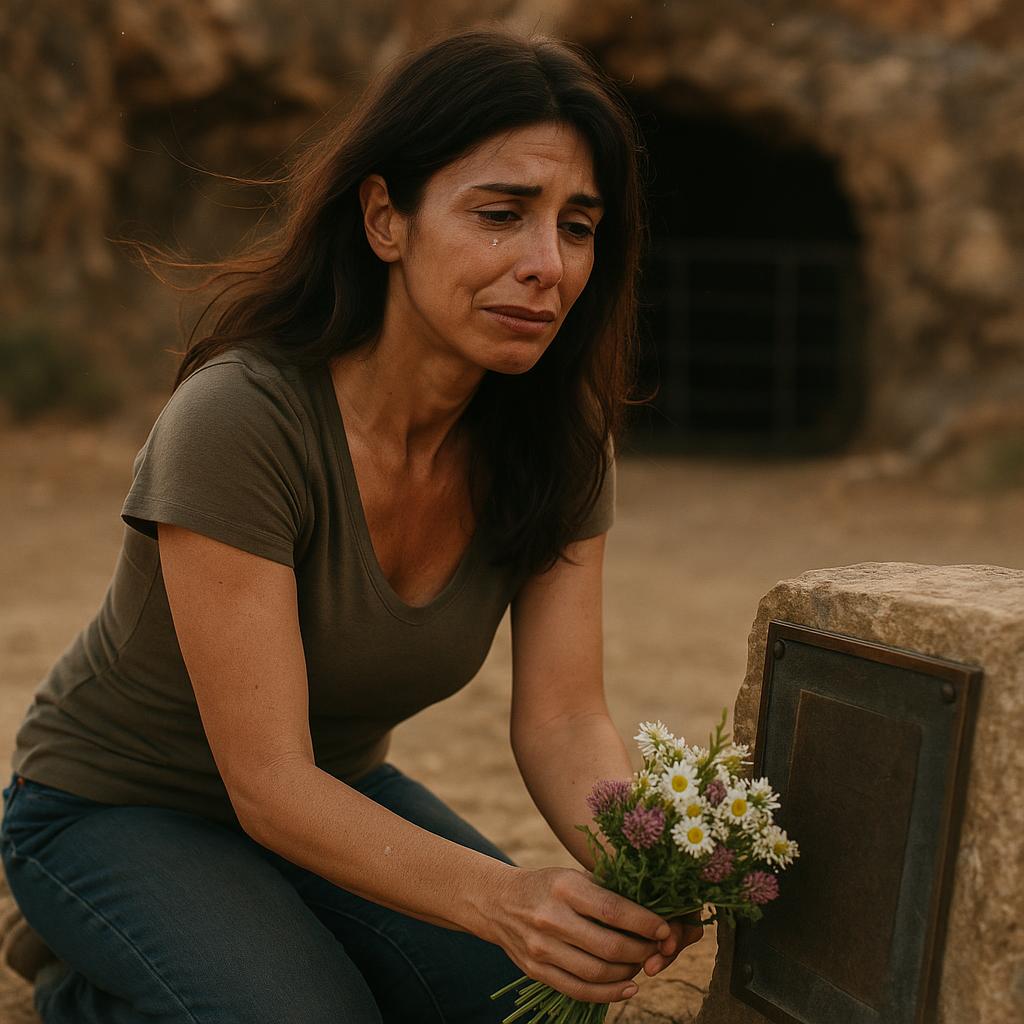 Image by RM AI
Image by RM AI
The Online Community Revisited
The documentary brought me face-to-face with people who had been, until then, just usernames on a screen. The online forum that had sustained me through my darkest days became a physical gathering of souls who understood the particular hell of not knowing. Sofia arranged a meetup at a cozy café downtown, cameras discreetly positioned to capture these reunions. I nearly dropped my coffee when Bernard—the legendary DesertFox who had analyzed countless satellite images for me—walked through the door. At 68, with kind eyes behind wire-rimmed glasses and a military posture that hadn't softened with retirement, he looked nothing like I'd imagined. 'You kept me going when professionals had given up,' I told him, fighting back tears as we embraced for the first time. His weathered hands gripped mine firmly. 'Sometimes only those who understand the not-knowing can truly help others through it,' he replied simply. Bernard had lost his brother to the same desert thirty years earlier—a connection I'd never known about during our hundreds of late-night message exchanges. As Sofia's cameras rolled, capturing our conversation, I realized these people weren't just internet strangers anymore; they were family forged in shared grief. What none of us discussed on camera, though, was the private message Bernard had sent me the night before our meeting—about anomalies he'd spotted in those final mine photos.
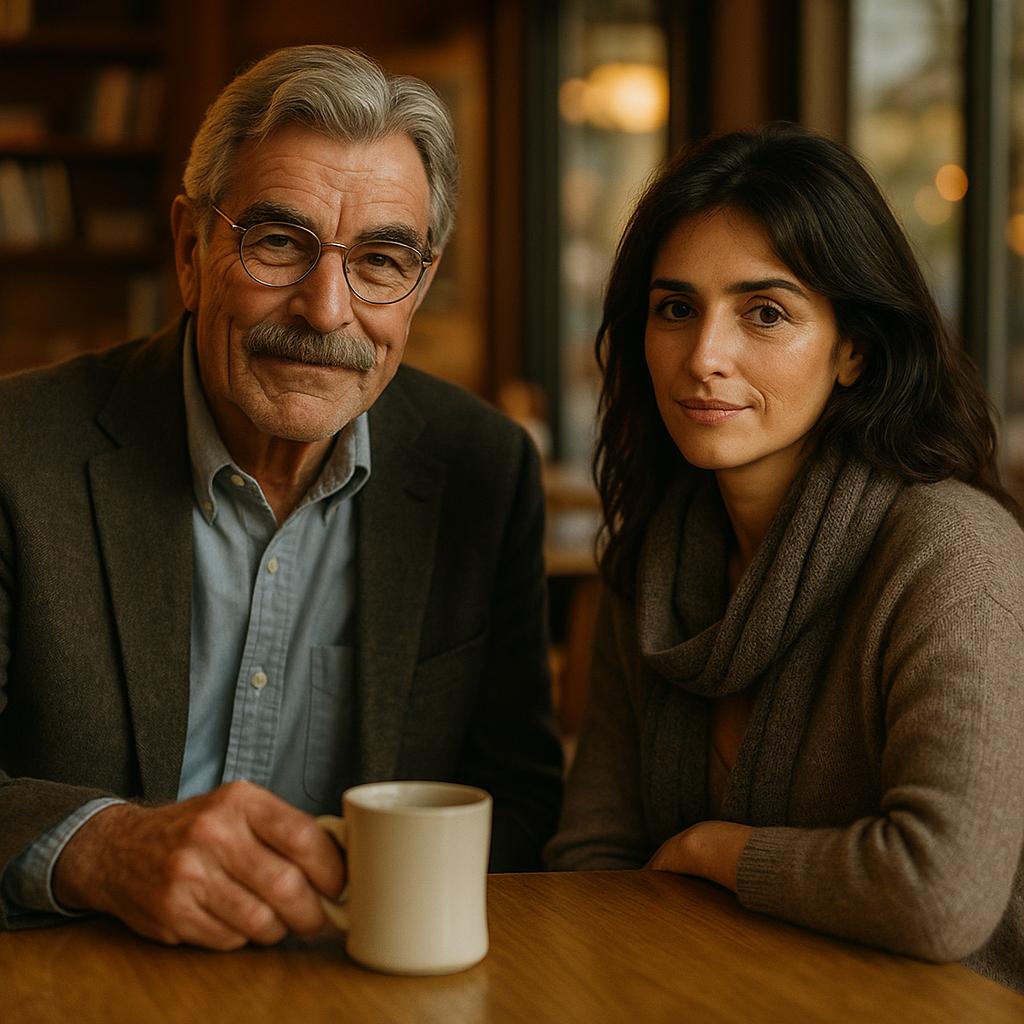 Image by RM AI
Image by RM AI
The Screening
The theater lights dimmed, and I felt Adrian's hand tighten around mine as my face appeared on the big screen. 'The Desert's Secret' was playing to a packed house at the Sundance Film Festival, and watching my ten-year journey unfold before strangers felt like an out-of-body experience. There I was—younger, desperate, showing missing person flyers to the camera; then older, determined, poring over maps in my apartment surrounded by cold coffee cups. Sofia had captured everything—the heartbreak, the obsession, the final discovery—with such raw honesty that I found myself crying alongside the audience. When the credits rolled, the silence was deafening before erupting into applause. What I wasn't prepared for was the line of people waiting to speak with me afterward. A woman with silver-streaked hair gripped my hands, tears streaming down her face. "My son vanished hiking three years ago," she whispered. "Everyone tells me to move on, but you've given me permission to keep searching." As person after person shared their stories of loved ones who had vanished without a trace, I realized my parents' story had become something bigger than my personal grief—it had become a beacon for others lost in that terrible limbo of not knowing. What none of them realized, though, was how their gratitude only strengthened my resolve to investigate what Bernard had discovered in those mine photos.
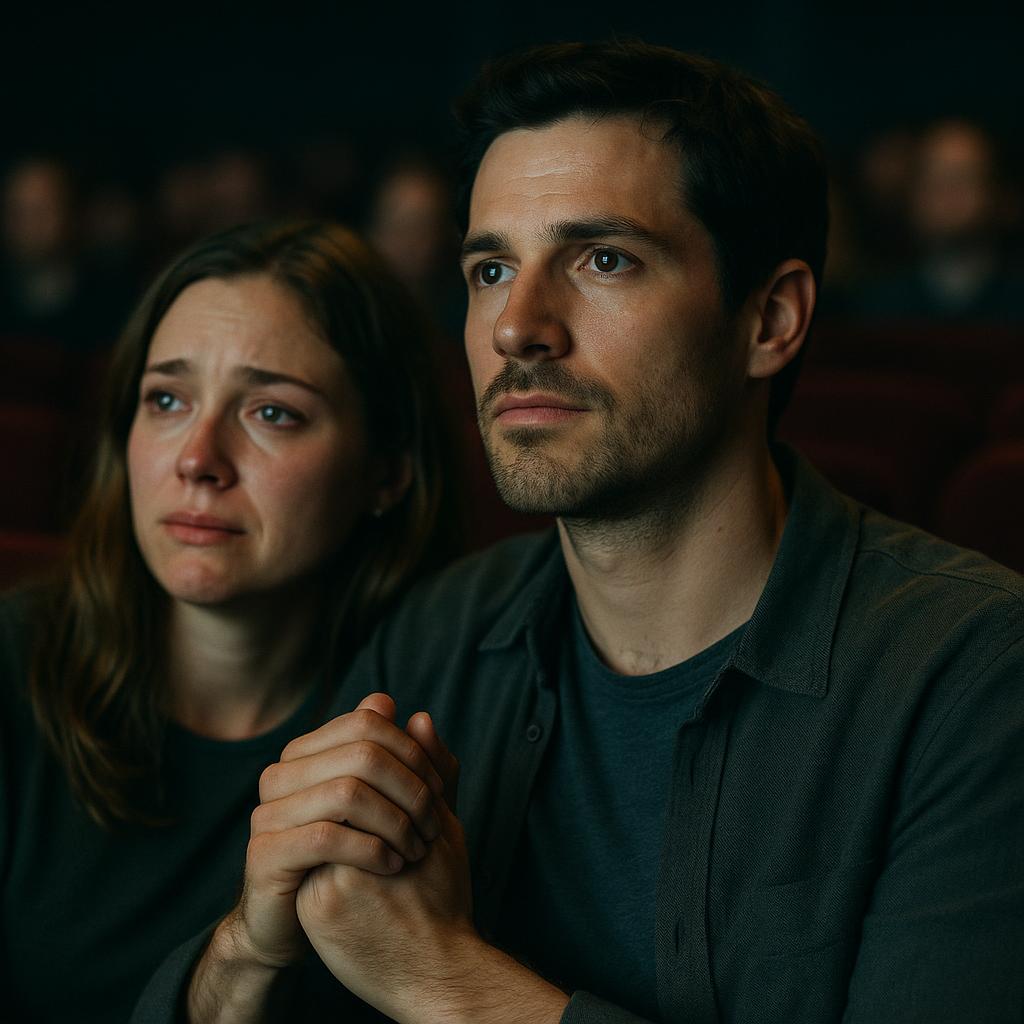 Image by RM AI
Image by RM AI
The Fifth Year
The fifth year after finding my parents brought changes I never expected. The documentary, 'The Desert's Secret,' took on a life of its own, streaming in living rooms across the country. My inbox filled with messages from strangers sharing their own stories of loss and limbo. 'You gave me courage to keep searching for my daughter,' one mother wrote, her words bringing me to tears. Meanwhile, life kept moving forward. Adrian proposed on a hike to Eagle Point—the same lookout where Dad had taught me to use binoculars as a kid. When he dropped to one knee, the setting sun painting the valley gold behind him, I felt Mom and Dad there with us. 'Yes,' I whispered, my voice breaking. Planning our wedding became a bittersweet exercise in absence. No Dad to walk me down the aisle, no Mom to fuss over dress fittings or flower arrangements. Some nights I'd catch myself reaching for the phone to call Mom for advice before reality crashed back. 'They'd be so proud of you,' Aunt Sarah told me over coffee, squeezing my hand. 'So proud of how you've carried on.' What she didn't know was that while I was picking out centerpieces and tasting cakes, I was also secretly meeting with Bernard to discuss what he'd found in those mine photos—something that threatened to unravel everything I thought I knew about my parents' disappearance.
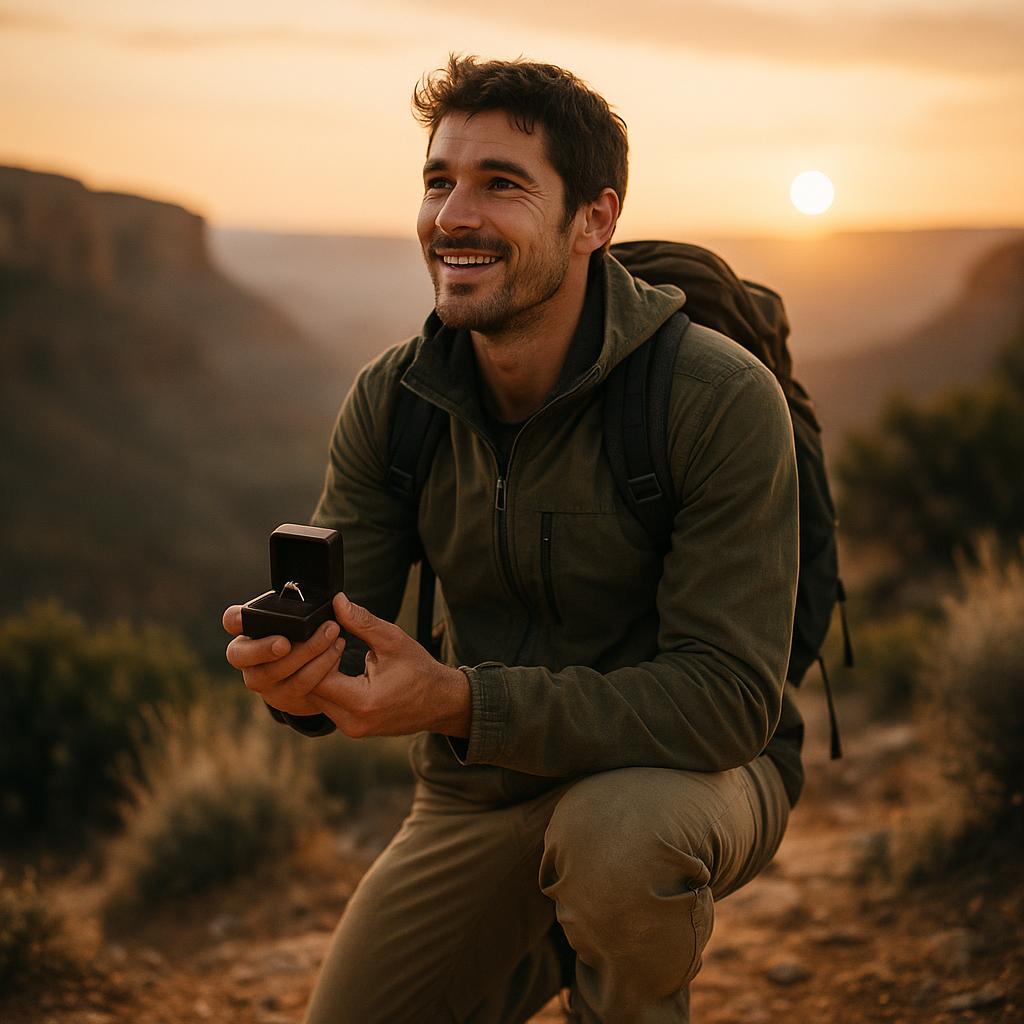 Image by RM AI
Image by RM AI
The Wedding Planning
I never imagined planning my wedding would feel like navigating a minefield of grief and joy. Every decision became a delicate balance—wanting to celebrate our future while honoring what I'd lost. 'Mom would have loved these peonies,' I told Adrian, adding them to my bouquet sketch while fighting back tears. Aunt Sarah became my emotional anchor, stepping in where Mom should have been. 'Your mother was so nervous before her wedding that she nearly fled the church,' she told me over wine one evening, laughing. 'Your father found her hiding in the garden and just sat with her until she was ready.' These stories were gifts—pieces of them I'd never known. One night, while sorting through dusty photo albums for our memorial table, I gasped when I found it: a faded Polaroid of Mom and Dad standing at Eagle Point, arms wrapped around each other, the exact spot where Adrian had proposed. My hands trembled as I showed Adrian. 'It's like they led us there,' he whispered, holding me as I cried. I tucked the photo into my wedding planner, a secret talisman guiding our celebration. What I couldn't tell Adrian was how this discovery made Bernard's theories about what really happened in that mine suddenly seem much more plausible.
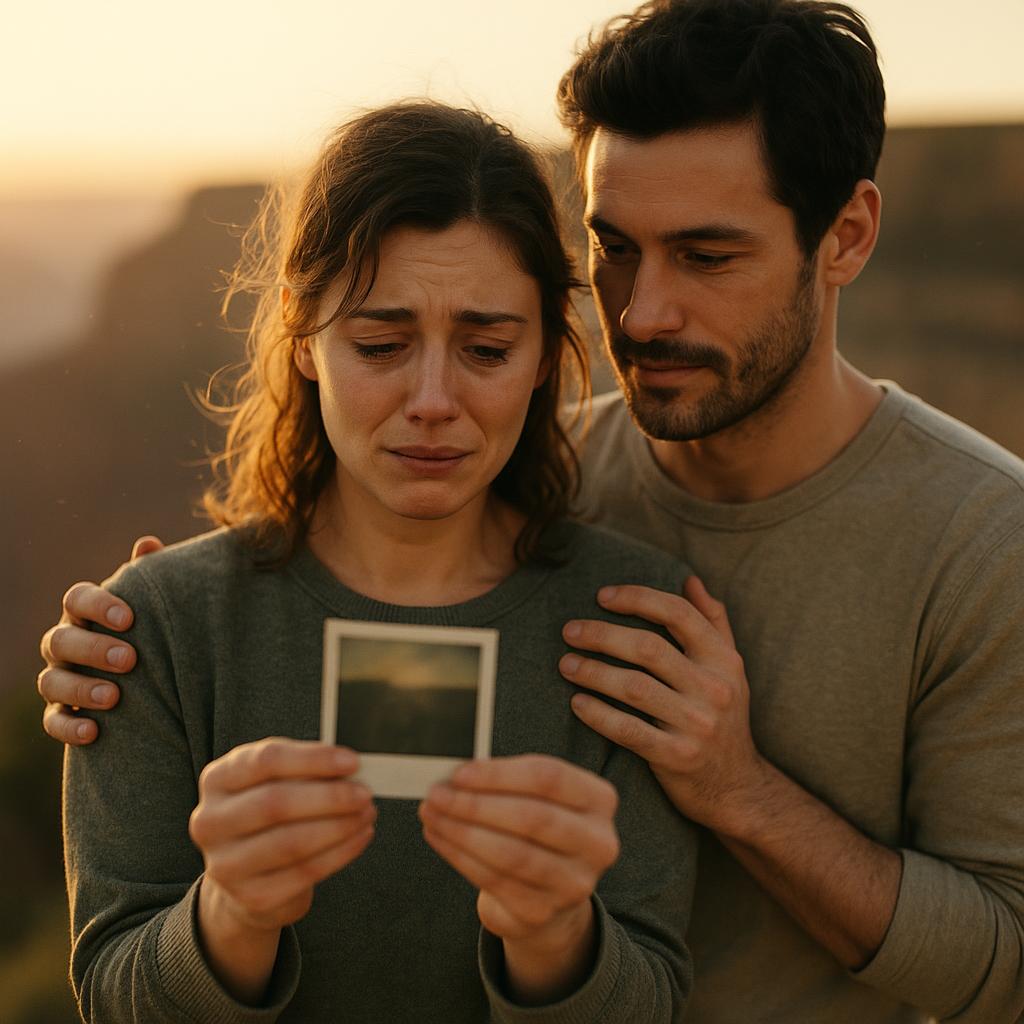 Image by RM AI
Image by RM AI
The Wedding Day
The morning of my wedding day, I stood in front of the mirror, my white dress catching the sunlight streaming through the window. I could almost hear Mom's voice telling me how beautiful I looked. The garden ceremony was everything we'd hoped for—wildflowers dancing in the gentle breeze, mountains standing sentinel in the distance like silent witnesses to our vows. When Aunt Sarah took my arm to walk me down the aisle, I felt her trembling slightly, both of us acutely aware of who should have been there instead. 'He's watching, honey,' she whispered, and somehow I knew she was right. During the reception, we'd placed two empty chairs with framed photos of Mom and Dad, surrounded by desert wildflowers like those I'd left at their memorial. 'To Mark and Evelyn,' Adrian said during his toast, raising his glass toward their photos, 'for creating the incredible woman I get to call my wife.' I couldn't hold back tears as I thanked Adrian in my vows—not just for loving me, but for helping me find my way back when I was lost in grief's wilderness. That night, as we danced under string lights, I realized I'd finally learned to hold both joy and sorrow in the same heart without one diminishing the other. What I didn't expect was the text from Bernard that buzzed in my clutch during our first dance, with three words that made my blood run cold: 'I found something.'
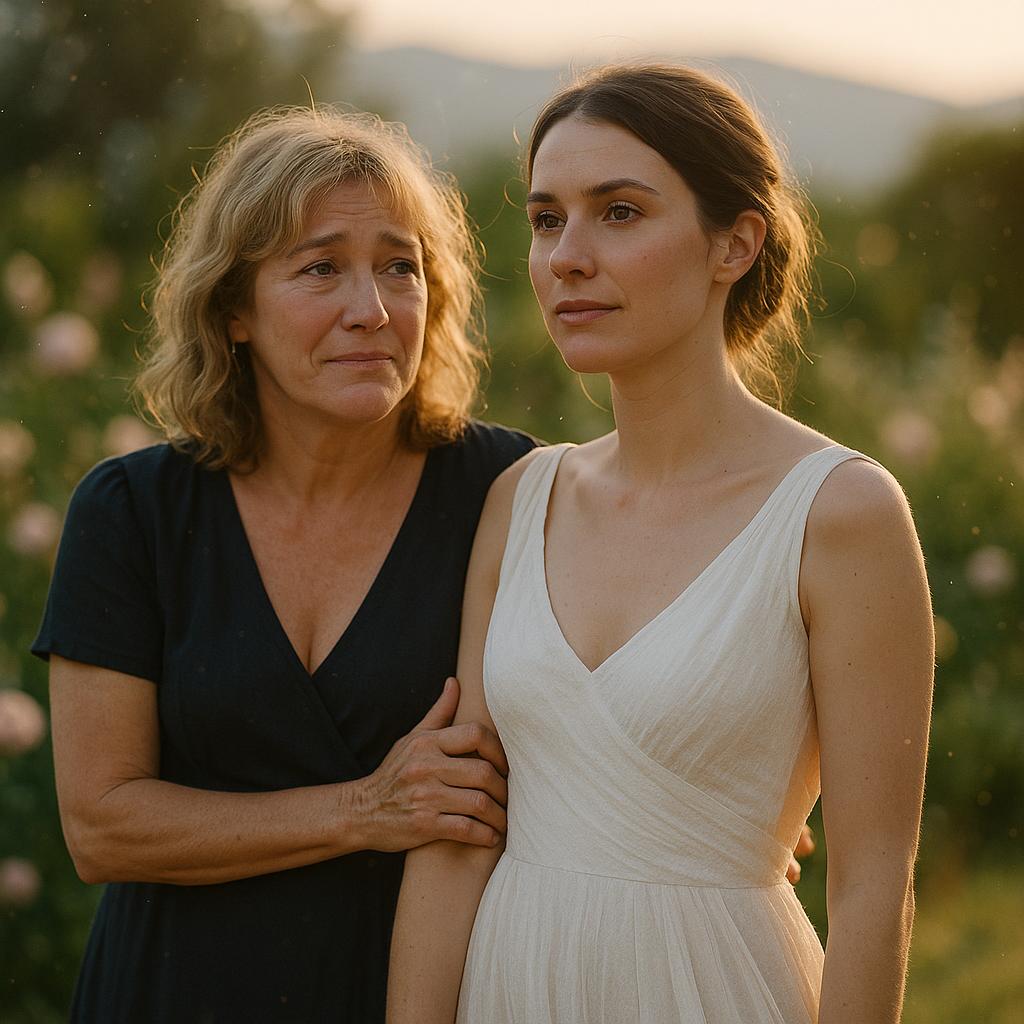 Image by RM AI
Image by RM AI
The Tenth Anniversary
Ten years to the day. I stood at the mine entrance, my hand resting on my swollen belly, feeling the weight of a decade without them. The bronze plaque had weathered beautifully—sand-polished edges catching the morning light, their names still bold against the metal. "We brought you flowers, Mom and Dad," I whispered, arranging the desert wildflowers I'd collected along the drive. Adrian squeezed my shoulder as I knelt awkwardly, my seven-month pregnant body making simple movements complicated. "They would have been incredible grandparents," he said softly. I nodded, unable to speak past the lump in my throat. "We're naming her Evelyn," I told the plaque, "after her grandmother who loved the desert." The wind picked up, sending sand dancing around us in tiny spirals. That's when I saw it—a desert fox, russet-colored and alert, watching us from a nearby ridge. It stood perfectly still, eyes locked with mine for what felt like minutes before disappearing into the landscape. "Did you see that?" I asked Adrian, my voice barely audible. He nodded, looking puzzled at my reaction. I couldn't explain the goosebumps rising on my arms or why tears suddenly streamed down my face. But somehow, in that moment, I knew Bernard had been right all along—there was more to my parents' story than a tragic accident.
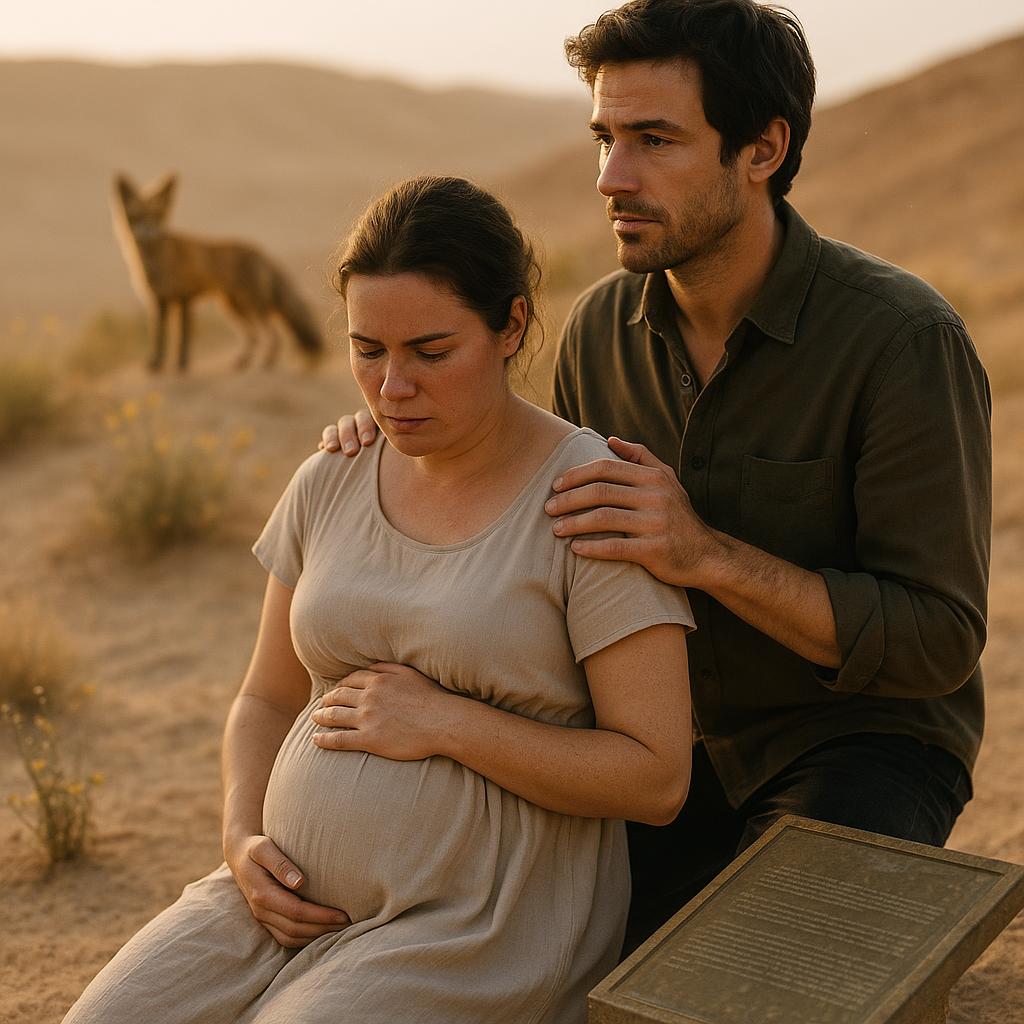 Image by RM AI
Image by RM AI
The Birth
Evelyn Sarah Harmon came into the world on a perfect spring morning, all 7 pounds 4 ounces of her screaming with healthy lungs. The moment the nurse placed her in my arms, I gasped—those eyes, unmistakably Dad's eyes, stared back at me with an old soul's wisdom. 'She has your father's eyes,' Adrian whispered, his voice breaking as he stroked her tiny head. That night in the hospital, when everyone had gone and it was just us three, I held her close and told her about the grandparents she'd never meet. 'Your grandpa could name every constellation in the sky,' I murmured as she blinked sleepily. 'And your grandma Evelyn—yes, that's who you're named after—she could make anyone feel like the most important person in the room.' I showed her the small photo I'd tucked into her hospital bassinet—Mom and Dad at Eagle Point, their smiles radiant. 'They would have spoiled you rotten,' I said, tears sliding down my cheeks. 'They would have been the first ones here, probably with the biggest teddy bear the gift shop sold.' As Evelyn drifted to sleep against my chest, I felt something shift inside me—a healing I hadn't known I needed. But later that night, as Adrian slept in the chair beside us, I couldn't shake the feeling that Bernard's discovery and my daughter's arrival were somehow connected in ways I couldn't yet understand.
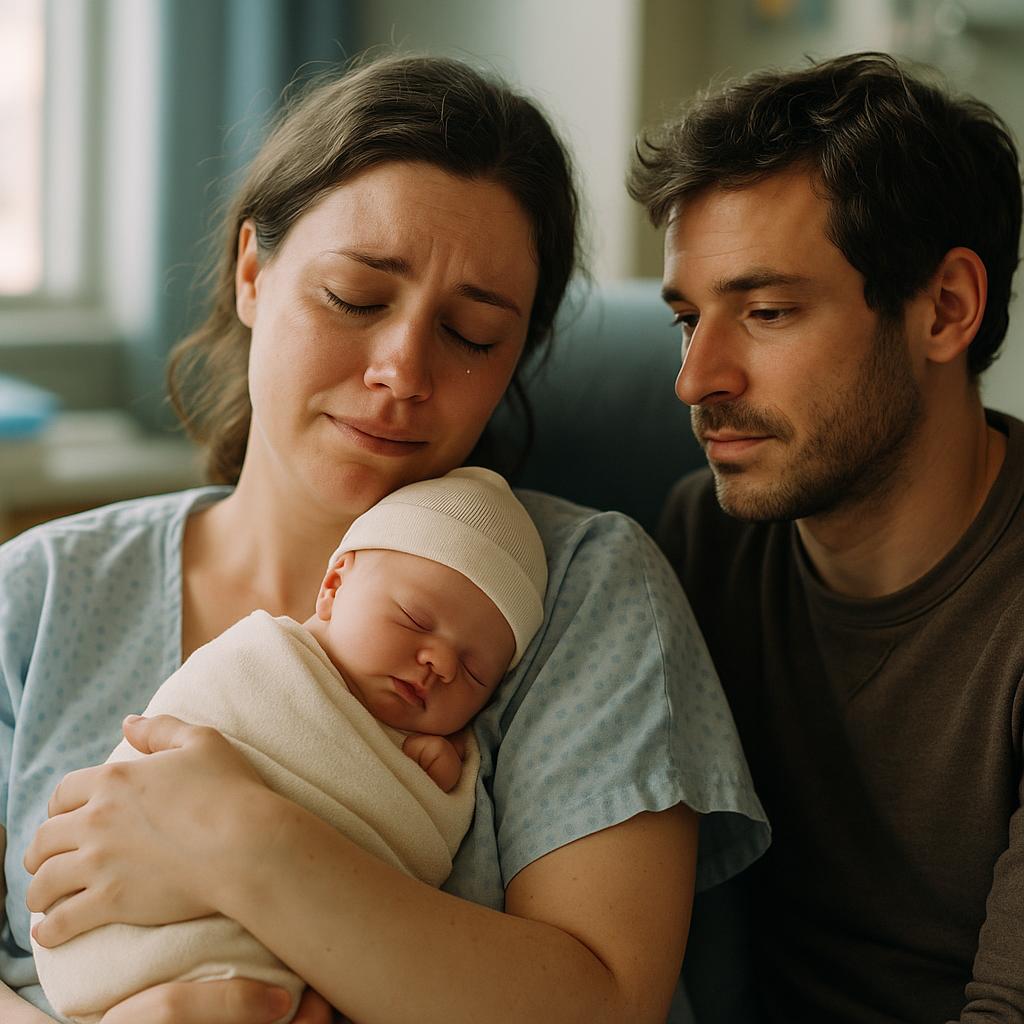 Image by RM AI
Image by RM AI
The Desert's Peace
On Evelyn's first birthday, we packed our SUV with a picnic, her favorite stuffed fox, and a small clay kit. The desert welcomed us with that familiar dry heat that somehow felt like coming home. Adrian carried our daughter on his shoulders as we walked the now-familiar path to my parents' memorial. 'Look, Evie,' I said, pointing to a hawk circling overhead. 'Grandpa would have known what kind that is.' The bronze plaque gleamed in the sunlight, sand-polished to a gentle patina. I knelt down, mixing water into the clay, then gently pressed Evelyn's tiny hand into it. 'There,' I whispered, placing it beside the plaque. 'Now you're connected to them forever.' As the sun began its descent, painting everything in impossible shades of gold and crimson, I felt something I hadn't expected – peace. Complete, overwhelming peace. The decade of searching, the nightmares, the folder of theories – they no longer had power over me. I had found my parents, found answers, and in that journey, found myself again. Adrian wrapped his arm around my waist as Evelyn babbled happily at a lizard darting across the rocks. 'Ready for our new adventure?' he asked softly. I nodded, taking one last look at the memorial. What I didn't tell him was that I'd finally decided what to do with Bernard's discovery – a decision that would change everything.
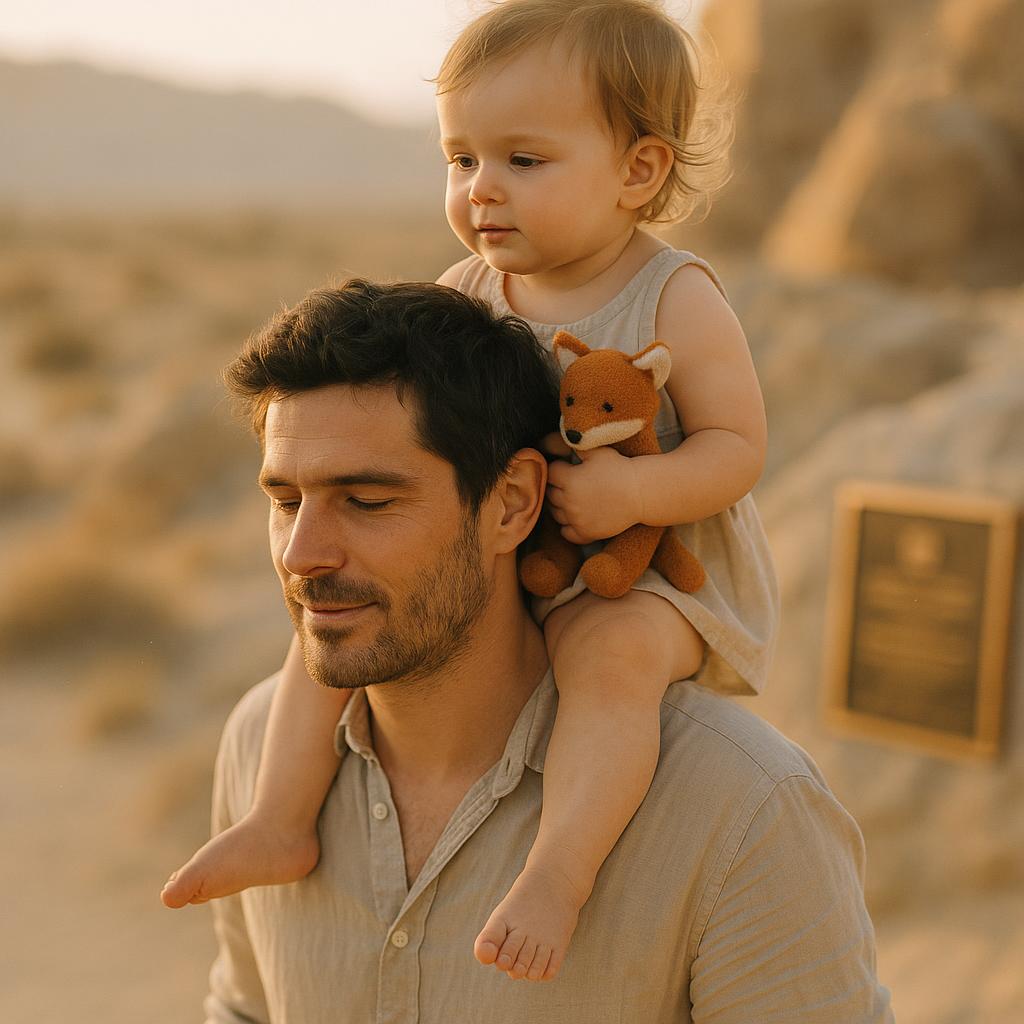 Image by RM AI
Image by RM AI
KEEP ON READING
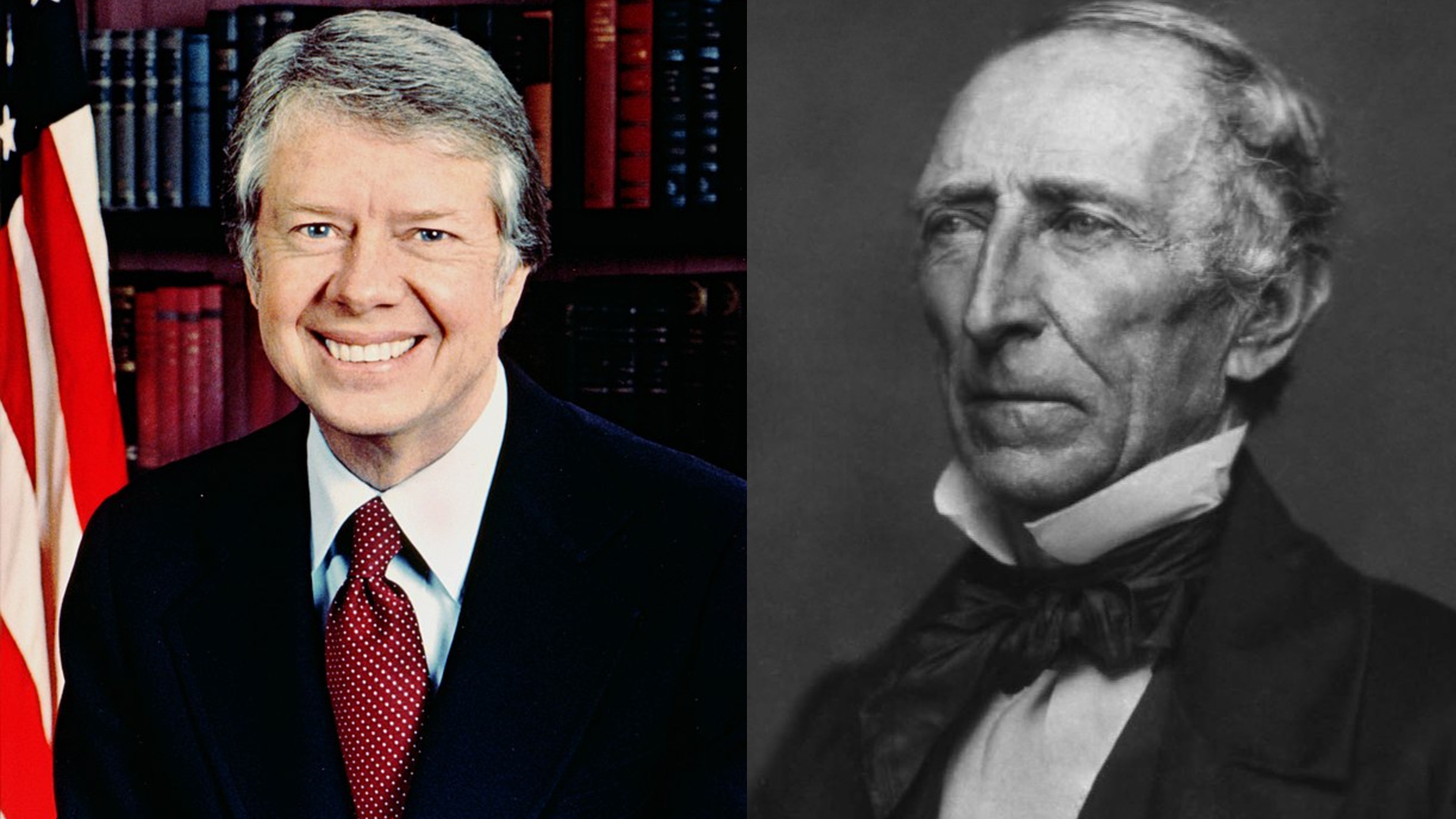
1 Weird Fact About Every President
Washington, Lincoln, FDR. Most people know something about the lives…
By Robbie Woods Dec 3, 2024
10 Actors Who Perfectly Played a Historical Figure & 10…
Which Performance is Your Favorite?. Playing the role of a…
By Rob Shapiro Sep 15, 2025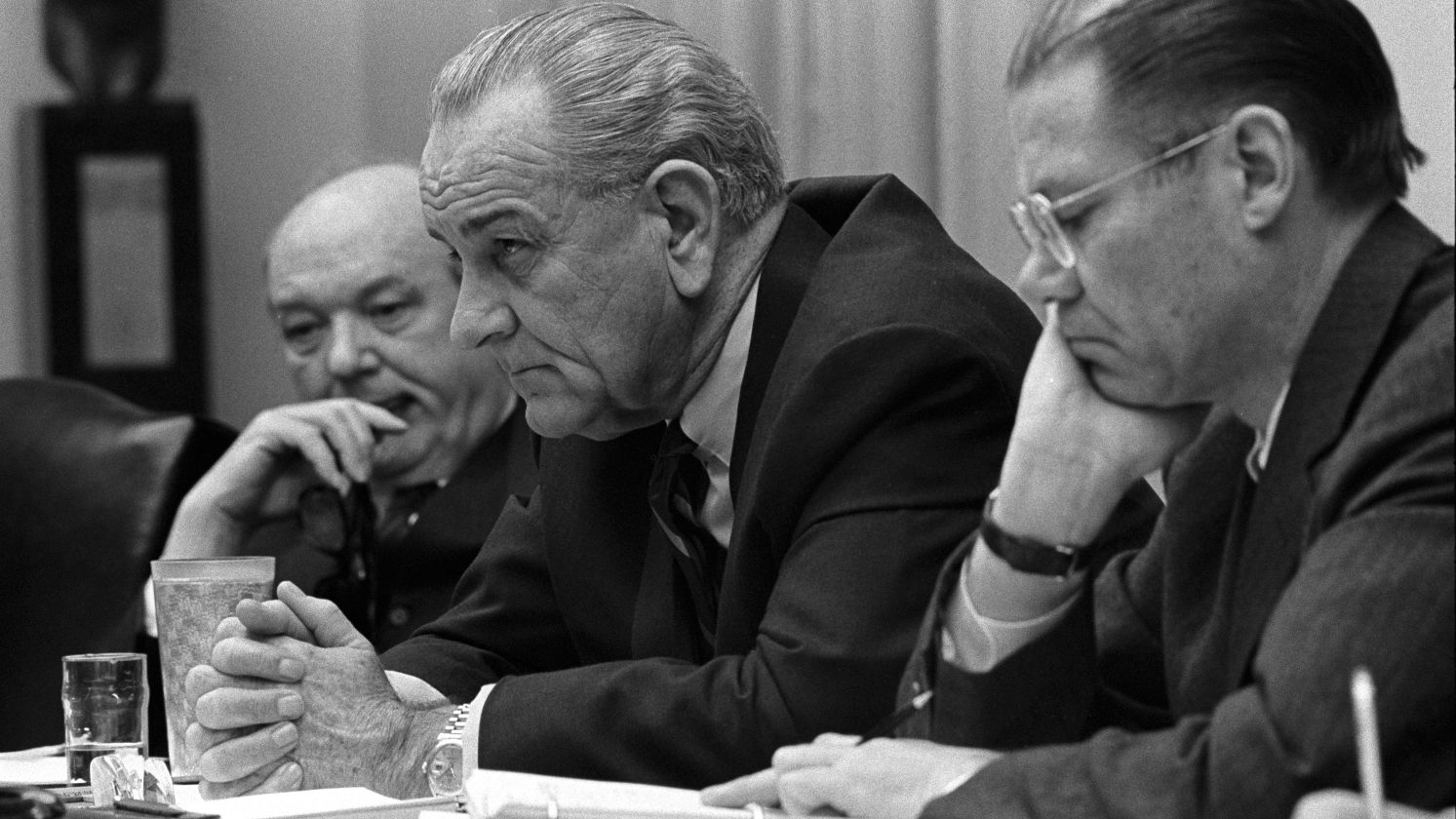
10 Actors Who Weren't Up To Playing A U.S. President…
Who Wouldn't Vote Woody Harrelson for President?. Actors who sign…
By Rob Shapiro Oct 22, 2025
10 Amazing Popes & 10 Who Weren't So Great
An Odd Cast of Characters Throughout History. From popes who…
By Henry Judd Apr 29, 2025
10 Ancient Civilizations You Don’t Want to Be Trapped In…
Grab Your Time Machine. Trying to pick out an ancient…
By Farva Ivkovic Feb 21, 2025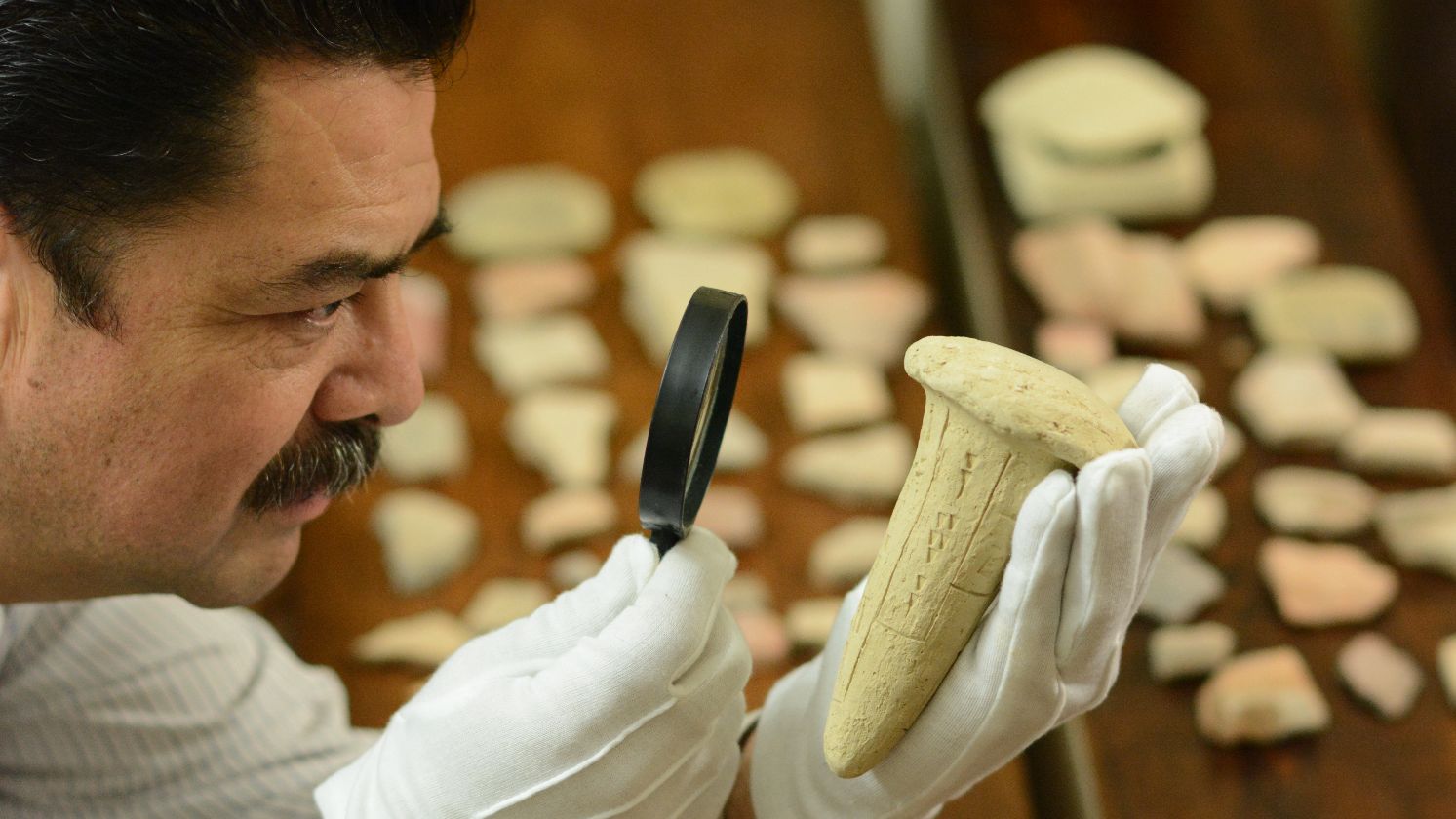
10 Ancient Lost Cities Yet To Be Found & 10…
Will You Find The Next Lost City?. Based on our…
By Breanna Schnurr Aug 27, 2025
